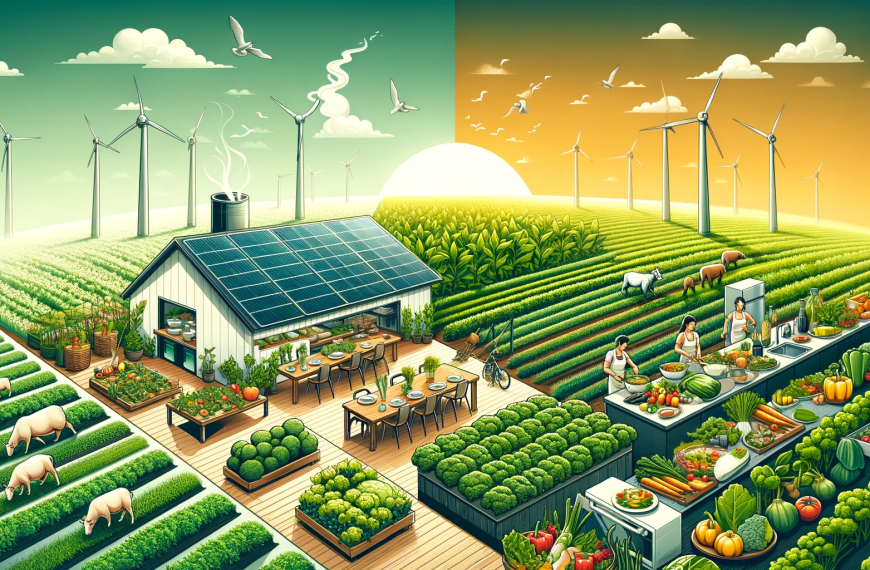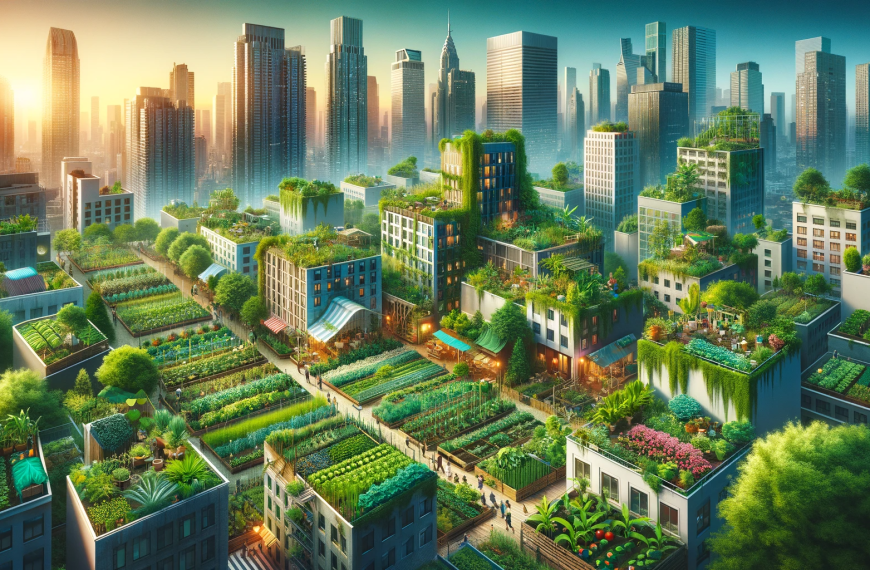At King Mongkut’s University of Technology Thonburi (KMUTT), we are deeply committed to contributing to the United Nations Sustainable Development Goal 2 (SDG 2): “End hunger, achieve food security and improved nutrition, and promote sustainable agriculture.” As a leader in science, technology, and innovation, KMUTT recognizes the critical role that sustainable agriculture and food security play in ensuring the well-being of both local and global communities. In 2024, the university continues to enhance its efforts in addressing global challenges related to hunger, nutrition, and sustainable food systems through research, partnerships, and community engagement.
Research and Innovation for Sustainable Agriculture
KMUTT is at the forefront of agricultural innovation, focusing on sustainable practices that can increase food production while minimizing environmental impact. The university’s research initiatives are designed to create technological solutions that promote sustainable agriculture, improve food security, and enhance nutritional outcomes for communities. Through a combination of precision farming technologies, agri-tech innovations, and sustainable farming practices, KMUTT researchers are developing ways to increase crop yields, reduce food waste, and make agriculture more resilient to climate change.
Through workshops, public seminars, and community outreach programs, KMUTT educates both urban and rural populations on how to access and incorporate healthy, nutritious foods into their diets, particularly focusing on local food systems that are more sustainable. The university also works closely with government agencies and non-governmental organizations (NGOs) to address issues related to food insecurity, especially in underserved areas.
Local and International Collaborations for Food Security
KMUTT recognizes that achieving food security requires collaboration at both the local and global levels. The university continues to engage in partnerships with local governments, research institutions, and international organizations to promote food security and sustainable agriculture.
In 2024, KMUTT is involved in several significant collaborations, including:
Partnerships with agricultural cooperatives: By working with local farmers and cooperatives, KMUTT helps implement sustainable farming practices that improve food security and enhance the income of rural communities.
International research collaborations: KMUTT partners with global organizations such as the research universities to share knowledge and develop solutions for sustainable food systems that benefit both developing and developed countries. Support for smallholder farmers: Through research and extension services, KMUTT provides training programs to help smallholder farmers improve their productivity, reduce post-harvest losses, and increase their income while promoting environmentally friendly farming techniques. Promoting Sustainable Food Systems on Campus KMUTT is committed to promoting sustainable food practices not only through research but also within its own campus community. The university actively encourages students and staff to adopt sustainable food choices through initiatives
Waste Reduction Programs: KMUTT implements food waste reduction strategies, including composting, promoting food waste awareness, and encouraging students to adopt zero-waste lifestyles. Community Engagement and Social Responsibility KMUTT’s commitment to ending hunger and achieving food security extends beyond the campus. The university actively engages in community-based initiatives to combat food insecurity and promote nutritional health. In 2024, KMUTT collaborates with local NGOs to support food banks and community kitchens, providing healthy meals to those in need, particularly in vulnerable populations.
Through these community initiatives, KMUTT aims to create a ripple effect of positive change, helping people understand the importance of sustainable food systems and how they can make a difference in promoting better nutrition and food security for all.
2.2 CAMPUS FOOD WASTE
1. Related information on our university as a body on measuring the amount of food waste generated from food served within the university.
Organic waste treatment
At King Mongkut’s University of Technology Thonburi (KMUTT), the issue of food waste has become a priority for the university’s sustainability efforts. In the campus cafeterias and food centers, large amounts of food waste are generated daily, including raw meat scraps, vegetable peelings, bones, shells, and leftover dishes. On average, 40-80 kg of food waste is produced every day, which is a significant environmental challenge. However, KMUTT has turned this challenge into an opportunity by implementing an innovative waste utilization program that converts food waste into biogas, while also producing organic fertilizer for campus farming.
The Biogas Production Process: From Waste to Energy
KMUTT’s organic waste management system focuses on harnessing food waste as a resource to generate biogas through anaerobic digestion. This process involves using food scraps from the campus canteens and food centers to produce biogas, which is then used for cooking and boiling water in the campus kitchens. For every 100 kg of food waste processed daily, the system generates approximately 10 m³ of biogas. This sustainable approach not only reduces the amount of waste going to landfills but also provides a reliable source of renewable energy for the university, thus contributing to energy efficiency and cost savings.
Producing Fertilizer as a By-Product
In addition to biogas, the waste utilization program at KMUTT generates a valuable by-product: fertilizer. The organic waste is processed into soil conditioners or fertilizer, which can be used to improve soil health and support the university’s campus farming and gardening initiatives. This approach helps close the loop in waste management, turning what was once discarded into something useful for sustainable agricultural practices on campus.
Waste Reduction and Environmental Impact
By implementing the waste utilization program, KMUTT has significantly reduced its environmental footprint. The program has been able to reduce approximately 6.4% of the total municipal solid waste generated on campus. This initiative not only minimizes the amount of waste sent to landfills but also helps reduce greenhouse gas emissions by converting food waste into biogas rather than allowing it to decompose in landfills, where it would produce methane—a potent greenhouse gas.
In 2024, KMUTT treated 21.28% of its organic waste on campus. The university generated 207,910 kg of organic waste in total, which comprises about 41.67% of the total municipal solid waste generated. This includes 102,187 kg of food waste and 105,723 kg of garden waste. Of the food waste, 36,000 kg were directed into the anaerobic digestion process, converting it into biogas and fertilizer within just 24 hours per batch. The garden waste—approximately 8,236 kg—was also processed into fertilizer at the university’s Waste Utilizing Center.
Annual Impact: Biogas, Fertilizer, and Carbon Reduction
As a result of its food waste treatment efforts, KMUTT produces 3,600 m³ of biogas per year, which is used to fuel the campus kitchens and reduce reliance on non-renewable energy sources. Additionally, the fertilizer by-product from the biogas production process amounts to 12,264 kg per year, supporting the university’s sustainable farming projects and campus green spaces. Furthermore, 18,000 liters of liquid fertilizer are produced annually at the Waste Utilizing Center, contributing to a more sustainable campus ecosystem.
KMUTT’s commitment to sustainability has also led to significant environmental benefits. The university’s waste management program has resulted in a carbon emission reduction of 794,048.7 kg CO2-e per year, helping the institution meet its climate action goals. This reduction in carbon emissions is equivalent to taking hundreds of cars off the road each year, demonstrating the significant environmental impact of KMUTT’s waste-to-energy initiatives.
Economic Benefits and Cost Savings
KMUTT’s waste utilization efforts also generate significant economic benefits. The university has been able to save over 2,785.69 USD annually through the reduction in waste management costs, LPG expenditures, and fertilizer costs. By reducing the need for traditional energy sources and chemical fertilizers, KMUTT is not only contributing to a more sustainable environment but also realizing substantial financial savings that can be reinvested into further sustainability initiatives.
Looking Ahead: Expanding Waste Utilization Efforts
In 2024 and beyond, KMUTT plans to continue expanding its waste-to-energy and waste-to-fertilizer initiatives. Although space limitations have restricted the amount of organic waste that can be processed on campus, the university is exploring ways to expand its waste treatment capacity and further optimize waste management practices. With the continued growth of the program, KMUTT aims to increase its contribution to sustainability, reduce its environmental impact even further, and set an example for other universities and institutions looking to adopt circular economy practices.
KMUTT’s waste utilization program is a prime example of how universities can turn waste into resources, benefiting both the environment and the campus community. By converting food waste into biogas and fertilizer, the university not only reduces its carbon footprint and energy consumption but also promotes sustainable agriculture and waste reduction. This innovative approach supports the university’s commitment to SDG Goal 2: End Hunger, Achieve Food Security and Improved Nutrition, and Promote Sustainable Agriculture, making KMUTT a leader in sustainability efforts and a model for others to follow.


How to do “Preparing dry compost from dry leaves , Cultivation of various vegetable gardens
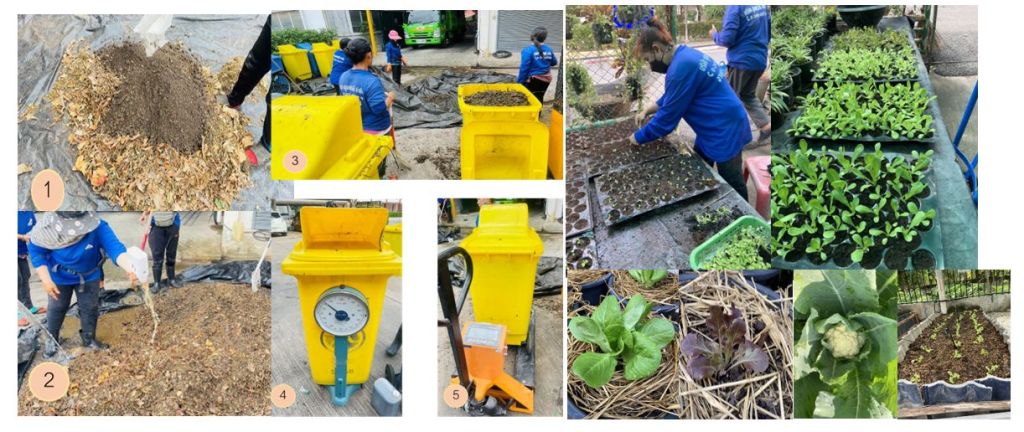

Making compost from small leaf and branch scraps Ratio 1 : 4
1.Animal feces 1.part 2. Leaves, twigs 4 parts 3.Plain water (If you have fermented water, you can mix it with water and sprinkle it)
Equipment 1)1×3 meter net 2) 4-5 posts 3)Hammer 4)Wire
Procedure
1. Tie the net into a circle, then set up the poles around the net and tie the net to the main poles (cement pond, plastic net pond or screen pond).
2. When the pond is ready, the first layer is to be covered with 4 kg of twigs and leaves, level it out, then pour in 1 kg of animal waste, level it out, which is the first layer. Do the same thing for about 6-8 layers.
3. Water thoroughly, water every 2-3 days, leave for 2-3 months, then you will have compost to use to nourish your plants.
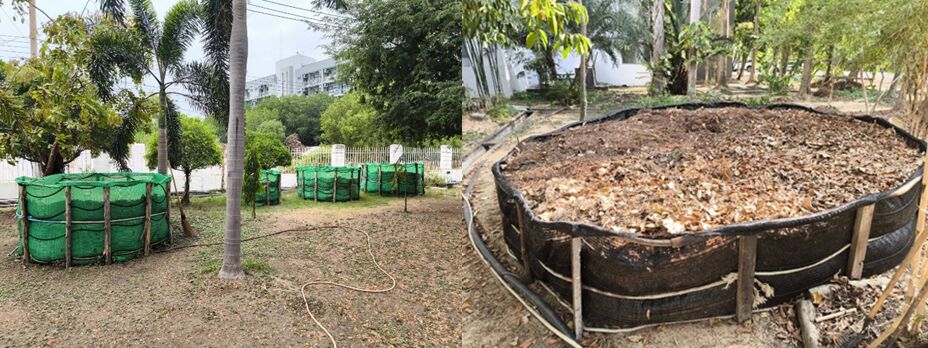
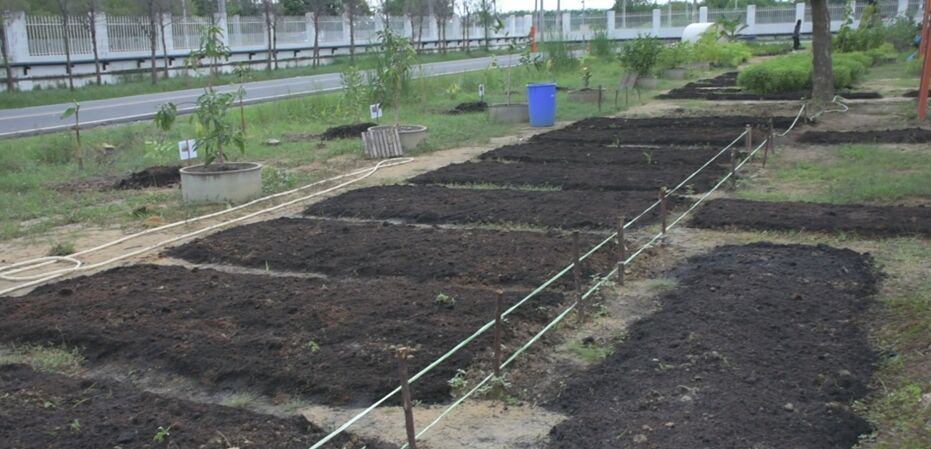
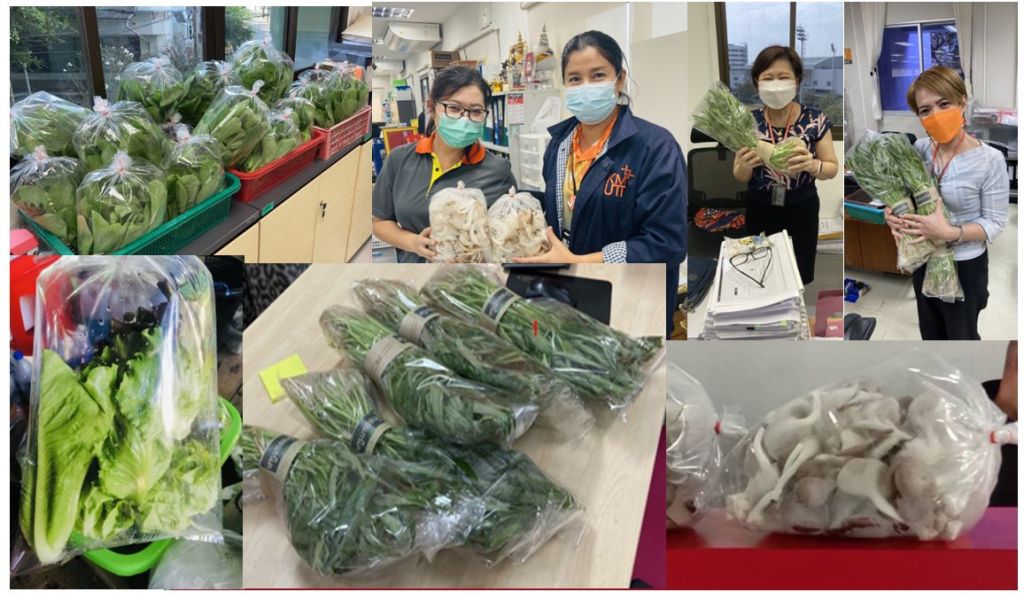
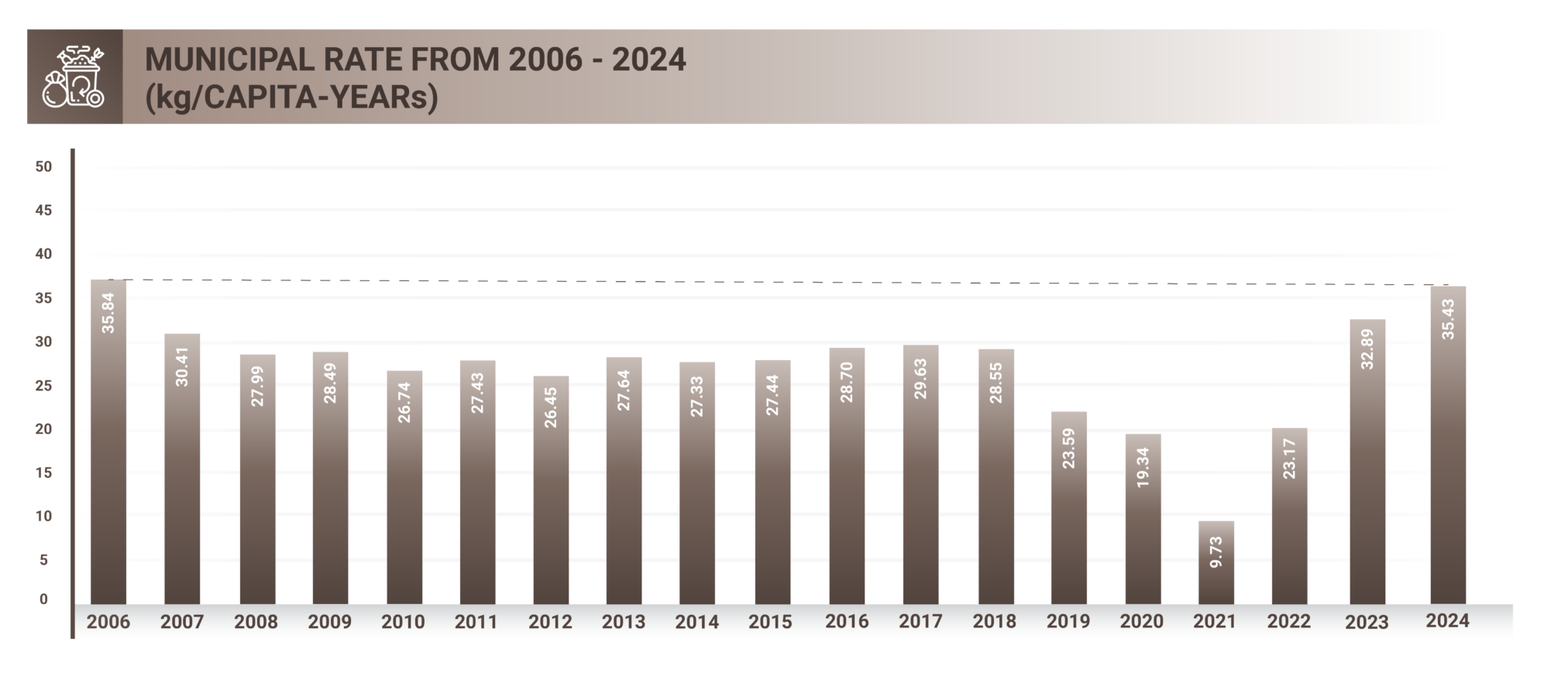
To achieve the KMUTT university policy, municipal solid waste (MSW) management system has been developed since 2002. The system consists of the three main parts: waste segregation, waste collection and waste utilization. Organic waste, recycled waste, non-recycled waste, toxic waste and workshop waste are generated within campus. The system is continuously developing through various activities such as exhibition and training program, which occur 5 times per year. The chart below provides information on the rate of municipal solid waste generation in kilograms/capita-year. Most recently, the generation rate of municipal solid waste, Garden waste, was 35.43 kilograms/capita-year in early 2006. At 35.84 kilograms/person per year, in 2024 it may be reduced by 1.14 %.
KMUTT Municipal solid wastes in 2024
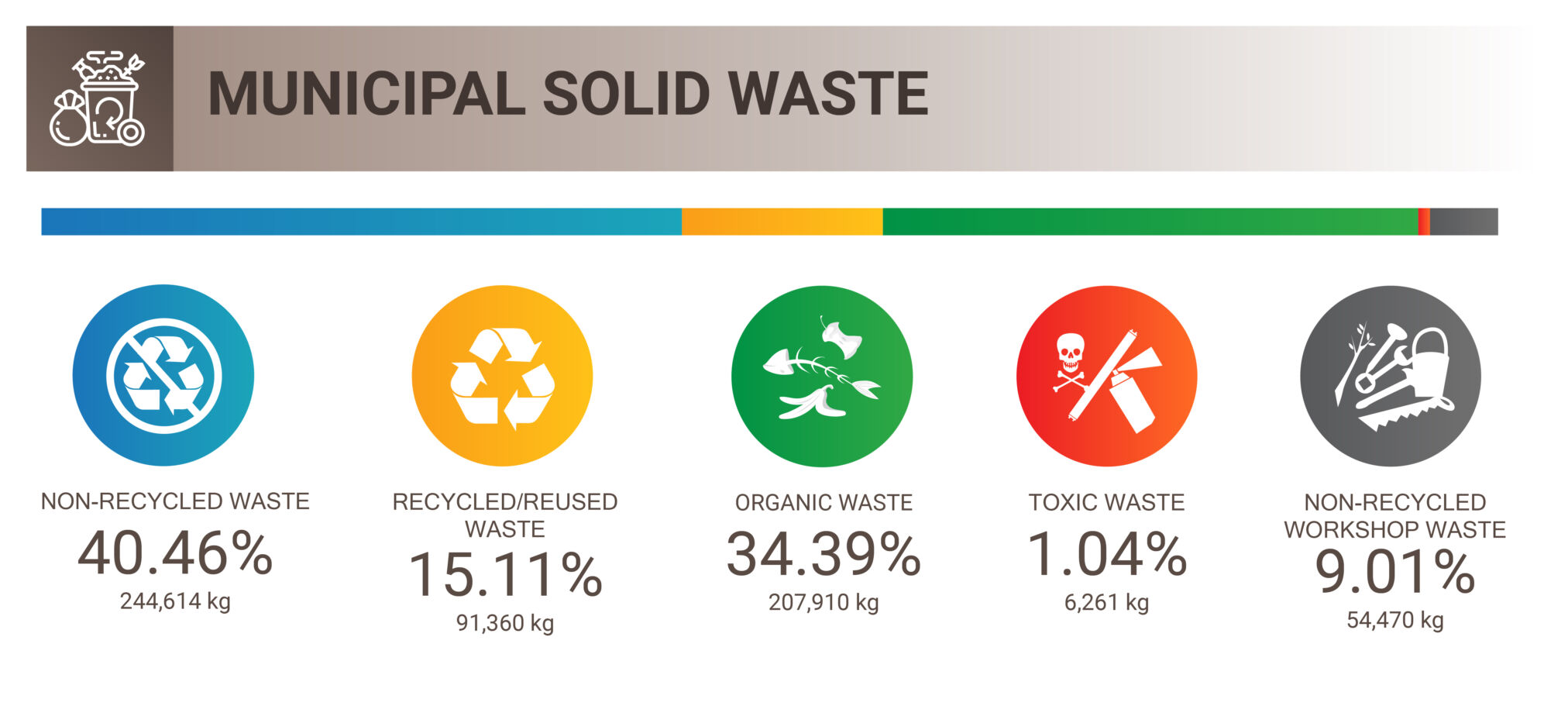
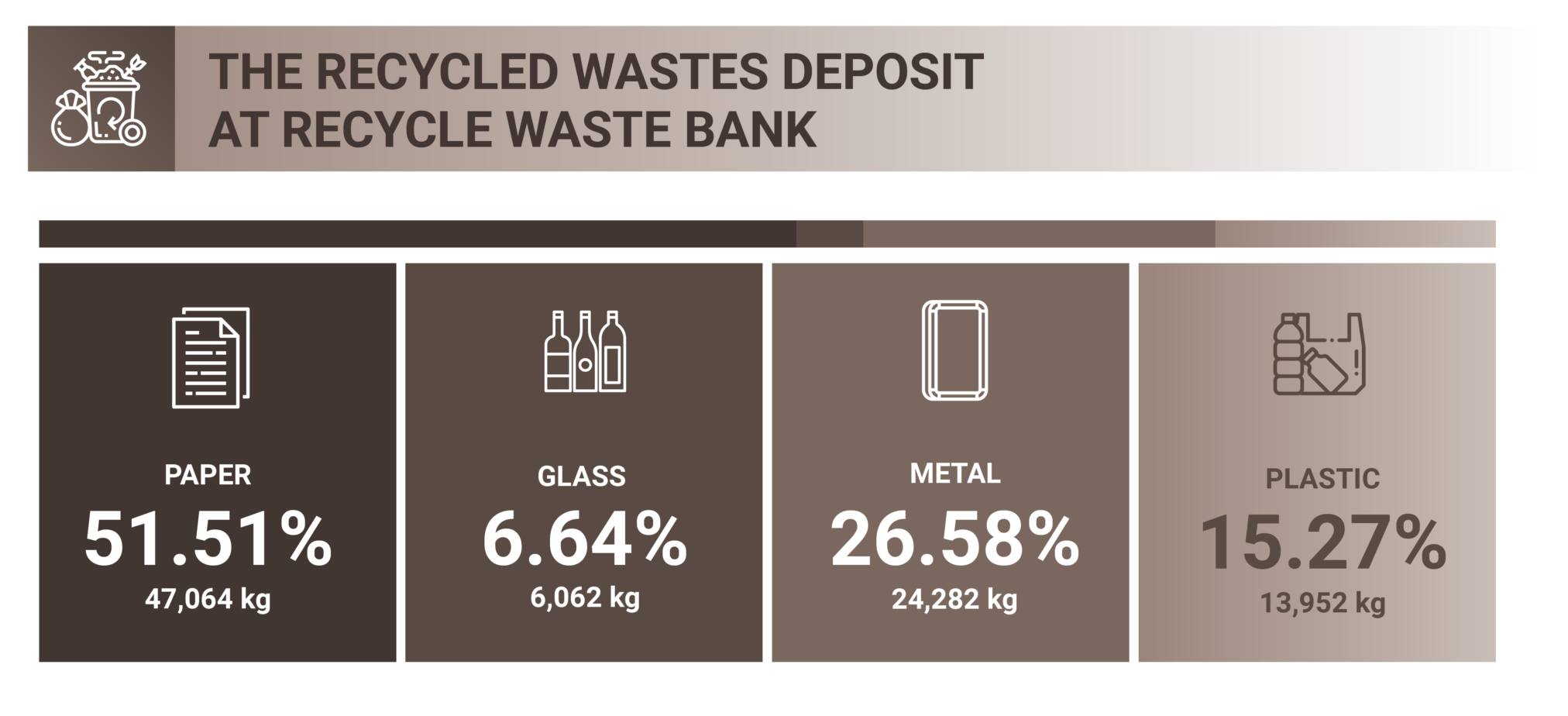
Campus population
KMUTT has a total population of 17,065 people, divided into 14,482 students and 2,583 personnel. If it is taken to calculate waste, KMUTT’s population creates food waste at 5.99 Kg/person/year.
Student statistics
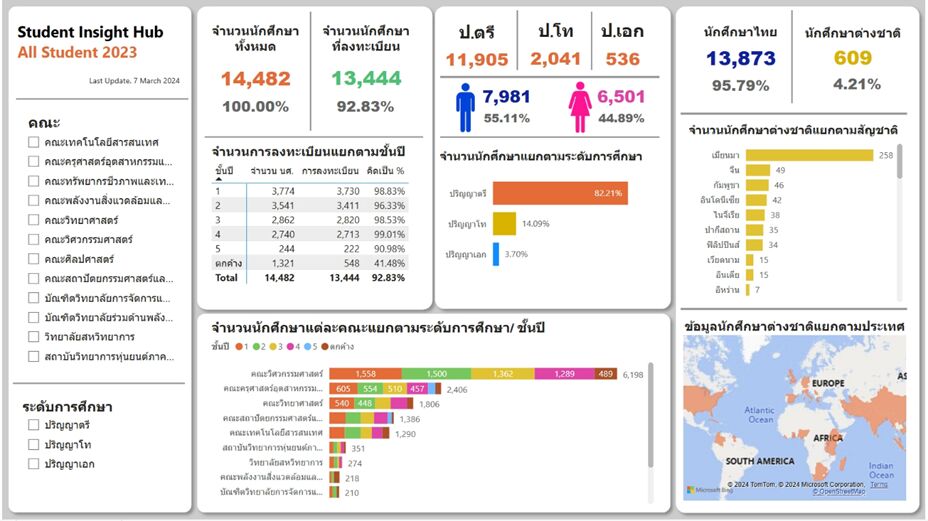
The image provides detailed data about the student population at King Mongkut’s University of Technology Thonburi (KMUTT) for the year 2023. Here is a summary of the key data:
Total Number of Students: 14,482 students in total.
Enrollment Status: 92.83% (13,444 students) are currently enrolled.
Degree Levels:
Bachelor’s Degree (ป.ตรี): 11,905 students (55.11% of the total).
Master’s Degree (ป.โท): 2,041 students (14.09%).
Doctoral Degree (ป.เอก): 536 students (3.70%).
Nationality:
13,873 Thai students (95.79%).
609 international students (4.21%).
International Students by Country:
The top five countries contributing international students are:
– Myanmar: 258 students.
– Vietnam: 49 students.
– China: 46 students.
– India: 42 students.
– Nepal: 38 students.
Academic Department Breakdown:
The largest number of students are in Engineering (3,774 students), followed by Science (3,541 students), and Business Administration (2,862 students).
Other departments include Architecture, Education, Law, and more.
Personnel statistics

Additional evidence link:
2.3 STUDENT HUNGER
1. Related information on our university as a body on having a programmer in place on student food insecurity/hunger.
Inside KMUTT
At King Mongkut’s University of Technology Thonburi (KMUTT), the university is dedicated to ensuring the health and well-being of its students, staff, and surrounding communities through a sustainable food security project. This initiative is rooted in the principles of sufficiency economy, focusing on local food production, environmental sustainability, and community empowerment. By promoting self-sufficiency in food production, KMUTT aims to improve the overall quality of life for all those involved, providing healthy food while fostering a sense of responsibility and practical learning among students and staff.
Part 1: Organic Vegetable Gardening in the Student Dormitory Area
As part of the project, KMUTT has set up organic vegetable gardens within the student dormitory areas. This initiative allows students and staff to participate in the growing of fresh, organic vegetables, which are not only nutritious but also contribute to reducing food miles and environmental impact. By providing access to home-grown produce, the project helps alleviate the financial burden of purchasing fresh vegetables from external sources, improving food security within the university community.
The gardens serve as a hands-on learning opportunity for students and staff, who can acquire valuable gardening skills and knowledge about organic farming practices. This experience also aligns with the university’s broader educational goals, teaching students about sustainability, environmental stewardship, and food production. It provides them with the tools to apply these skills both during their studies and in their personal lives, encouraging them to incorporate sustainable practices into their daily routines.
Part 2: Organic Vegetable Gardening for Trade within the Campus and Community
KMUTT also takes a community-centered approach by expanding its organic vegetable gardens to produce food for trade within the university and local community. The university uses compost made from leaves and branches collected around the campus as natural fertilizer for these vegetable gardens. By turning waste into a valuable resource, KMUTT promotes the principles of zero waste and resource efficiency, contributing to both environmental sustainability and food security.
The surplus produce from the gardens is made available for purchase by KMUTT staff, and even local community members, promoting a local food economy and encouraging sustainable consumption. This not only provides affordable access to healthy food but also supports local food systems and fosters stronger connections between the university and the surrounding community. The project creates a mutually beneficial relationship, where both the university and its neighbors work together to enhance food access and well-being.
Using Campus Resources for Sustainability
One of the most impressive aspects of KMUTT’s food security project is its innovative use of campus resources to support sustainable practices. The university’s composting system uses organic waste, such as leaves, branches, and other plant matter, to produce high-quality organic fertilizer. This not only reduces the need for chemical fertilizers but also helps manage campus waste in an environmentally friendly way.
Additionally, this system encourages students and staff to be more mindful of their waste and its potential value. By turning organic waste into fertilizer, the project not only closes the loop on campus waste but also reduces the university’s carbon footprint, contributing to its overall sustainability goals.
Empowering Students and Staff Through Practical Experience
KMUTT’s food security project is designed to give students and staff the opportunity to gain practical experience and skills related to agriculture, sustainability, and food systems. This aligns with the university’s philosophy of holistic learning—where students are encouraged to apply classroom knowledge in real-world situations. Whether it’s learning how to cultivate crops, understand the processes of organic farming, or discover the importance of food security, this project provides a hands-on learning environment that helps develop life skills and a deeper understanding of sustainable living.
Aligning with the Philosophy of Sufficiency Economy
The university’s food security project is deeply rooted in the principles of the sufficiency economy philosophy, which emphasizes the importance of moderation, self-reliance, and sustainability in economic and social practices. By applying these principles, KMUTT is able to foster an environment where students, staff, and the surrounding community are encouraged to make sustainable choices that are both practical and beneficial for the long term.
In a world where food insecurity and environmental degradation are rising concerns, KMUTT’s sustainable food security project demonstrates a practical solution that combines sustainability with community well-being. It is a model for how universities can take an active role in addressing global challenges, making a tangible impact on both the local community and the environment.
KMUTT’s food security project is a shining example of how educational institutions can foster sustainable development while simultaneously addressing the growing challenges of food security, nutritional health, and community well-being. By promoting organic farming, waste reduction, and local food systems, the university not only provides healthy food options for its students and staff but also empowers them with the skills and knowledge to make informed choices about their own sustainability practices. This project aligns with the university’s broader goals of creating a sustainable, resilient, and inclusive community, while also supporting the sufficiency economy philosophy that encourages balanced, responsible living.

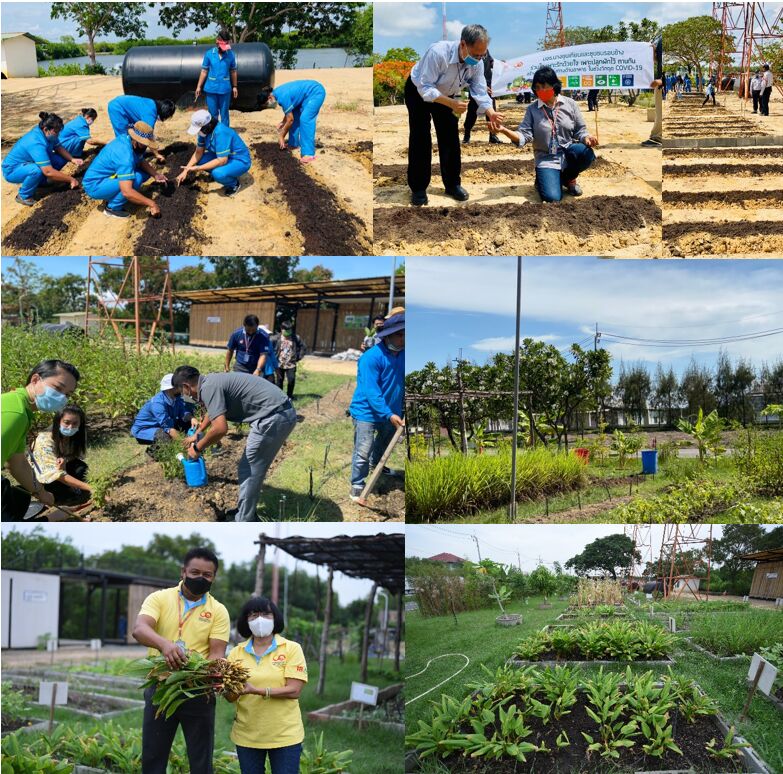
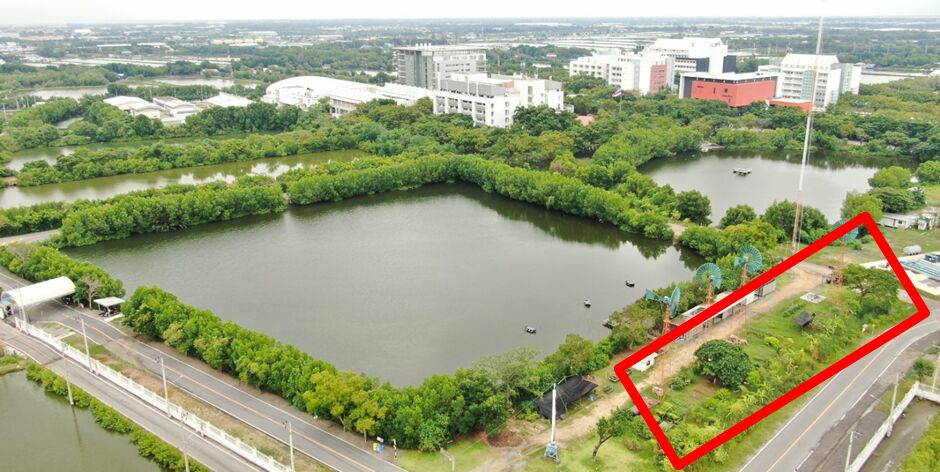
Cultivation of various vegetable gardens by starting to plant water spinach, lettuce, fairy mushroom,Guangdong
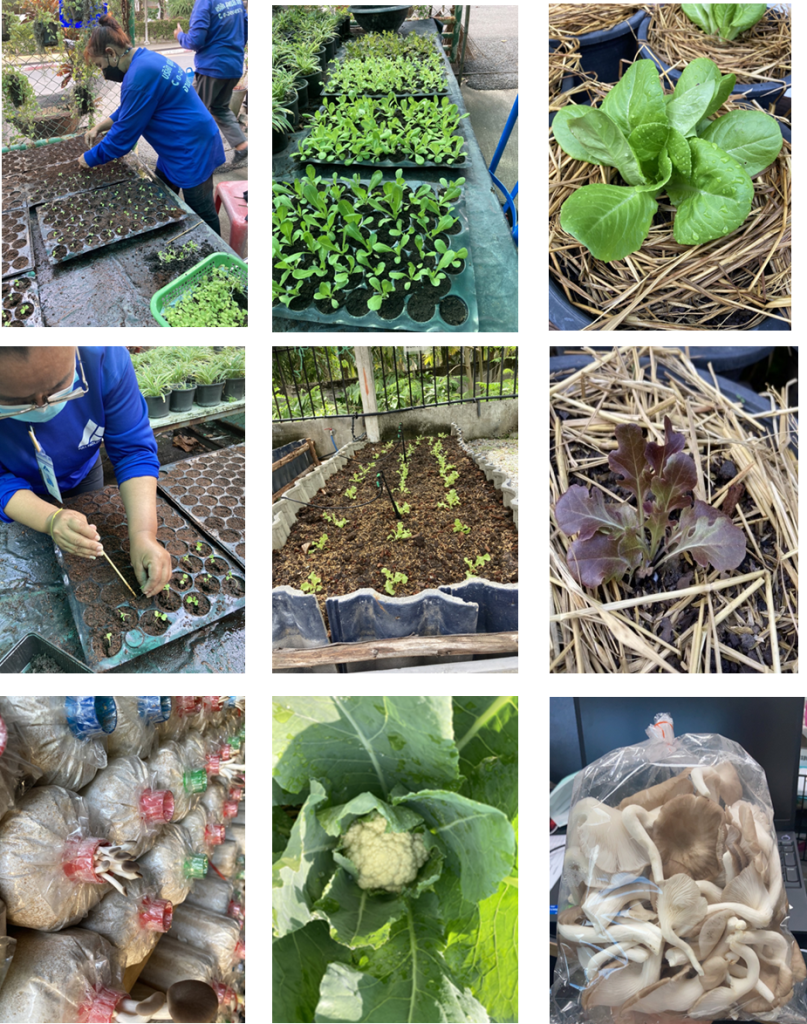
Distribution to personnel within the university.
The yield from the cultivation of vegetables in the kitchen garden is more than 200 kg.
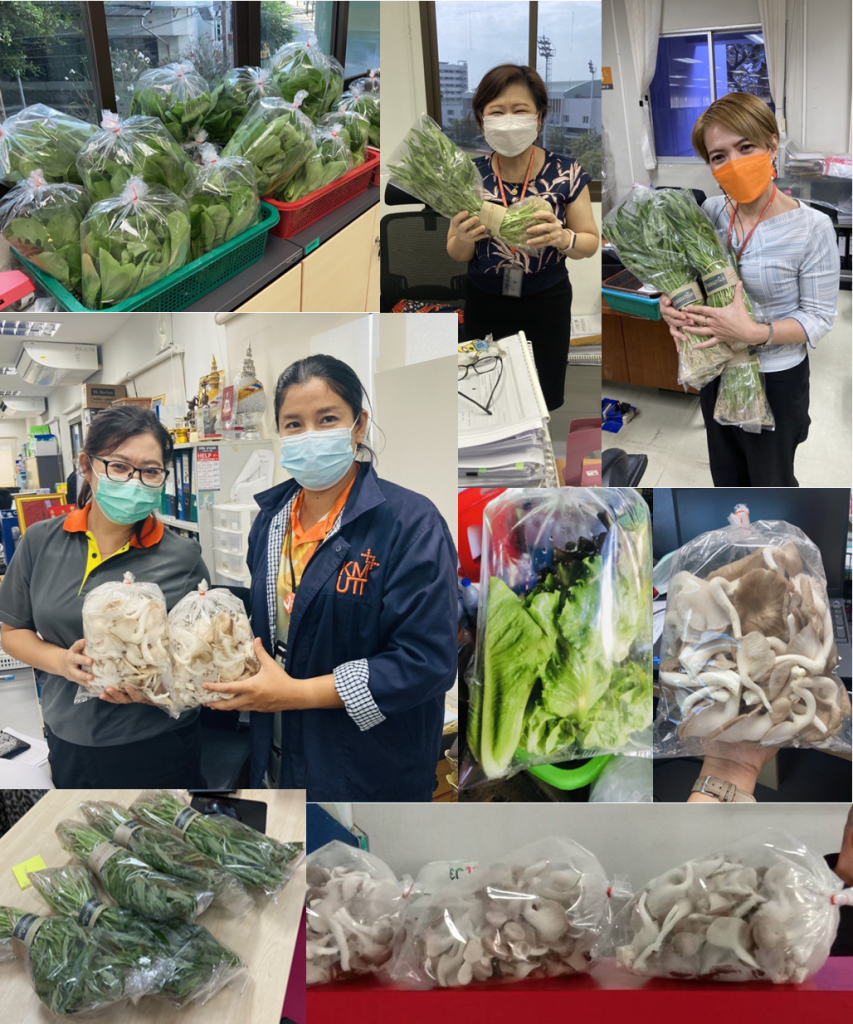
Outside KMUTT
King Mongkut’s University of Technology Thonburi (KMUTT) has long been committed to improving sustainability and community well-being, not only within its campus but also in the surrounding neighborhoods. Through the efforts of the Sustainable Activities Promotion Group (EESH), KMUTT has initiated a series of impactful projects designed to enhance food security, reduce waste, and promote sustainable living practices in the local community.
Collaborating for a Healthier, Greener Community
In partnership with the local Lang Suan Thon community, KMUTT has spearheaded a community-driven initiative to support organic gardening and reduce the financial burden of food expenses, especially during the challenging COVID-19 pandemic. This initiative integrates KMUTT’s biogas production system, which uses food waste to generate biogas and bio-fermented water—a by-product that is highly beneficial for organic gardening. By sharing this valuable resource with the community, KMUTT is not only reducing waste but also enhancing the community’s agricultural practices.
Distributing Organic Vegetable Gardening Resources
To further support this initiative, KMUTT distributed manuals on growing organic vegetables to residents of the Lang Suan Thon community. These guides offer practical advice on creating non-toxic kitchen gardens, teaching community members how to grow their own vegetables in a sustainable and healthy way. This initiative aims to provide families with access to fresh, organic produce, while simultaneously teaching them how to manage their own food sources responsibly.
The Green Heart Student Group’s Contribution
KMUTT’s Green Heart Student Group, known for its commitment to sustainability, also played a pivotal role in this project by organizing donations of seeds for community gardens. These seeds were donated by people from all over Thailand, collected through various media channels and online groups. The donations were distributed to 15 communities around the university, with the goal of promoting self-sufficiency in food production. The plants grown from these seeds contribute to non-toxic, sustainable food sources that improve nutrition while reducing reliance on store-bought products.
The seeds provided to these communities allow people to grow vegetables in their own gardens, helping to alleviate the financial strain of purchasing fresh produce, especially during difficult times like the COVID-19 pandemic. By fostering local food production, KMUTT encourages food security and sustainability at the grassroots level, promoting healthier and more resilient communities.
Reducing Waste and Supporting Sustainability
The partnership between KMUTT and the local communities highlights the university’s efforts in closing the loop on food waste. Through the use of bio-fermented water from the university’s biogas production process, KMUTT provides a sustainable solution to composting and fertilizing the organic gardens in local homes. This practice not only reduces waste but also supports soil health, ensuring that the gardens can thrive in an eco-friendly and sustainable manner.
Additionally, the use of biogas and bio-fermented water reflects KMUTT’s broader commitment to green energy and sustainable practices. The university’s waste-to-energy initiatives help reduce its carbon footprint and promote environmental stewardship, providing a model for other institutions and communities to follow in creating sustainable food systems.
Fostering Long-Term Impact on Local Food Systems
The goal of KMUTT’s initiative goes beyond immediate relief during the pandemic. By empowering local communities with the tools and knowledge to create their own sustainable food systems, the university is fostering long-term change. This project not only contributes to food security but also builds community resilience, helping neighborhoods become more self-sufficient and independent when it comes to food production.
By providing educational resources, organic seeds, and sustainable gardening solutions, KMUTT supports the development of local food systems that will continue to benefit the community long after the pandemic. These efforts align with the university’s mission to create a sustainable, resilient future for both its campus and the surrounding community.
KMUTT’s partnership with the Lang Suan Thon community exemplifies how universities can make a meaningful impact beyond their campuses, promoting sustainability, food security, and community well-being. By utilizing biogas for energy, distributing organic gardening resources, and providing seeds for community farms, KMUTT has taken tangible steps toward building more resilient and self-sufficient communities. This initiative not only helps reduce expenses during challenging times but also creates a foundation for long-term sustainability, empowering local residents to take control of their food sources while contributing to a healthier and more sustainable future.
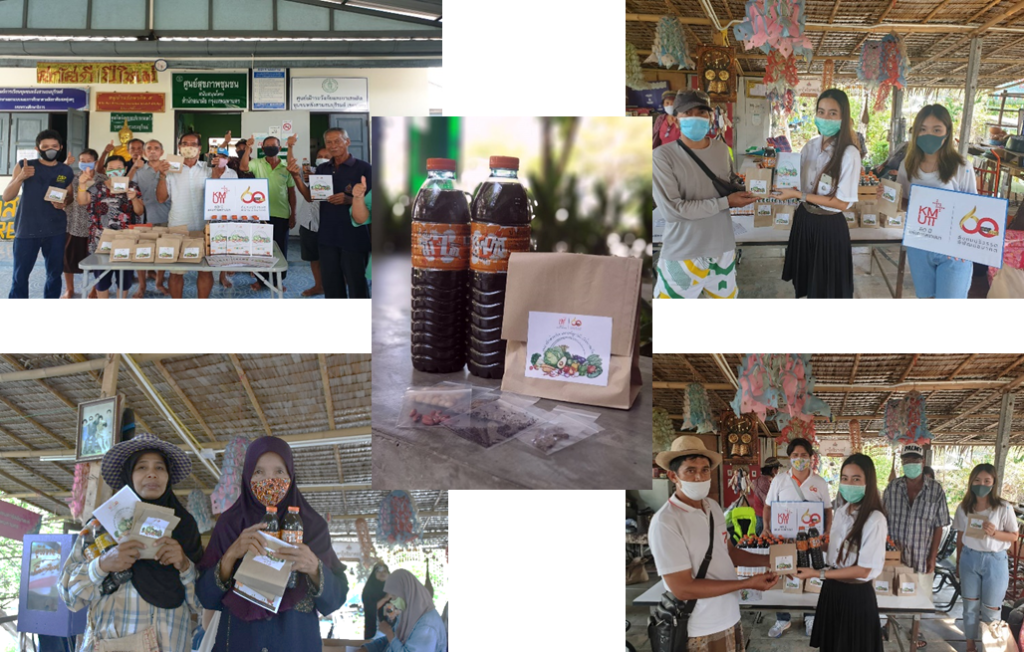
King Mongkut’s University of Technology Thonburi arranged a selection of restaurants and shops serving within the university with criteria such as healthy food, vegetarian food, and environmentally friendly packaging. Both restaurants and beverages on campus were also enforced to use raw materials that can be found locally.
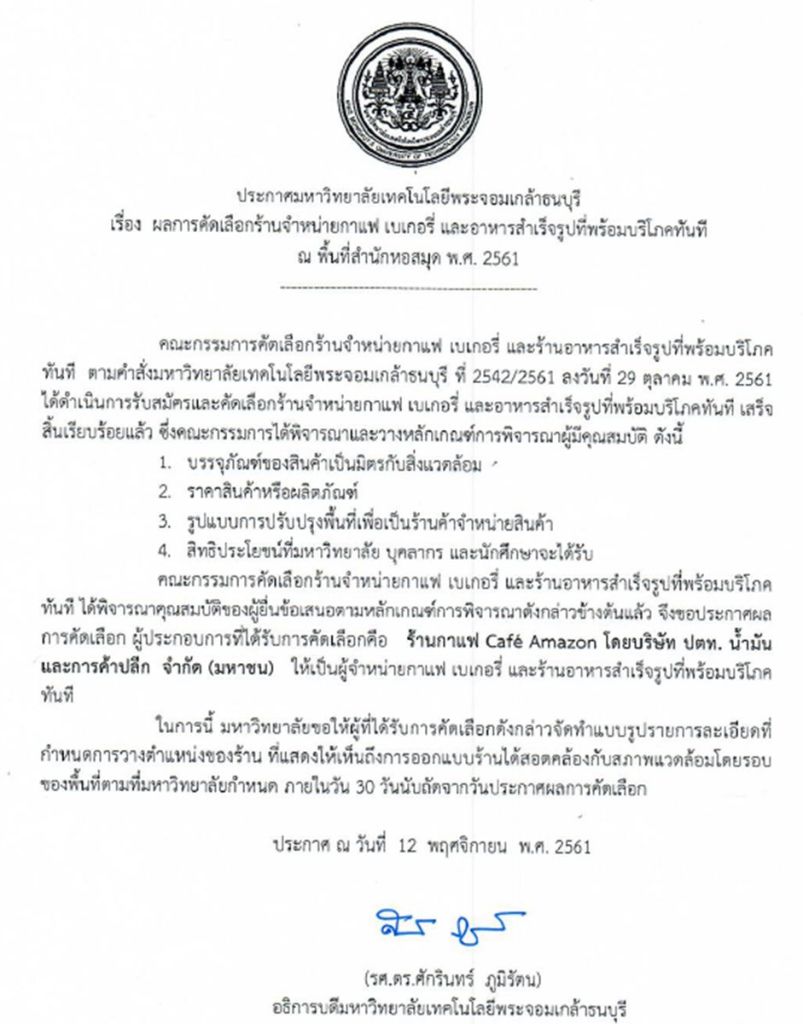
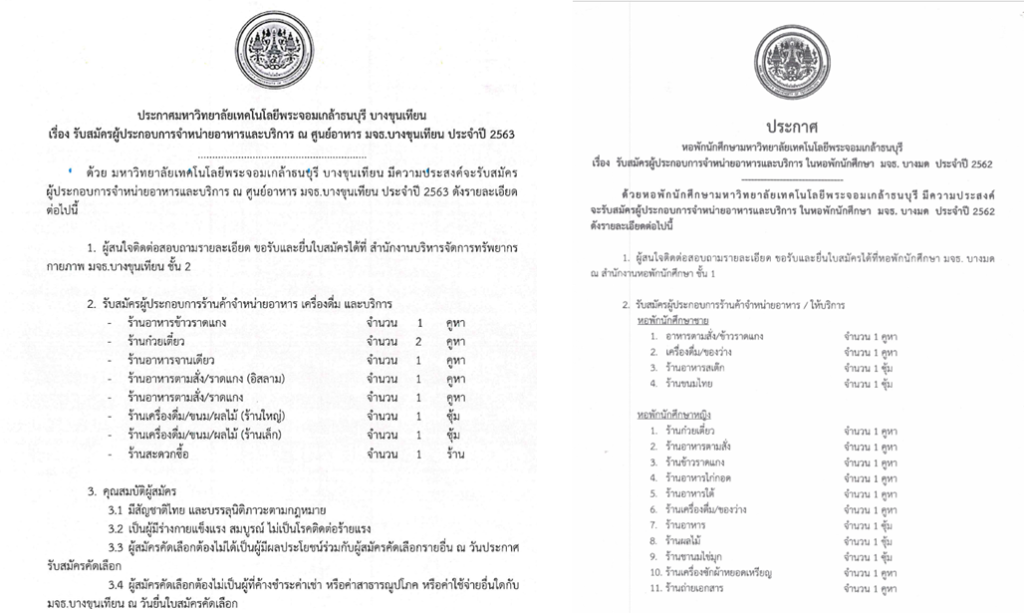
Additional evidence link:
1.http://www2.kmutt.ac.th/news/newsdetail.aspx?ref=201903001791
2.http://www2.kmutt.ac.th/news/newsdetail.aspx?ref=201801001784
3.http://www2.kmutt.ac.th/news/newsdetail.aspx?ref=200901000866
4.http://www2.kmutt.ac.th/news/newsdetail.aspx?ref=200908001188
5.http://www2.kmutt.ac.th/news/newsdetail.aspx?ref=200908001188
2. Related information on our university as a body on providing interventions to target hunger among students and staff.
King Mongkut’s University of Technology Thonburi (KMUTT) recognizes the critical role that education plays in shaping a student’s future. In line with its vision of producing talented, well-rounded individuals, the university offers a variety of scholarships designed to support students facing financial challenges, while also encouraging academic excellence and ethical behavior. These scholarships are aligned with the university’s goal of providing opportunities for all students to achieve their potential, regardless of their financial background.
KMUTT’s scholarship program is comprehensive, encompassing a range of initiatives that address different needs and circumstances. Below are the key types of scholarships offered by KMUTT to ensure students receive the support they need to succeed.
1. Scholarships to Develop Students’ Potential
These scholarships are aimed at encouraging academic and personal growth. They are intended for students who demonstrate exceptional potential in their respective fields of study. By investing in the development of talented individuals, KMUTT ensures that these students have the resources they need to excel in their education and later contribute meaningfully to society. These scholarships also focus on cultivating skills, knowledge, and leadership to equip students for future success.
2. Scholarships to Create Opportunities and Good Moral Character
In addition to academic excellence, KMUTT places great emphasis on moral development and ethical behavior. Scholarships under this category are designed to support students who show not only academic promise but also good character and a commitment to personal growth. These scholarships aim to create well-rounded individuals who are not only proficient in their academic fields but also responsible, ethical, and proactive members of society.
3. Student Welfare Fund
This category of scholarships is especially designed for students who face financial hardships that could hinder their ability to pursue their studies. The Student Welfare Fund provides critical financial support to ensure that students in financial distress have the opportunity to complete their education. This fund helps alleviate the stress and burden that comes with not having sufficient financial resources to support one’s studies.
Specific Scholarships under the Student Welfare Fund:
- Student Support Funds: For students experiencing financial difficulties that affect their ability to afford education-related expenses, the university allocates this scholarship to ensure these students can continue their studies without financial barriers.
- Funds to Support Disabled Students: KMUTT follows the Committee for the Promotion of Education for Persons with Disabilities’ 2009 regulations, providing scholarships for students with disabilities to ensure they have equal access to higher education and opportunities to succeed academically.
- “Raksa Dhamma” Project: This project is specifically aimed at offering educational opportunities to students from non-formal and informal education backgrounds, including those from Phrapariyattidhamma Schools or students completing vocational certificate programs. The scholarship ensures that these students can continue their higher education at KMUTT, helping them integrate into formal educational systems.
- Accident Victims Fund: This scholarship assists students whose families experience unforeseen disasters, such as fires, floods, or storms, by providing financial relief. This is specifically for incidents that do not involve personal injury but result in significant financial hardship for the student’s family.
- Tuition Assistance Scholarships during the COVID-19 Pandemic: In response to the economic hardships caused by the COVID-19 pandemic, KMUTT introduced scholarships aimed at supporting students who faced difficulties due to the loss of part-time work or their parents’ financial instability. This initiative provides critical tuition support to ensure that students can continue their studies despite external challenges.
- Grants from Companies and Philanthropists: KMUTT also collaborates with corporate partners and philanthropic donors to provide scholarships for students with strong academic records but lacking financial resources. These grants can be awarded either for the duration of the student’s course or on an annual basis, and they help relieve the financial burden of tuition fees.
- Educational Loan Scholarships for KMUTT Students: This scholarship provides students with the opportunity to borrow funds to cover their educational expenses. Students are expected to repay the loan within three years of completing their course. This scholarship is an essential resource for students who need immediate financial support but can manage to repay after graduation.
4. Scholarships for International Students
KMUTT also recognizes the importance of fostering a global academic environment. As part of its commitment to promoting international collaboration and diversity, the university offers scholarships for international students. These scholarships help attract talented students from around the world, enriching the academic community at KMUTT and enhancing cross-cultural exchange.
KMUTT’s scholarships are a testament to the university’s commitment to supporting students in various circumstances, ensuring that all students—regardless of financial background—have the opportunity to pursue higher education and succeed in their academic endeavors. Through a combination of merit-based, need-based, and special-purpose scholarships, KMUTT not only provides educational opportunities but also fosters ethical development and global collaboration. These scholarships play a vital role in creating a dynamic, diverse, and inclusive academic environment where students can thrive, grow, and contribute to society.
| ประเภททุน | จำนวน นศ. ที่ลงทะเบียน (คน) | จำนวนทุน (คน) | จำนวนเงิน (ล้านบาท) |
| ระดับปริญญาตรี | 11,640 | 4,760 | 141.80 |
| ทุนเงินรายได้ (กองทุนการศึกษา) | 1264 | 7.63 | |
| ทุนสนับสนุนการศึกษา | 1 | 0.07 | |
| ทุนธรรมรักษา | 13 | 1.70 | |
| ทุนอุดหนุนนักศึกษา | 2 | 0.05 | |
| ทุนสิริวิริยา | 6 | 0.76 | |
| ทุนการศึกษาช่วยเหลือค่าเล่าเรียน 10% | 0 | 0.00 | |
| ทุนผู้ประสบอุบัติภัย | 9 | 0.03 | |
| ทุนช่วยเหลือรูปแบบอื่น ๆ (ฉุกเฉิน) ให้แก่นักศึกษาที่ได้รับผลกระทบ จากสถานการณ์โรคโควิด 19 | 1,233 | 5.02 | |
| แหล่งทุนภายนอก | 3,496 | 134.17 | |
| ทุนกู้ยืมของรัฐ | 2,546 | 103.56 | |
| ทุนให้เปล่าจากภายนอก | 260 | 7.79 | |
| เงินคณะและแหล่งทุนภายนอก | 690 | 22.82 | |
| ระดับบัณฑิตศึกษา | 2,086 | 412 | 17.18 |
| ทุนเงินรายได้ (กองทุนการศึกษา) | 48 | 0.20 | |
| ทุนการศึกษาช่วยเหลือค่าเล่าเรียน 10% | 0 | 0.00 | |
| ทุนช่วยเหลือรูปแบบอื่น ๆ (ฉุกเฉิน) ให้แก่นักศึกษาที่ได้รับผลกระทบ จากสถานการณ์โรคโควิด 19 | 48 | 0.20 | |
| แหล่งทุนภายนอก | 364 | 16.98 | |
| ทุนจากแหล่งทุนภายนอก/ คณะจัดสรร | 364 | 16.98 | |
| รวมทั้งสิ้น | 13,726 | 5,172 | 158.98 |
KMUTT has a lunch program for students in need. with kind-hearted adults giving lunch funds to the students
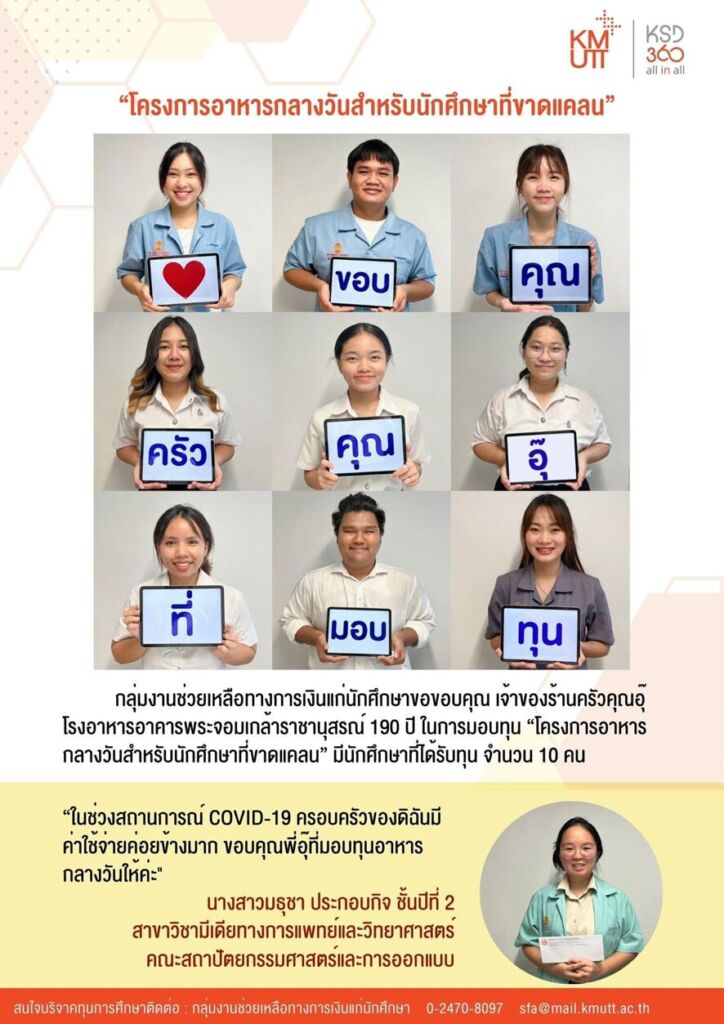
KMUTT during the examination period Students will find a place to read books and study for exams. KMUTT will open the building for students to read books and study for exams. Snacks will be prepared in the building. Instant noodles, bread, hot milk, and drinks are provided for students to eat while studying and studying for exams by these foods and drinks Receive support from kind adults.
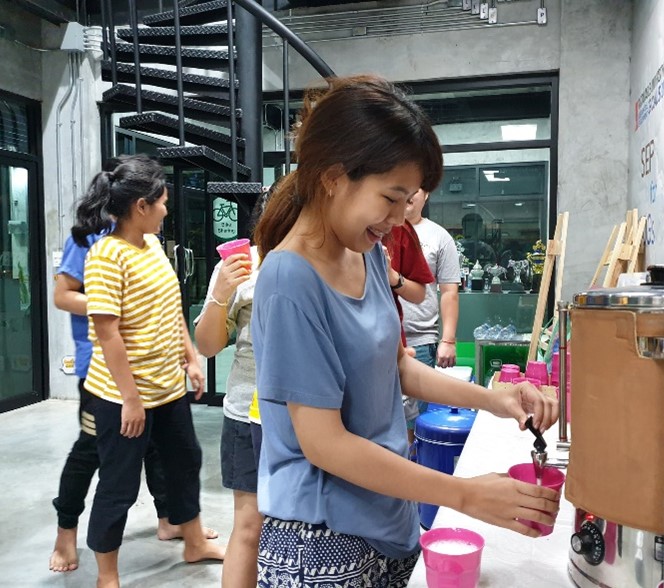
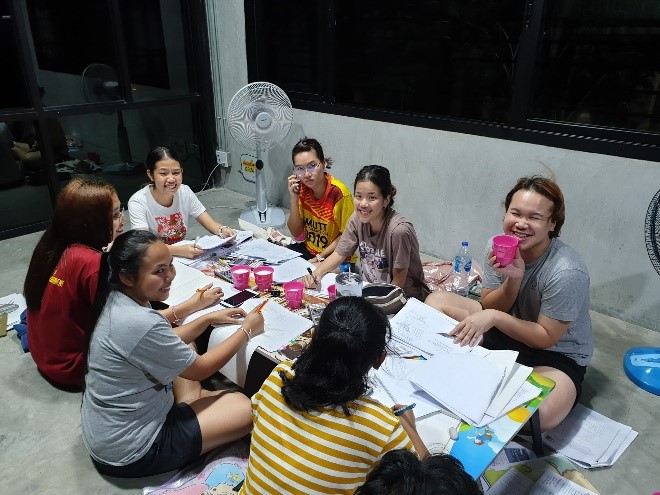
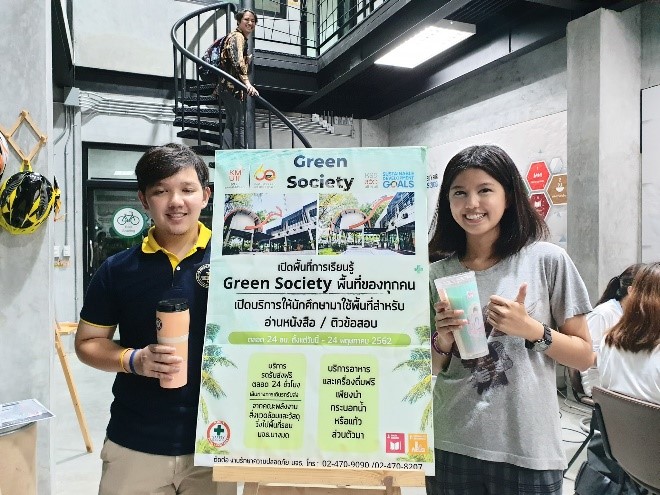
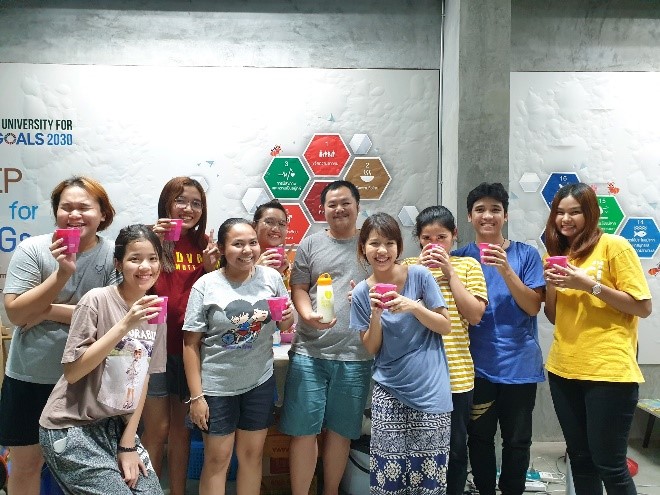

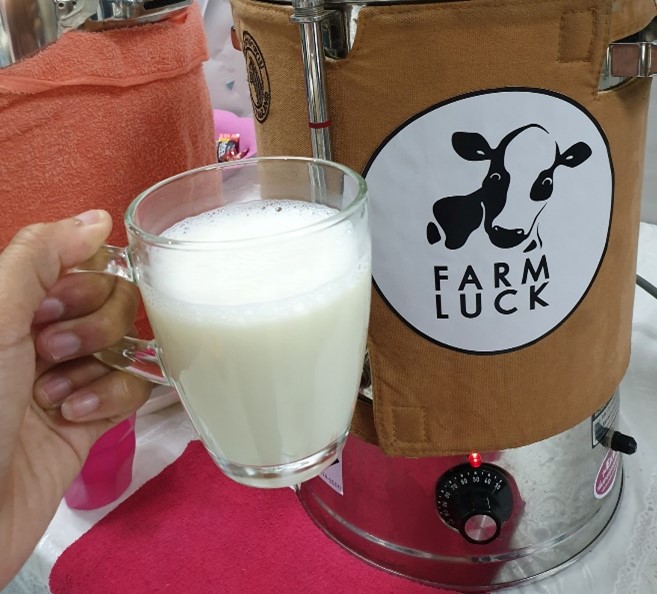
Outside KMUTT
KMUTT delivers donated items to help disaster victims, round 2
On September 25, 2024, Student Financial Aid Working Group Delivering donated items for the project “KMUTT joins together to help flood victims” with Ms. Panadda Puangpee, head of the work group. Representing the project to give items to Thailand Post Company Limited. Under the project “Thailand Post connects kindness” Delivered to Flood Victims” to be delivered to flood victims according to the next project objective.
The organizers of the project would like to thank students, staff, and the general public for donating to the victims. The project will be accepting donations until September 30, 2024. Donations can be made on the 1st floor of the President’s Office Building (N2). By requesting an announcement to refrain from accepting second-hand clothing items. But we are also accepting items such as dry food and medicine that have not expired. and cleaning equipment
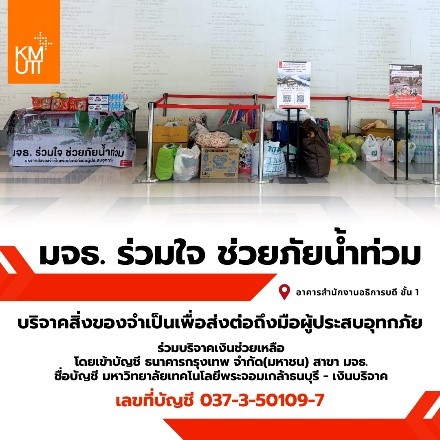
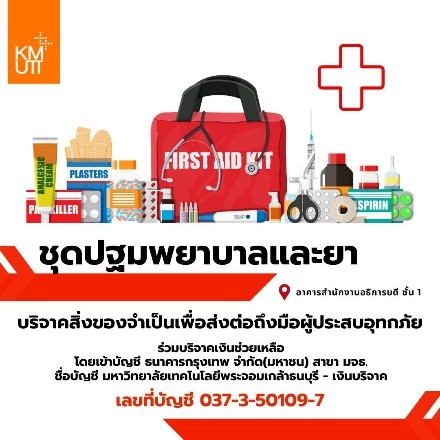
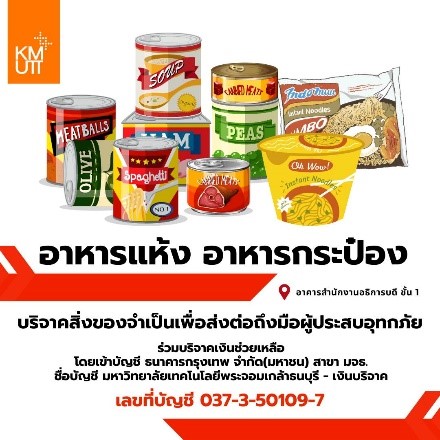
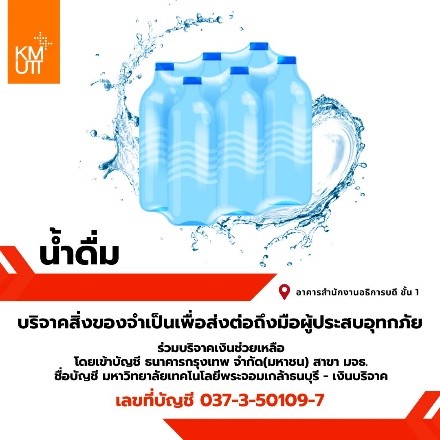
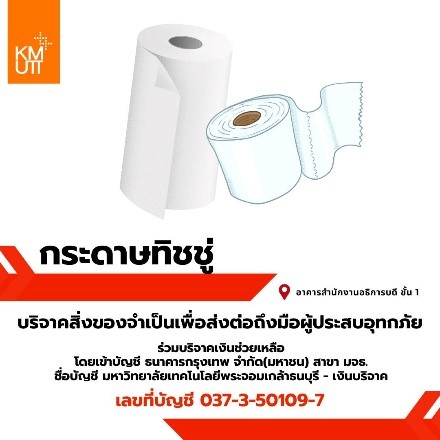
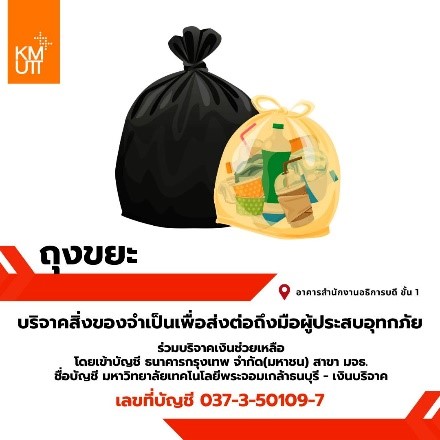
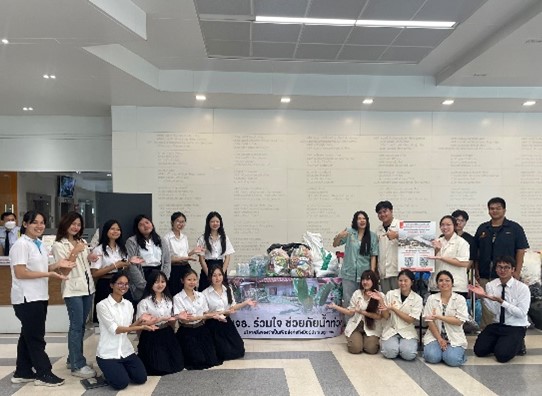
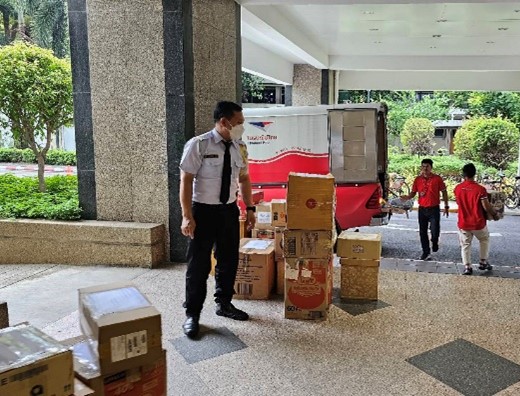
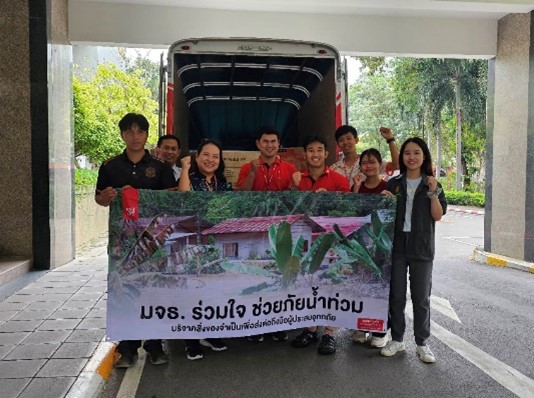
Additional evidence link:
3. Related information on our university as a body on providing sustainable food choices for all on campus, including vegetarian and vegan food.
At King Mongkut’s University of Technology Thonburi (KMUTT), the promotion of healthy eating and the development of a safe food system have been core initiatives since 2010. From the very beginning, KMUTT has taken steps to ensure that its food offerings are not only nutritious but also sustainable and inclusive for all members of the university community. With a growing emphasis on health, sustainability, and waste reduction, KMUTT has implemented clear guidelines for selecting food vendors and curating food options that align with the university’s commitment to sustainability and well-being.
A Decade of Healthy Food Choices
Since 2010, KMUTT has been dedicated to fostering a food culture that prioritizes health-conscious meals. The university established a set of rules and regulations for selecting food vendors, ensuring that food provided on campus supports the well-being of students, staff, and faculty. This initiative reflects the university’s broader focus on promoting a healthy lifestyle through proper nutrition, all while considering environmental impact and waste reduction.
Healthy and Diverse Food Offerings
By 2021, KMUTT’s efforts in promoting healthier food choices were fully realized with a wide range of offerings available across its four canteens. These canteens proudly serve vegetarian and plant-based meals, featuring food prepared from local and domestic raw materials. The decision to use locally sourced ingredients not only supports local farmers and businesses but also reduces the carbon footprint associated with food production and transportation. This approach reflects KMUTT’s broader commitment to sustainable food systems, where the environment and local economies are integral to the food choices offered.
Catering to Dietary Preferences and Special Needs
KMUTT understands the diverse dietary needs of its students, faculty, and staff. As part of its commitment to inclusivity, the university’s canteens also offer food options for Islamic students and personnel, ensuring that meals are pork-free in accordance with religious dietary practices. This ensures that everyone on campus has access to meals that respect their cultural and religious beliefs.
Portion Control for Waste Reduction
In response to the growing issue of food waste, KMUTT introduced a unique approach to portion control. The university allows individuals to select their desired portion size from four options—S (small), M (medium), L (large), and XL (extra large). This customization enables consumers to choose an appropriate amount of food that matches their hunger levels, reducing the chances of excess food being discarded. This initiative not only contributes to minimizing food waste on campus but also encourages students and staff to be more mindful of their eating habits and the environmental impact of food consumption.
Reducing Food Waste and Promoting Sustainability
The university’s ongoing efforts to reduce food waste are aligned with its overall sustainability goals. By offering portion size options and carefully curating food choices that meet nutritional needs, KMUTT has been able to significantly decrease the amount of wasted food generated across its canteens. This effort also extends to waste management practices, as food scraps are properly composted or used in sustainable agricultural practices, contributing to a circular food economy on campus.
A Model for Sustainability and Health
KMUTT’s focus on providing healthy, sustainable food has become a model for other universities and institutions. The emphasis on local sourcing, healthy meal options, and inclusive dietary practices showcases how universities can play a leading role in promoting nutrition, sustainability, and waste reduction within their communities. As the world faces increasing challenges related to climate change, food security, and health, KMUTT’s initiatives are a timely and impactful solution that addresses these critical issues.
In conclusion, KMUTT’s approach to food services reflects its broader commitment to a sustainable future. By offering nutritious meals, reducing food waste, and supporting local economies, KMUTT is not only contributing to the health and well-being of its community but also to the preservation of the environment for future generations.
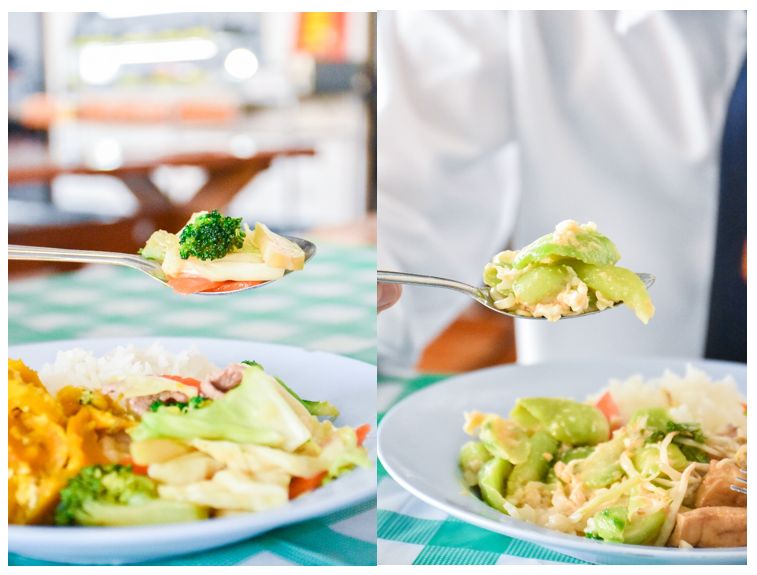
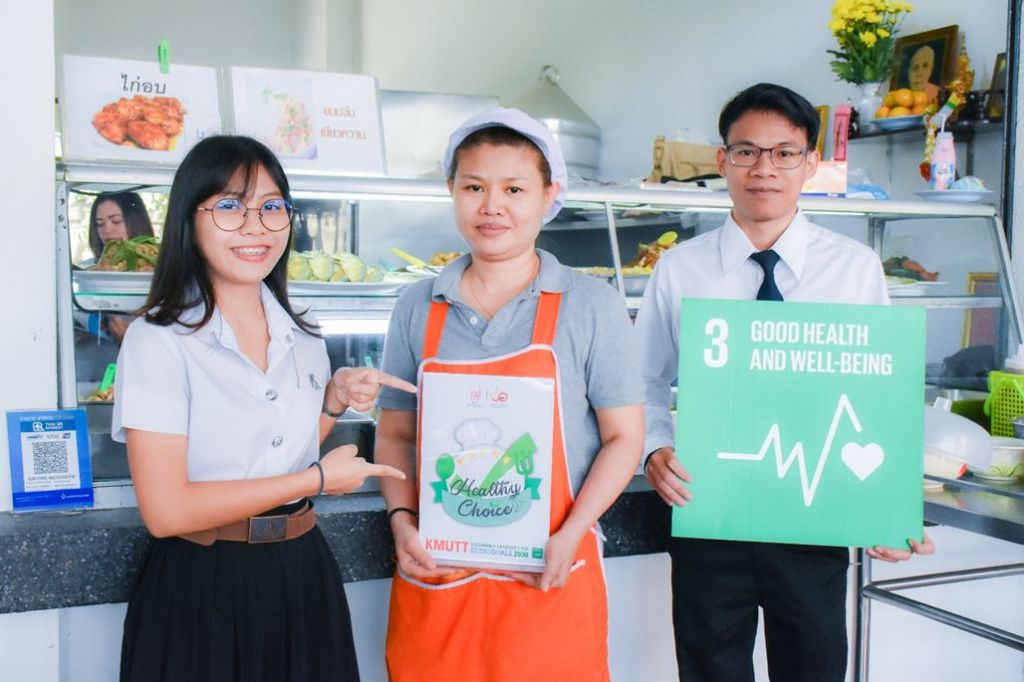
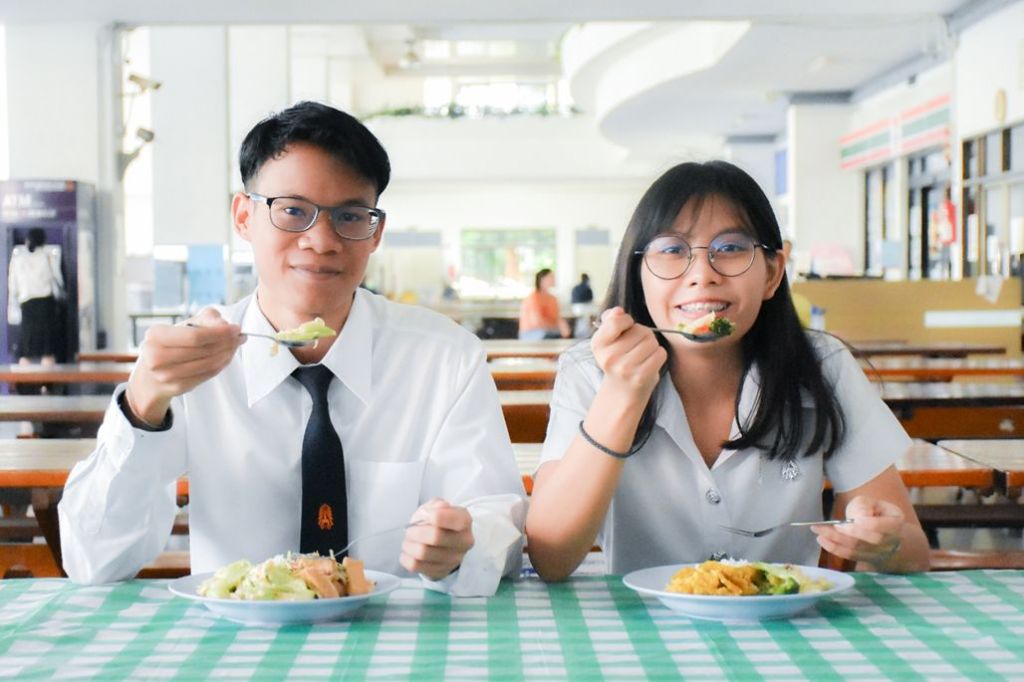
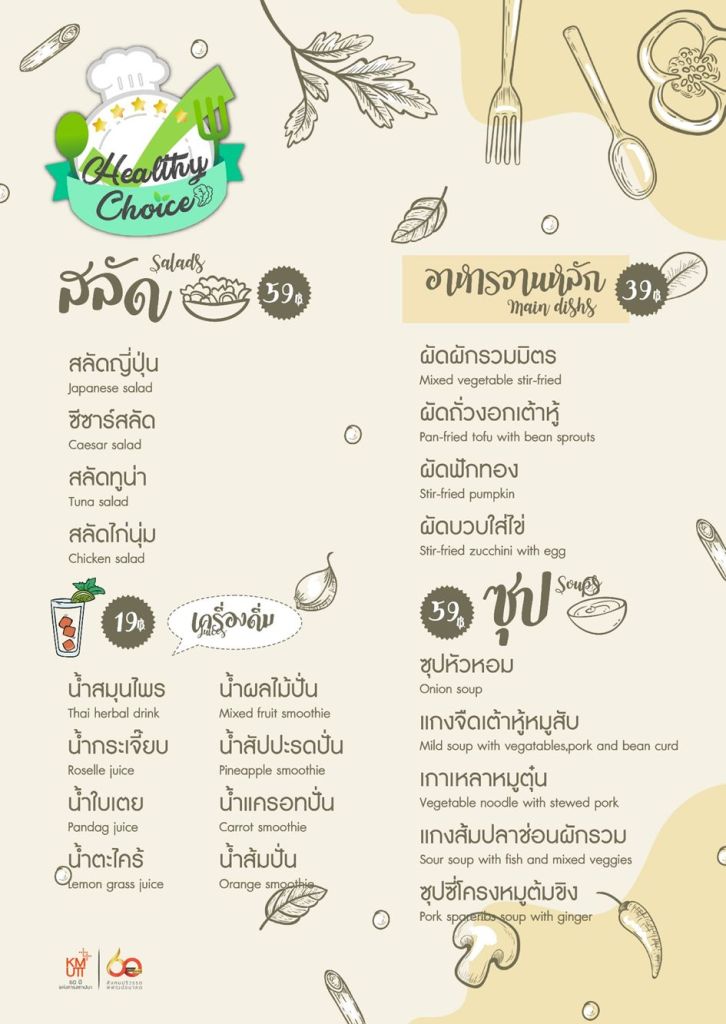
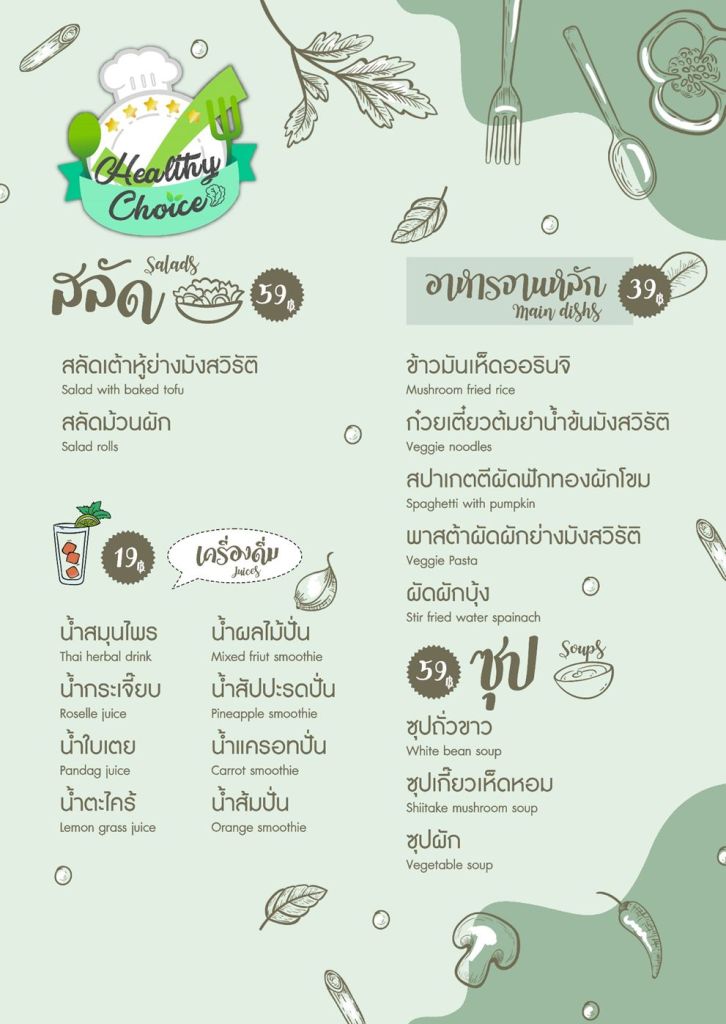
KMUTT has a restaurant for sale to students. Various types of personnel, such as vegetarian food, vegetarian food, healthy food, and others, to be an option and
suitable for each person’s diet. The shops are available at food distribution points throughout the university. And the raw materials used for cooking are seasonal
plants, vegetables, and fruits. and purchase objects from local farmers.
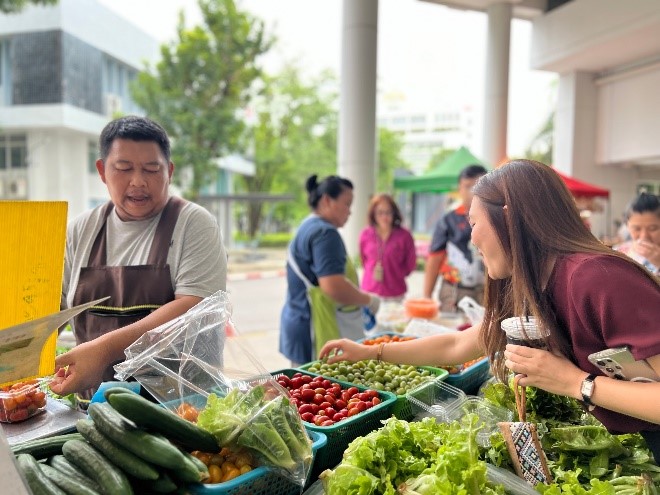
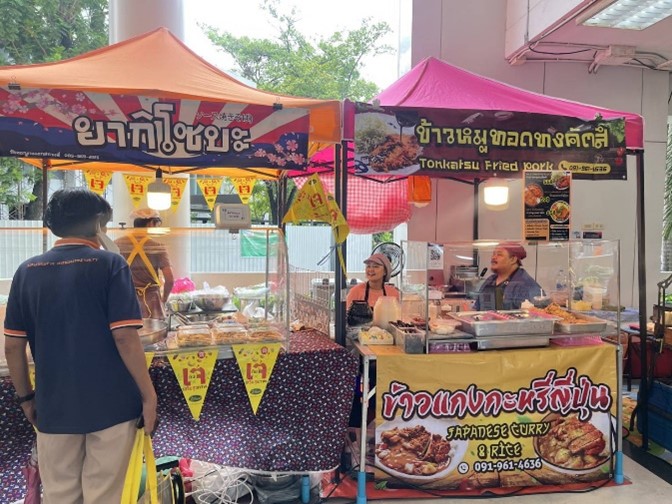
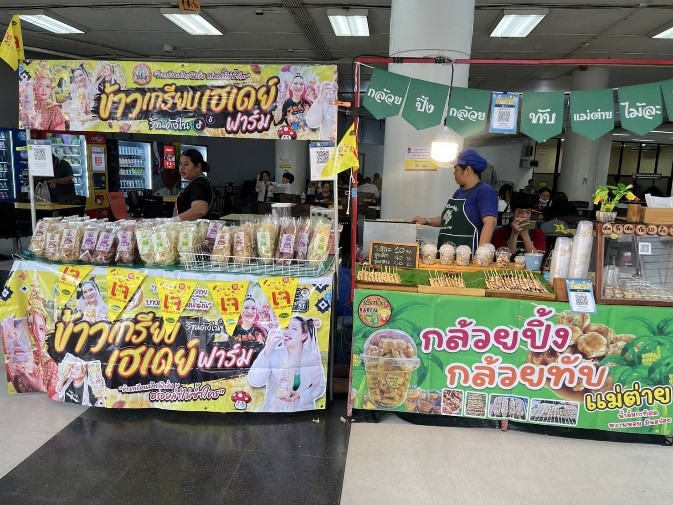
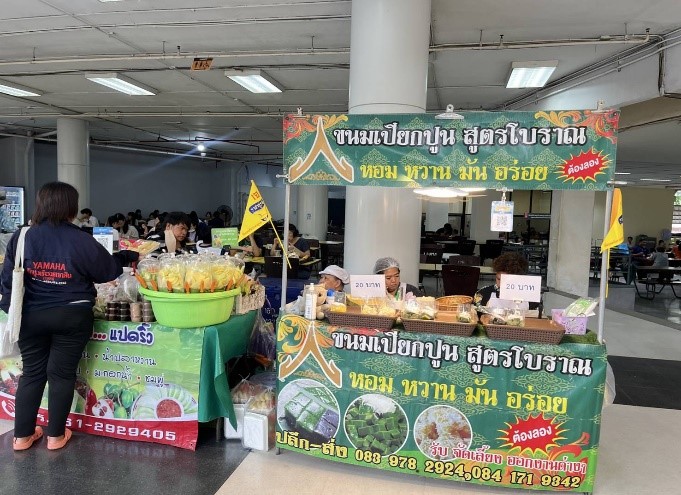
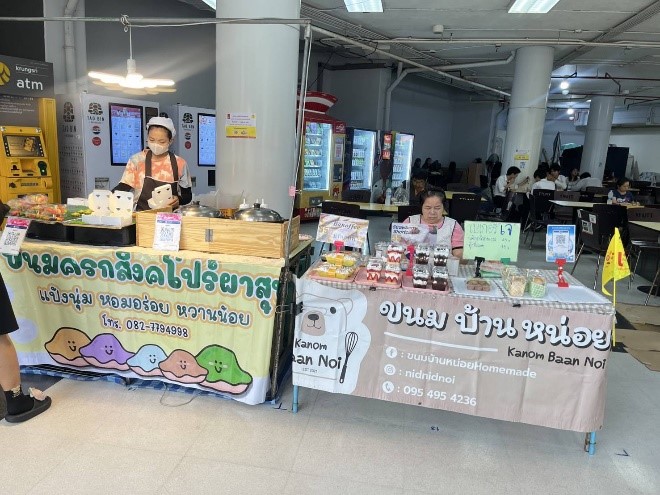
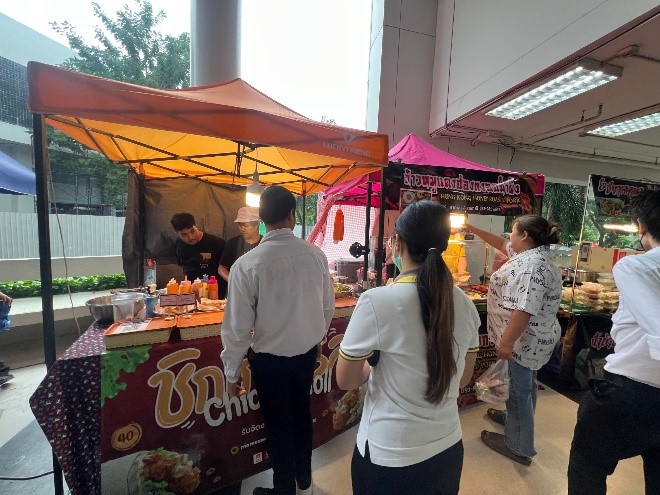
Restaurant service point King Mongkut’s University of Technology Thonburi

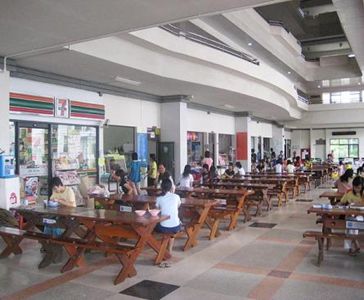

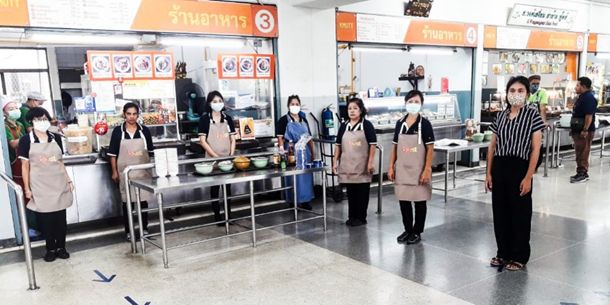



KMUTT has a drinking water dispenser. There are 16 automatic food vans available 24 hours a day throughout the university for students and staff who work late and study during exams. For the convenience of all students and staff in finding food to eat.
4. Related information on our university as a body on providing healthy and affordable food choices for all on campus.
KMUTT selected menus from various restaurants in order to provide the benefit for students and personnel by giving labels and selecting alternative healthy menus, being available in every store of KMUTT.

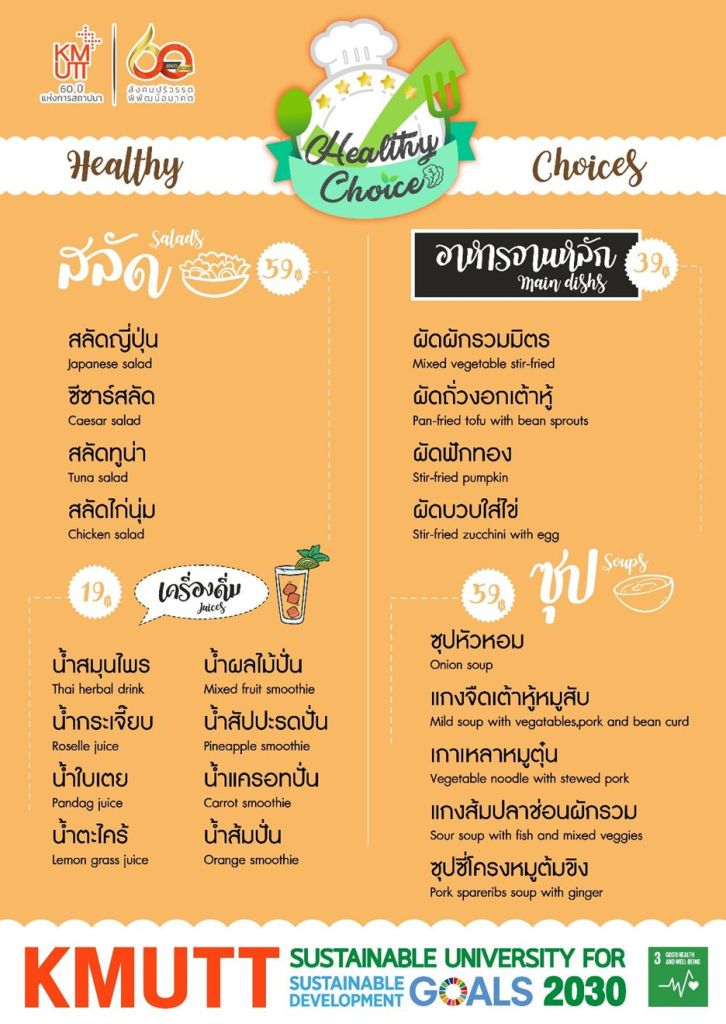
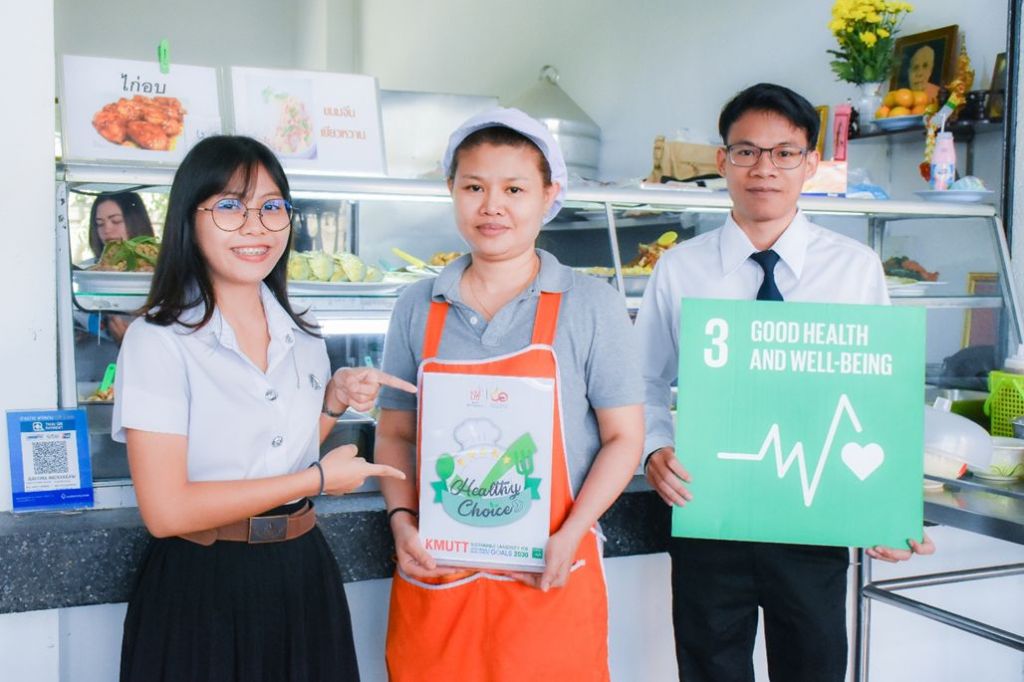
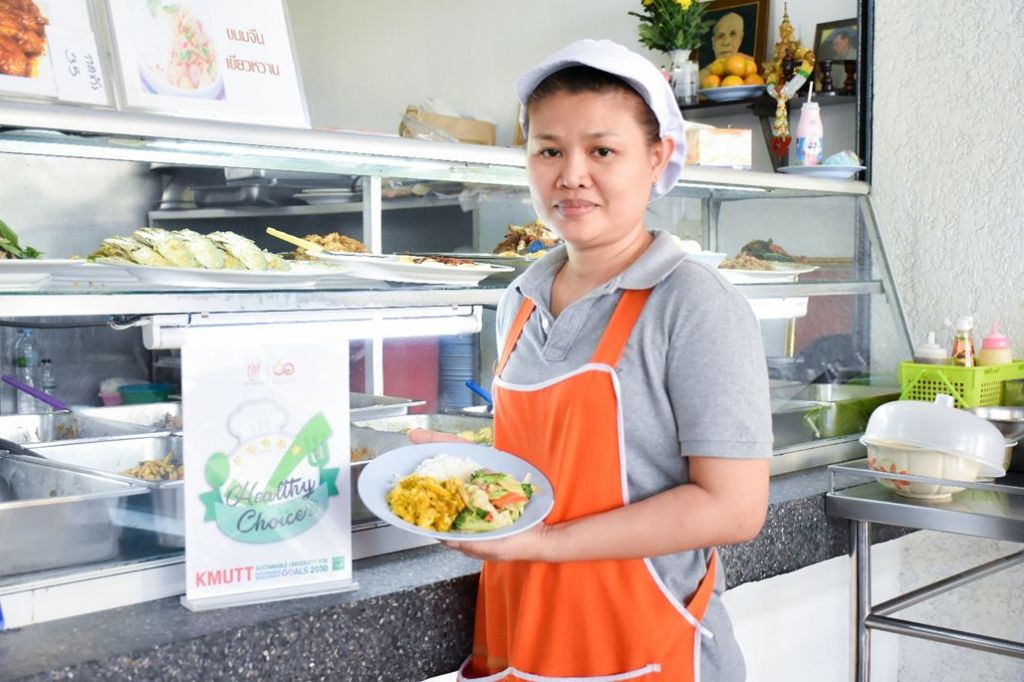
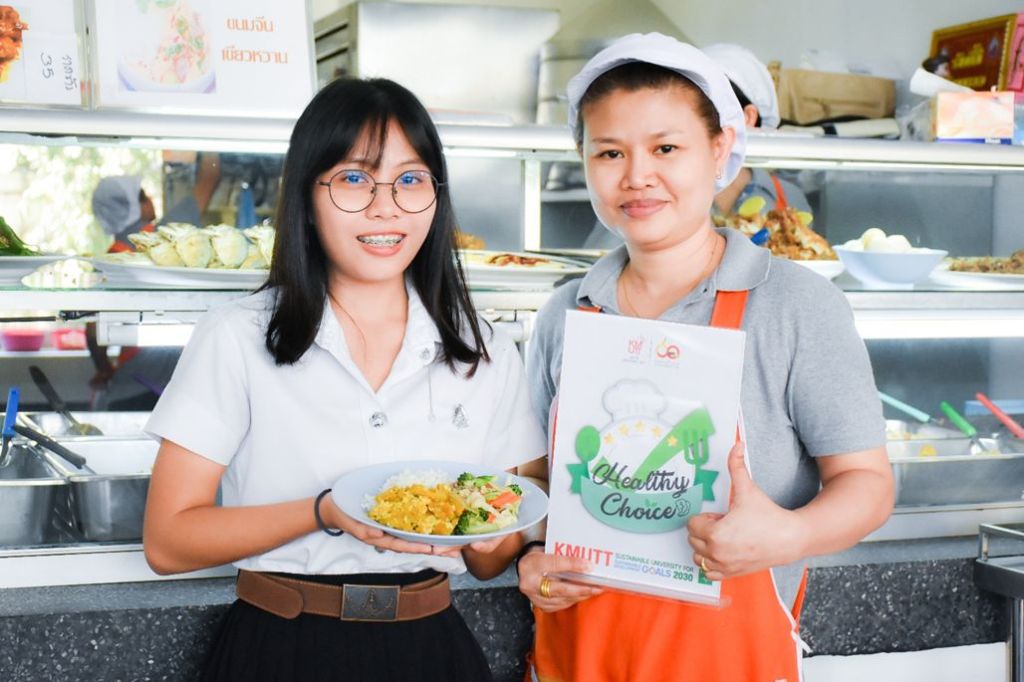
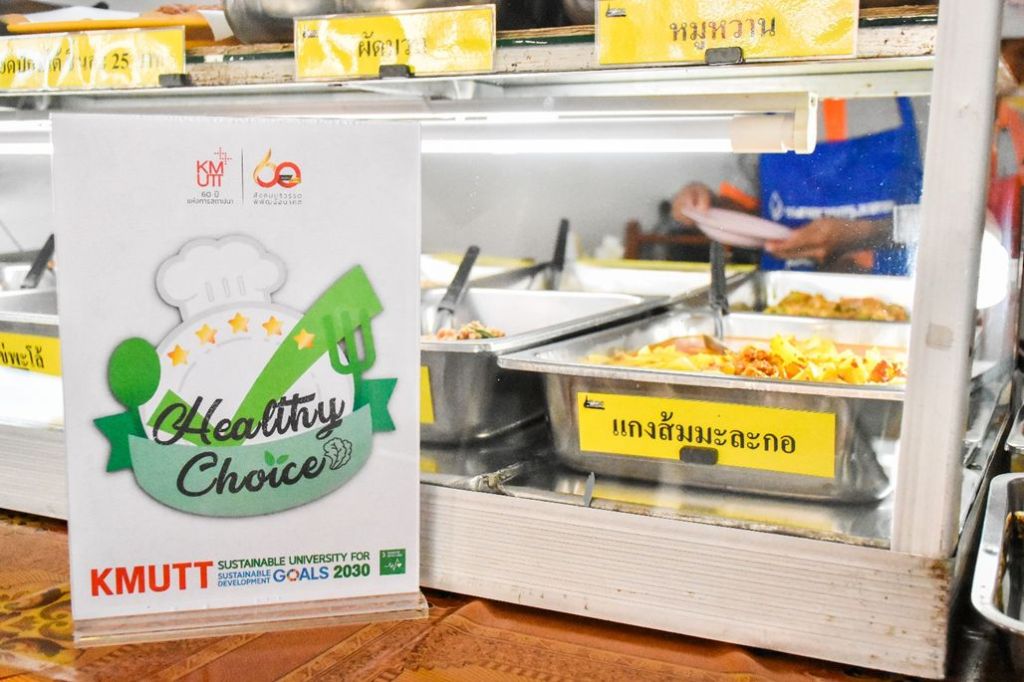
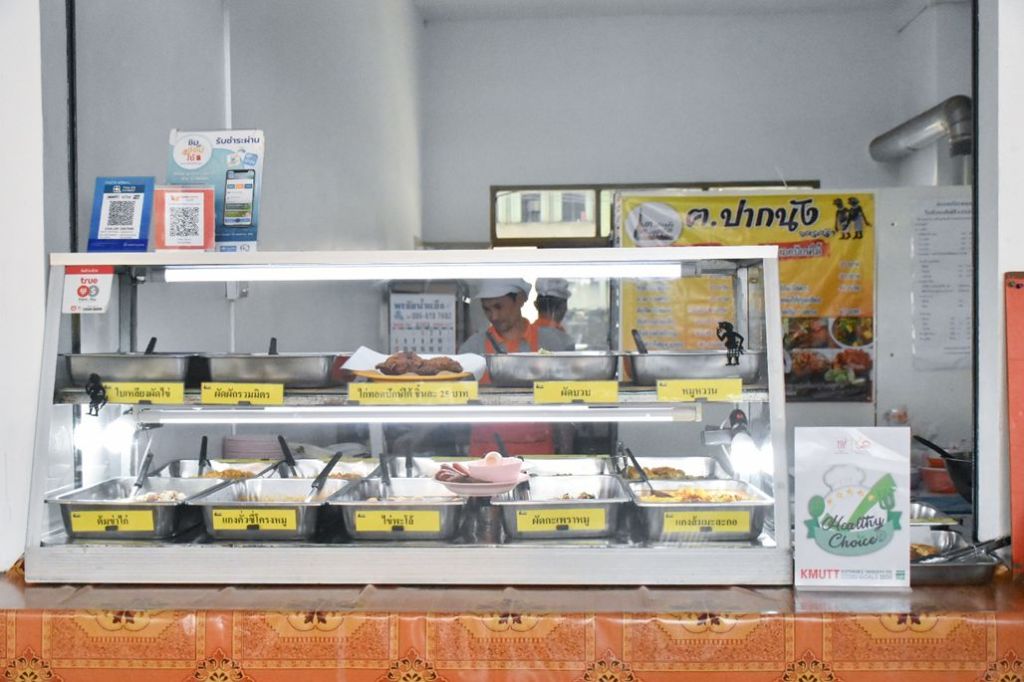
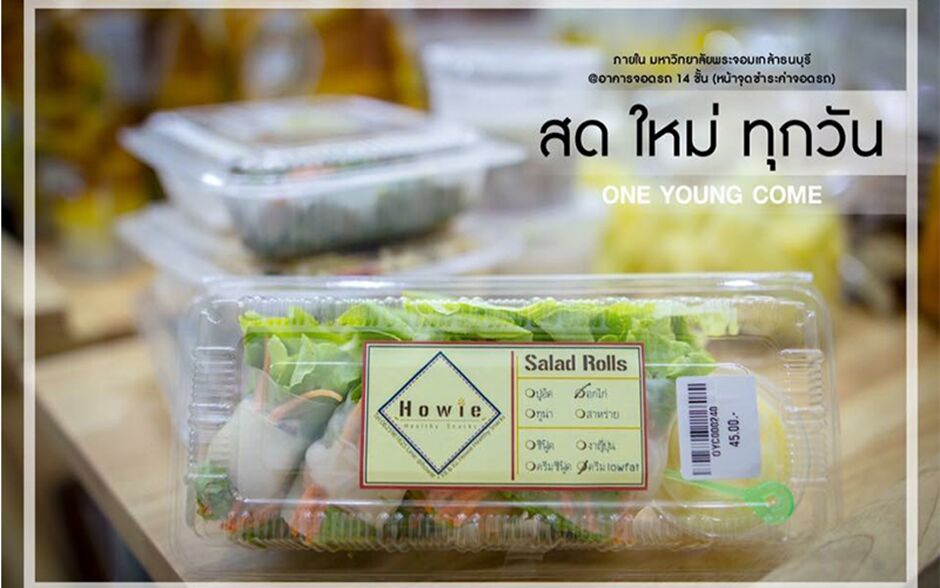
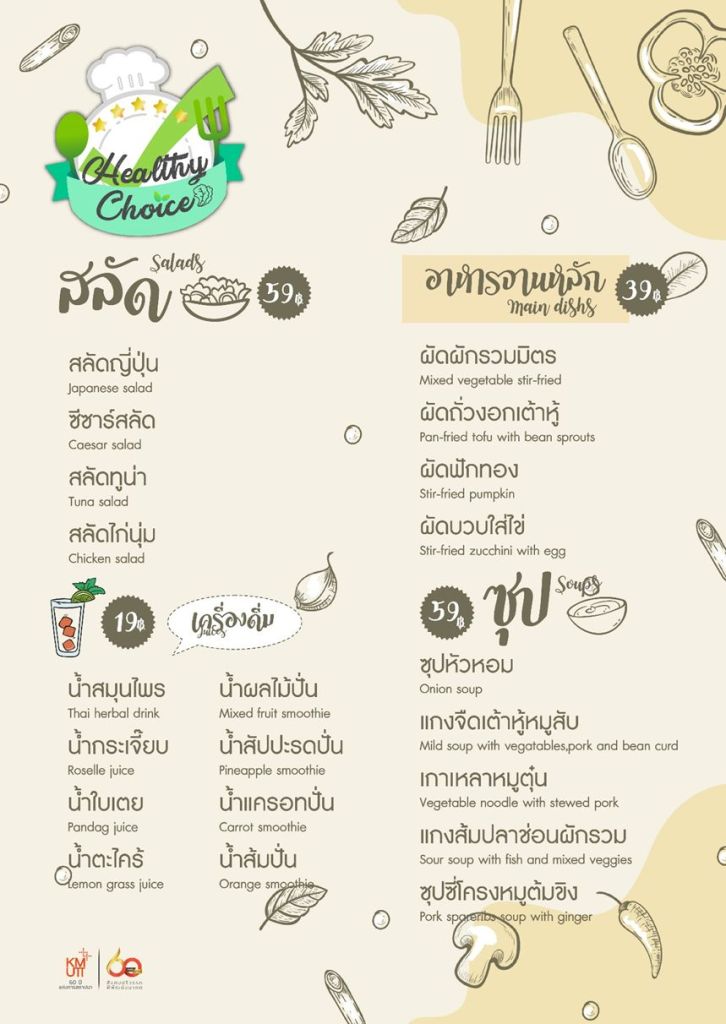
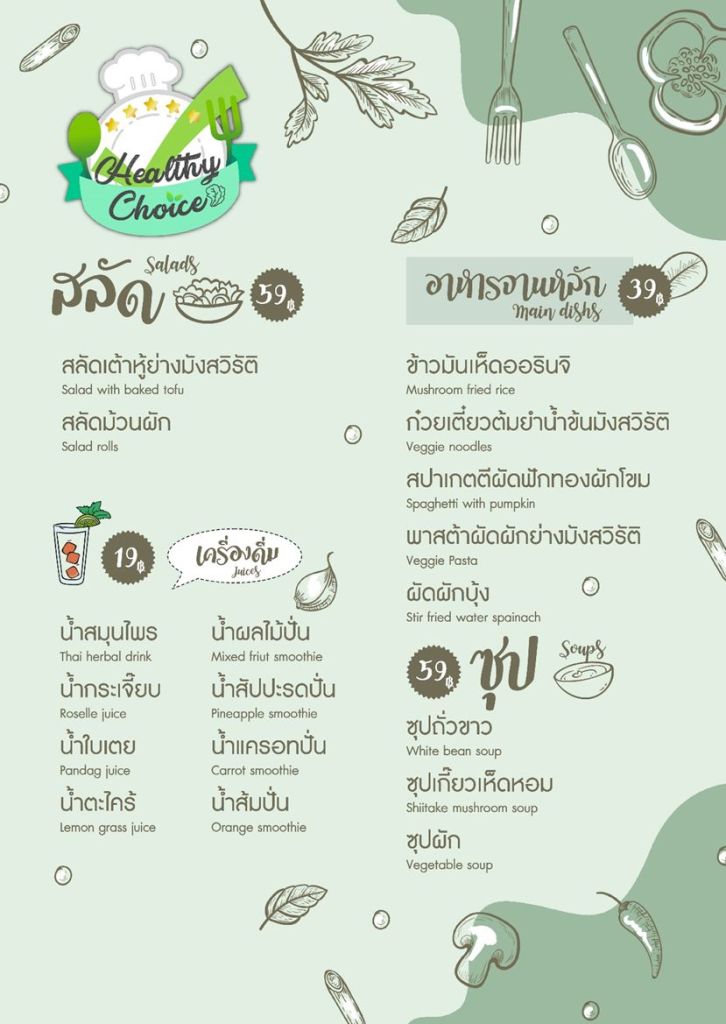
KMUTT has a community shop. Selling a variety of drinks and healthy food at inexpensive prices that local people come to sell to students and staff.
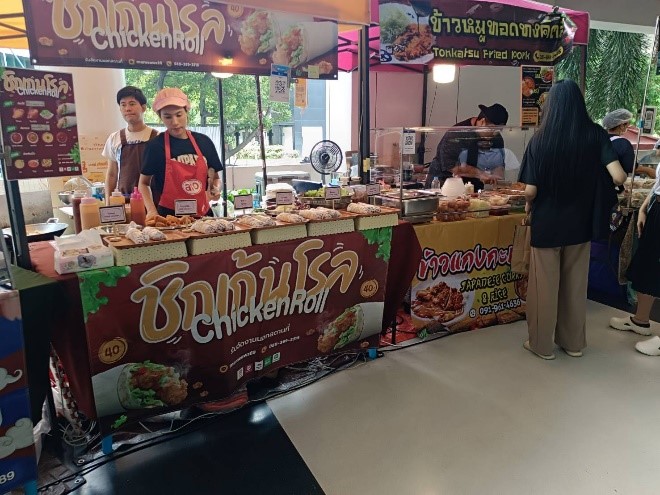
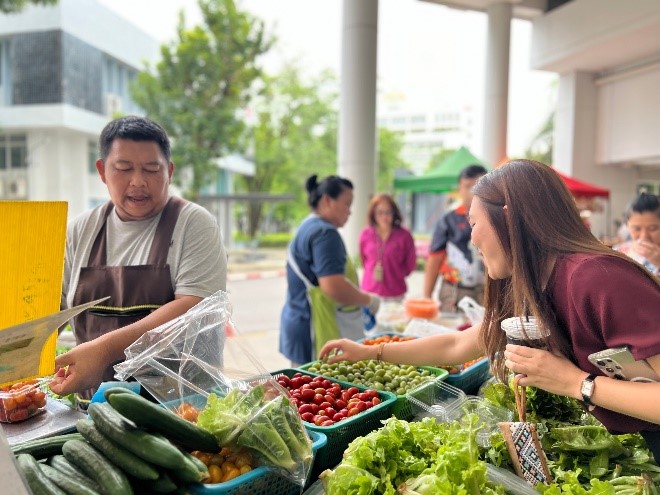
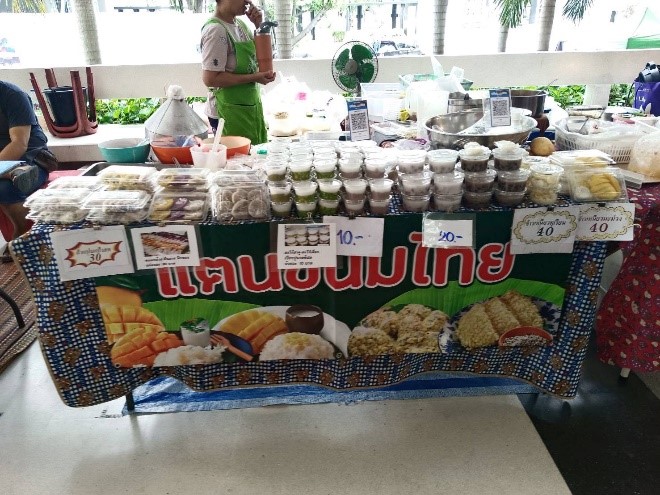
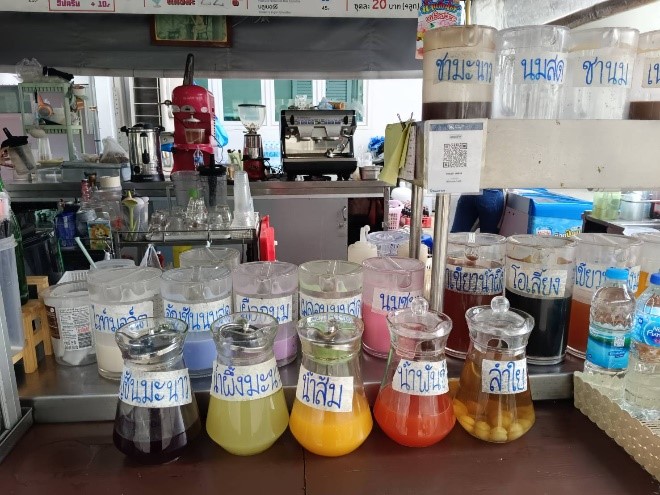
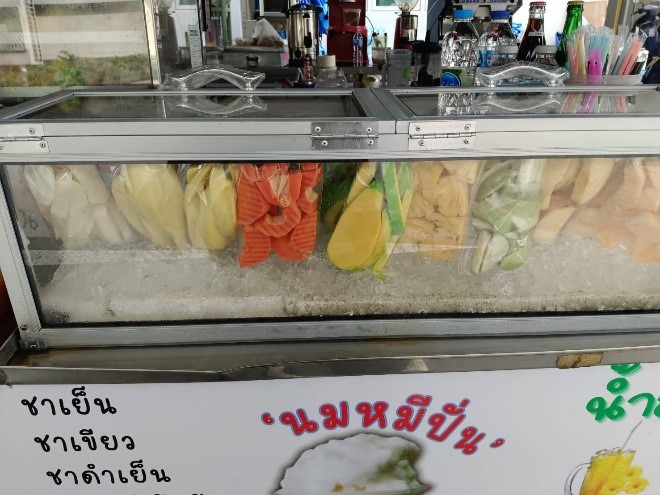
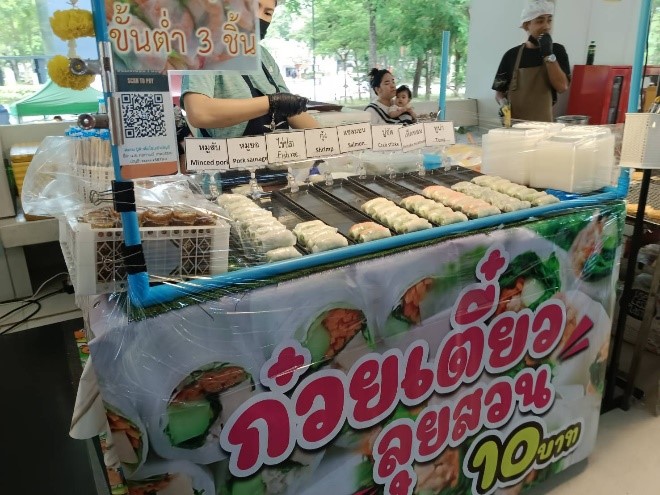
Additional evidence link:
1.https://global.kmutt.ac.th/campus-life/campus-facilities/housing-dining
2.http://science.kmutt.ac.th/index.php/2019-06-10-09-35-15/cluster/15-2019-06-10-08-38-28
3.http://www.kmutt.ac.th/istrs/website/th/branch.html
4.http://foodeng.kmutt.ac.th/research/food-safety-and-microbiology/
5. Staff hunger interventions
KMUTT has a project to create food security for students, personnel, and communities for well-being. Good food for students, personnel, and areas responsible for the target group by personnel and students to assist in the operation and practice skills/experience by adhering to the philosophy of sufficiency economy The area is allocated according to the activities that occur. Part 1 Organic vegetable gardening in the student dormitory area. so that students or staff can eat. Part 2 Organic vegetable gardening. To trade for personnel within and the community by using fertilizer from the leaves and branches in the university to compost as fertilizer for the cultivation of such vegetable gardens.



Cultivation of various vegetable gardens by starting to plant water spinach, lettuce, fairy mushroom,Guangdong

Distribution to personnel within the university.
The yield from the cultivation of vegetables in the kitchen garden is more than 200 kg.

KMUTT organizes activities on important days such as Environment Day. Therefore, we ask for the housekeeper’s cooperation to help collect garbage within the university. After finishing the activity, vegetable seedlings were distributed to be planted, reducing costs from buying vegetables from the market.
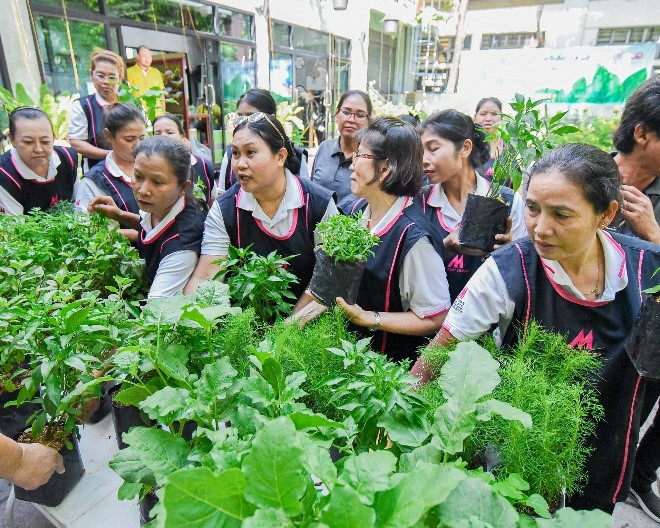
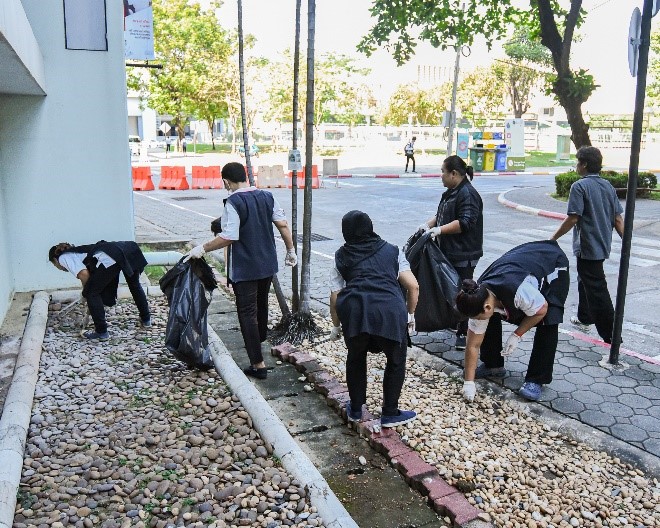
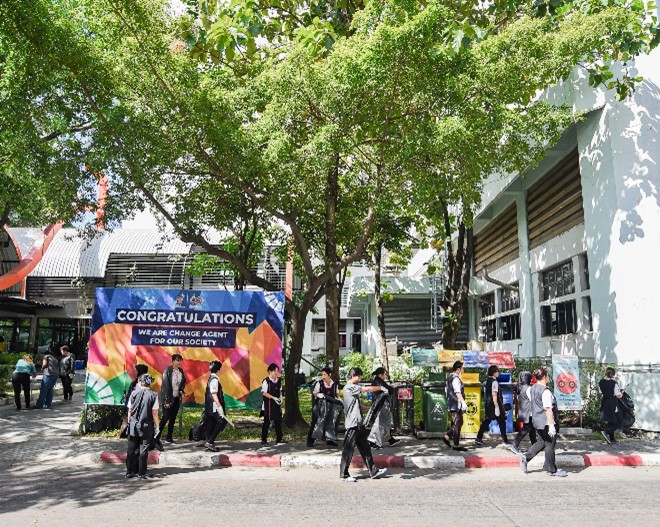
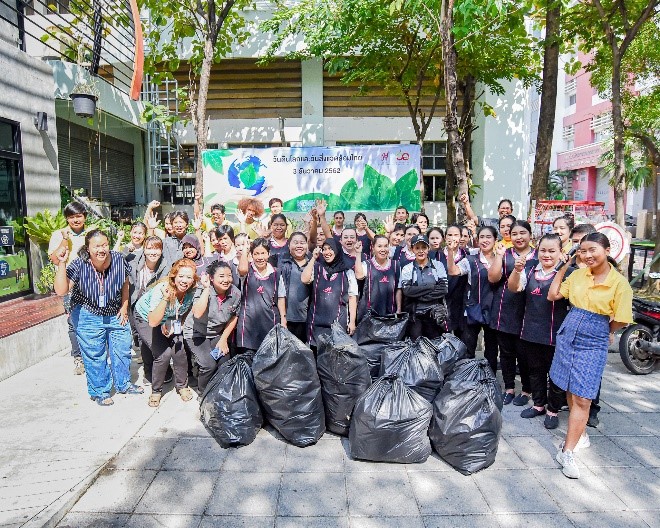
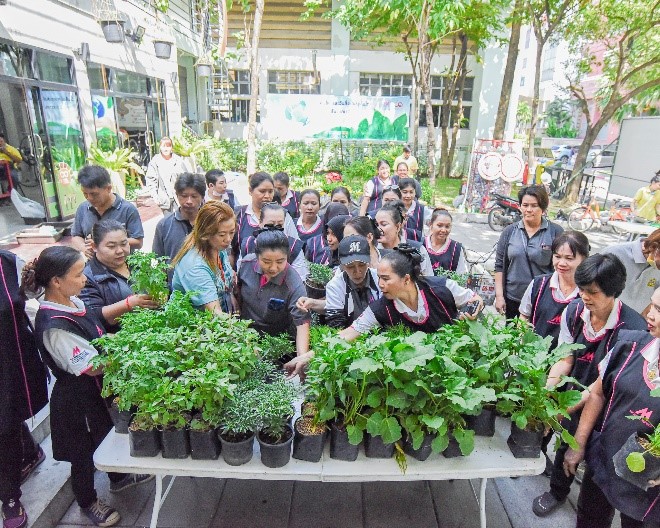
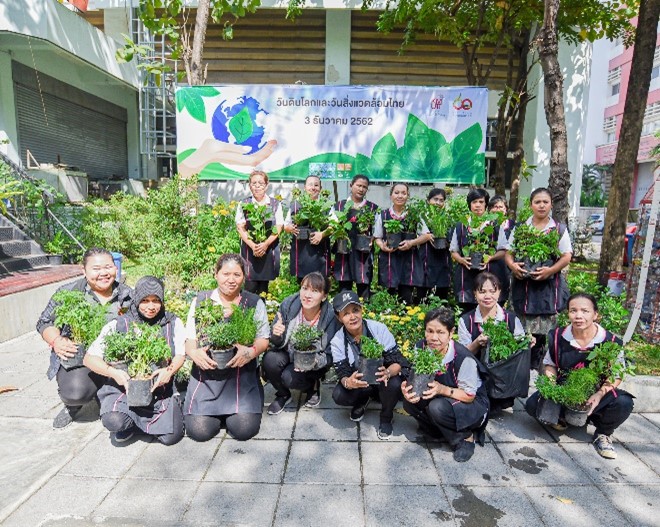
2.5 NATIONAL HUNGER
1. Related information on our university as a body providing access on food security and sustainable agriculture knowledge/skills/technology to local farmers and food producers.

KMUTT carries out research missions and utilizes research results to create a knowledge-based society along with sustainable development. bring benefits to the academic dimension Public society and community building for economic strength In the form of a university-community and society project in an area-based mission, which gives importance to the development of a designated area in an integrated way. In order to create the benefits of the area and communities around the university’s study areas, consisting of Thung Khru, Rat Burana, Bang Khun Thian, Ratchaburi Province western region of the country and in other areas across the country, the results of operations in fiscal year 2021 are as follows:
“University Project with Community and Society Thung Khru, Rat Burana, Chom Thong and Bang Khun Thian area
Emphasis on research and academic services on agricultural technology development, community-based tourism support Conservation and management of local resources for a wide range of target groups. Center for Research and Academic Service for Community and Society (NRCTImplemented the “Bangmod Oranges in Containers Technology Transfer Project to Support Community-Based Tourism” to transfer technology on Bangmod oranges in containers to support community-based tourism. Conservation and restoration of Bangmod oranges target group namely Kampong Tourism Group in Dong Prue Bangmod Orange Conservation and Restoration Group and the Bangmod Canal Community Tourism Group and more than 200 interested people organized a test boat trip to travel and learn about the Khlong Bangmod community for 87 people. It can be said that “Som Bangmod” is still the identity of the community. able to attract and create interest for tourists as well.
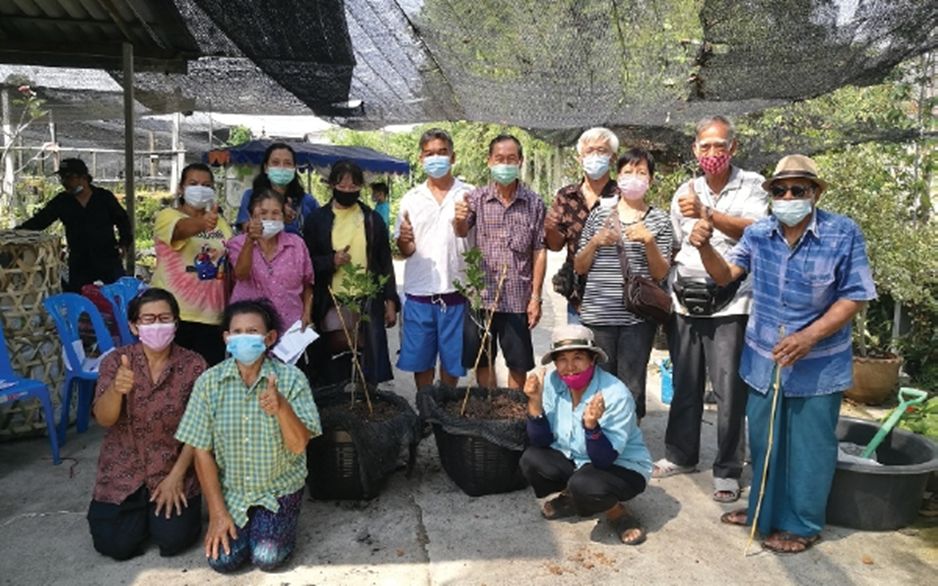
However, in the context of the community, there is an integrated garden and vegetable planting. Researchers and 3rd year students from the Department of Electrical Engineering Visit the vegetable plot (Soi Phuttha Bucha 39), an area of 3 rai, to learn and collect planting and care information, install a data logger, and record it on a Google Sheet in real-time by applying Internet of Things (IOT) technology and renewable energy from solar cells help students develop academic skills. On the social laboratory area (Social Lab)

Thonburi side has the context of the waterfront area. green area The way of life of people in urban communities who still use the canal route for travel. and engaged in agriculture But when the growth and the construction of more roads caused the canal to reduce its role. Faculty of Architecture, Faculty of Science and both domestic and international networks to conduct a “Thonburi canal route survey project” in 4 pilot districts (Thung Khru, Chom Thong, Thon Buri, Klong San) to study the water quality of the canal. Environmental quality, wind power and PM2.5 dust, including the potential of the riverside community. Hope to connect the transportation routes with the BTS Skytrain and the Metropolitan Rapid Transit (MRT) to create maximum benefits for the community and tourists.
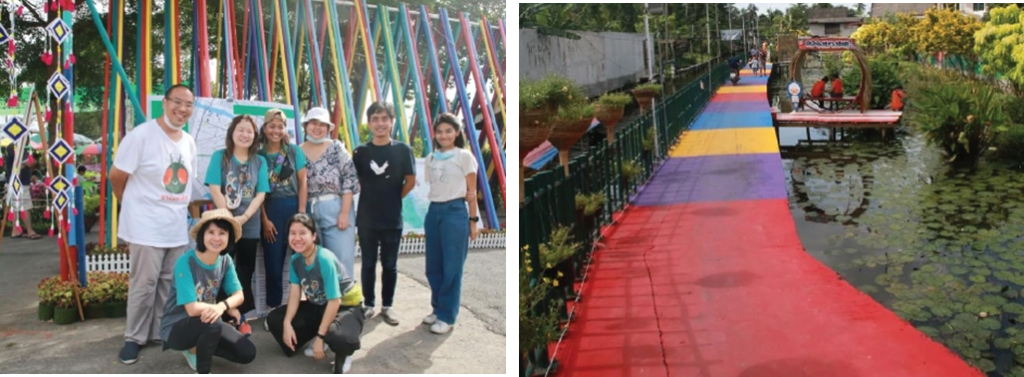
The SAFETIST FARM group is a group of new generations with the idea of creating a learning center and community innovation. Non-toxic agriculture coupled with tourism Located in Soi Pracha Uthit 76 Intersection 9 next to Bangmod Canal, using 3-4 rai of land as a vegetable plot. Raising good-humored chickens, fish ponds, house for breeding striped fly worms Nature learning activities for children-youths and families The faculty and staff of the university went on a study visit. Including discussing ways and possibilities to develop sustainable cooperation and learn together. Later supported Honda electric motorcycles to borrow and use. The work in experimenting with a non-toxic vegetable delivery system and reducing pollution creates a new career “Veggie Delivery”, delivering vegetables within a radius of 5 – 10 kilometers from the farm.

As part of the implementation of the project under the One Tambon One University (U2T) project, the Faculty of Arts cooperates with STECO, Thung Khru District Office. and Public Health Service Center 54 Tas-Iam, implementing the “Economic and Environment Rehabilitation Project Linked to Bangmod Canal Tourism” consisting of 1) Training on the production of eco-friendly fermentation tanks. Delivered 312 fermentation tanks to the community 2 to educate waste management Through the radio program FM 95.25 “Keep it up and tell it. Talk it up” 12 episodes and 3) Entrepreneur competency development in online training format, i.e. basic entrepreneurship, online marketing, communication techniques and product presentation. after birth training “Entrepreneur Competency Development Network Group (Workers)” various works For example, publications such as 1) Bangmod highlights, community tours, 2) cycling routes @Bangmod and eating and traveling in various styles of Bangmod, 3) books to support tourism. and preserving local wisdom such as “Here…Bangmod” and “Turn the rice field into an orange orchard” and 4) website by importing information to the website https://sola.pr.kmutt.ac.th/bangmod/
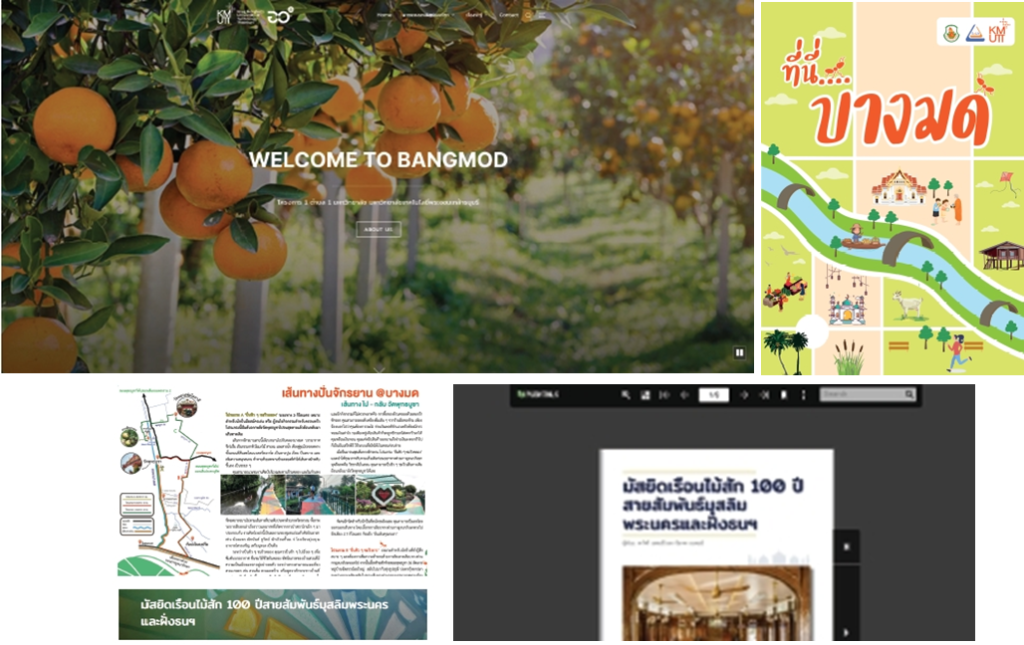
“Training Project – Apprenticeship for Disabled Persons To prepare for work in the workplace, Class 8” by the joint working group of RSC/SorPor. NESDB and NESDB. Funds are supported by 4 public and private enterprises, with people with disabilities participating. Project 55 lecturers, students, KMUTT personnel and 59 guest speakers organize training courses 1) Office staff 2) Media production course digital publications and 3 local handicraft product development courses Training on content design and use of activities for learning (Activities Base Learning), an online learning format and using the Moodle system (E-Learning) for the third course, was conducted in collaboration with Ban Nangoy-Phon Community Enterprise Learning Center. Pla Lo, Sakon Nakhon Province Create 2 product brands, namely “Do” and “Yay Di”, generating about 3.4 million baht in revenue. At the end of the project, 8 people with disabilities get jobs in the workplace, 2 freelancers, and 10 people continue their education/vocational training. during tracking
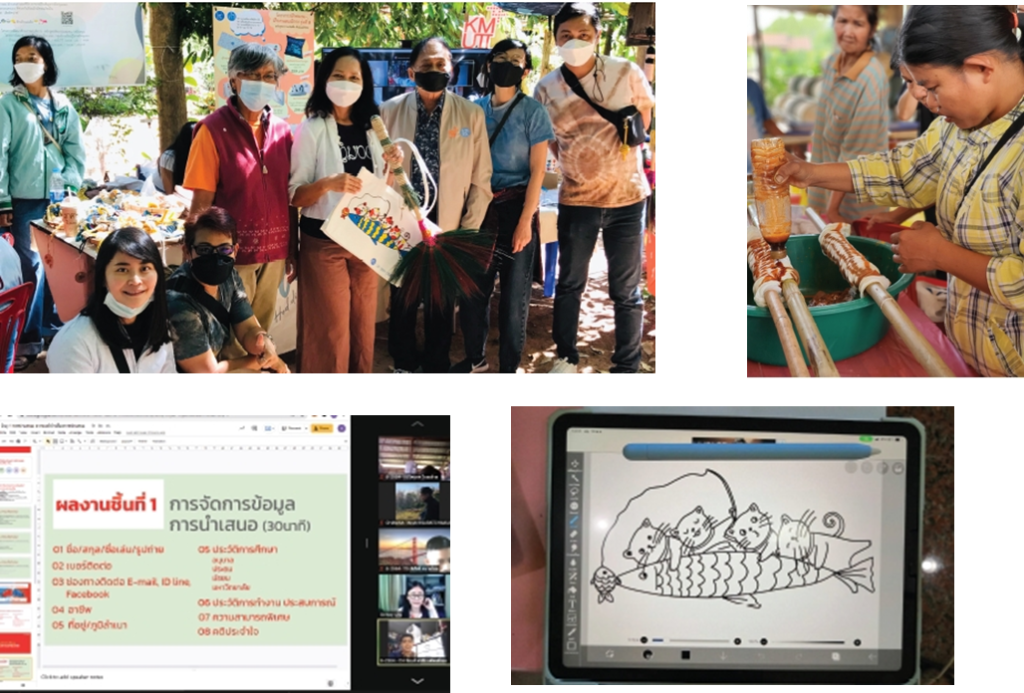
Ratchaburi Province western region of the country and in other areas across the country
“The application of solar electric fence technology for raising animals”
With farmers in Rang Bua Sub-district, Chom Bueng District, Ratchaburi Province, using wire as an electric fence to be attached to a car battery to keep pets in the grazing area which is far from the community and the power transmission line cannot reach Therefore, the battery must be brought back to charge the electricity at the house on average 2-3 days / time. The joint working group of RSC / SorPor. in battery Applies to “electric fences” and other electric devices. Facilitates farmers Help reduce the average energy cost per year 2,500 baht/household and promote the use of clean energy that is environmentally friendly Performance consists of 1) 119 farmers passed the training 2) Collaboration network from 7 professors/personnel of KMUTT and 3) Learning center for solar power generation systems for agriculture to be a place for study visits/expansion of technology on clean energy application according to the new agricultural theory
“Application of drip irrigation technology project for vegetable gardening with solar energy”
Most areas in Rang Bua Subdistrict are sandy loam soils that do not absorb water. Outside in the irrigated area, the agricultural way of life relies mainly on rainwater. And the problem of water shortage every year, the joint working group RSC/SorPor Along with installing an automatic plant watering control system via smartphone as a result, it can save water and use water more efficiently for plants. Reduce the cost of fuel pumping (12,000 baht/household) reducing the impact on the environment. Reduce working time and agricultural labor The important thing is that farmers can cultivate and generate income all year round. (After paddy fields during the dry season, the average annual income increased by 5,000 baht/household). 1) 27 farmers passed the training, 2) a network of cooperation from 7 KMUTT teachers/personnel and 3 KMUTT students, and 3) a learning center for solar power generation systems for agriculture. for study visits/expansion of technology at 3 places
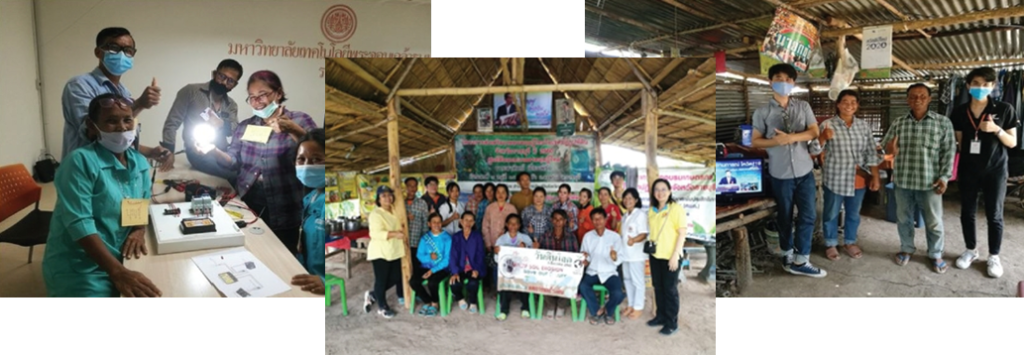
“Technology transfer project for the processing of agricultural products”
Radish products According to food safety standards and increasing production efficiency with turnip thresher: Community Enterprise Group Ratchaburi Province, lettuce or radish is grown the most in the western region (Ratchaburi, Phetchaburi, Ban Kha Lettuce Producer Community Enterprise was established in Ban Kha District, Ratchaburi Province. (30 members, planting area 66.4% of the total planting area in Ban Kha Produce pickled radish roots in the traditional way By kneading turnips with salt and preservatives, drying for 3 days, then flavoring. The results of random measurements of preservatives found that they exceeded the food standards. The research team has promoted various knowledge such as testing for microorganisms Preservative and Bleach Tests and hygienic processing as a result, operators use measuring scales to measure more accurately. Reduce the amount of preservatives (safe) and improve the packaging to be suitable for storage. In this regard, the innovation of turnip threshing machine was transmitted. Reduce workload and labor shortage problem Bacterial spoilage Helps to increase profits by 25 percent and increase daily production by 2 times, while still maintaining the original taste identity.
Technology and innovation transfer activities for radish processing

“Knowledge transfer activity project production technology Processing of agricultural products
under product and product development projects Department of Cooperative Promotion by Food Safety Research Center, NSTDA (5 people, 2 outside) and postharvest management students (2 people) operating the project in Phetchaburi Province. namely 1) product development “Graded Banana” Tha Yang Agricultural Cooperative, and 2) packaging development and acceptance testing. “Sea Salt Flower Soap” Thai Sea Salt Cooperative Through the process of consulting and transferring technology 50 people (2 co-operatives) The expected economic impact is to increase income for farmers and increase the value of raw materials. Social impact is to support lifelong education for people. In 2022-2023, Sea Salt Flower Soap Group received Area-based Innovation. for Community, PDR, Ministry of Education, to increase the potential of product development processes, brand building, and connecting product markets.that is a community identity.
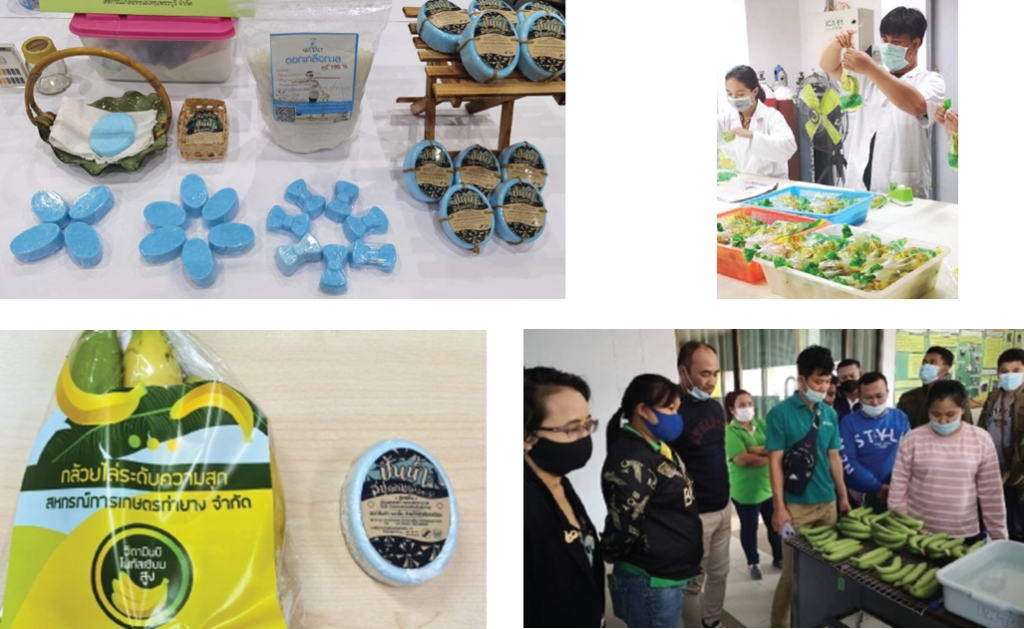
Other areas of university responsibility
Operating Area Non-Din Daeng District Buriram Province
KMUTT, Buriram College of Agriculture and Technology and Biotech NSTDA established “Non-Din Daeng Community Enterprise Incubator Unit” to develop farmers groups to have the ability to process products such as germinated brown rice, concentrated passion fruit juice. and ready to drink frozen passion fruit Roselle juice is concentrated and ready to drink. and tamarind tea Resulting in job creation, occupation, and income for people in the community of 5 villages (30 villagers generate more than 1.6 million baht in income, more than 2.8 hundred thousand baht in profit). Further development of production and other links with surrounding communities such as tourist houses Plant Genetic Cultivation and Conservation Project to make the area a sustainable development area
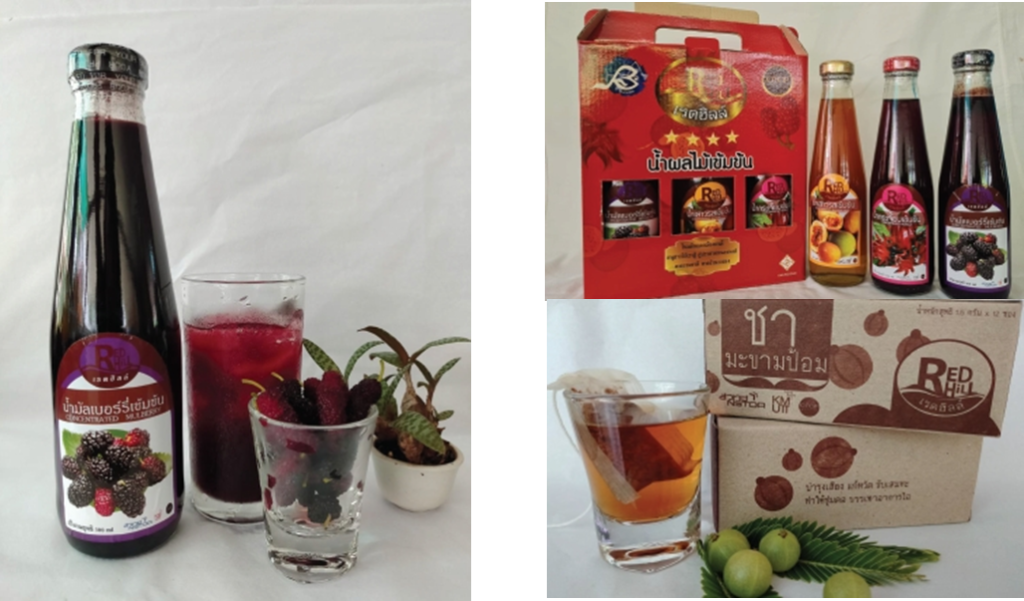
Ban Nang Ngoi Community Operation Area, Tao Ngoi District, Sakon Nakhon Province
Sakon Nakhon is an old community that has been developed and supported by KMUTT and NSTDA to develop into “Tao Ngoi District Community Enterprise Learning Center” is a project owned by the community. From the impact of the COVID-19 crisis on life especially economic problems in the community resulting in decreased consumption Including community development work from various agencies such as Kasetsart University Sakon Nakhon Campus who come to educate and follow up on tilapia farming In the past, the yield was not as good as it should have been. At present, KMUTT, various agencies have started to operate again, such as Siam Kubota Corporation Co., Ltd., providing a tractor with 1 set of equipment to restore the knowledge of indigo dyeing. broom production by dyeing flowers and teaching online marketing
for the development of children and youth Operations are as follows: 1) The project to provide schooling for at-risk children (drugs) to attend regular education with scholarships. Ratchaprajanukhro School 53 2) Experience Enhancement Program for Advanced Vocational Innovation Scholarship Students, Northeastern Area Vocational Program at Northeastern Technological College Udon Thani Province Target group: 108 people (78 Vocational Certificate, 30 Vocational Diploma) Organized a community lifestyle camp at the Community Enterprise Learning Center for 3 days Organized a northeastern heritage camp in Sakon Nakhon and Nakhon Phanom Provinces for 3 days Organized a viewing camp Thai in a foreign country in the area of Chiang Rai 5 days
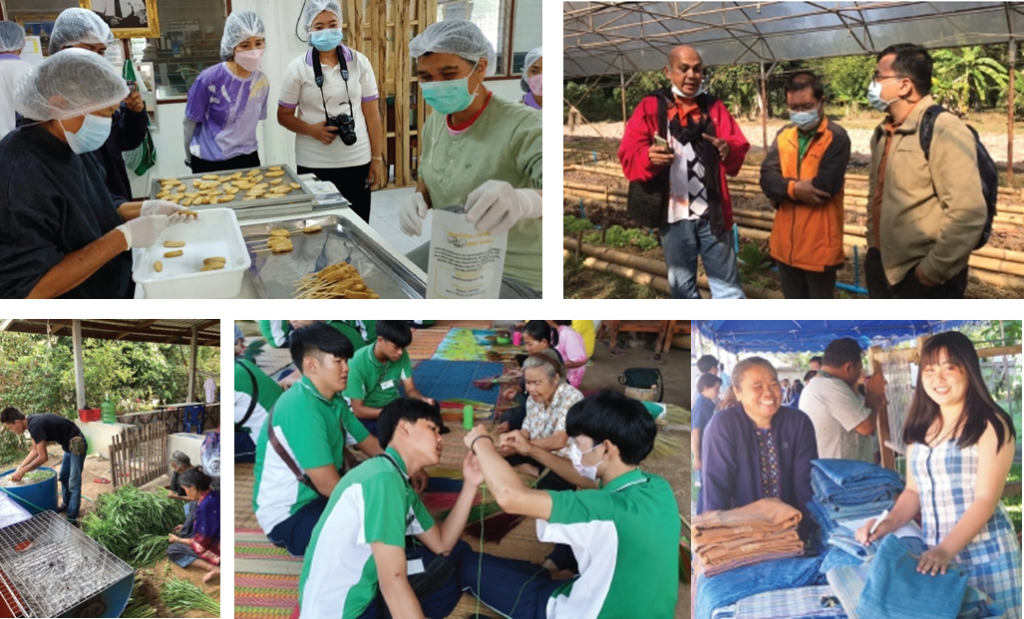
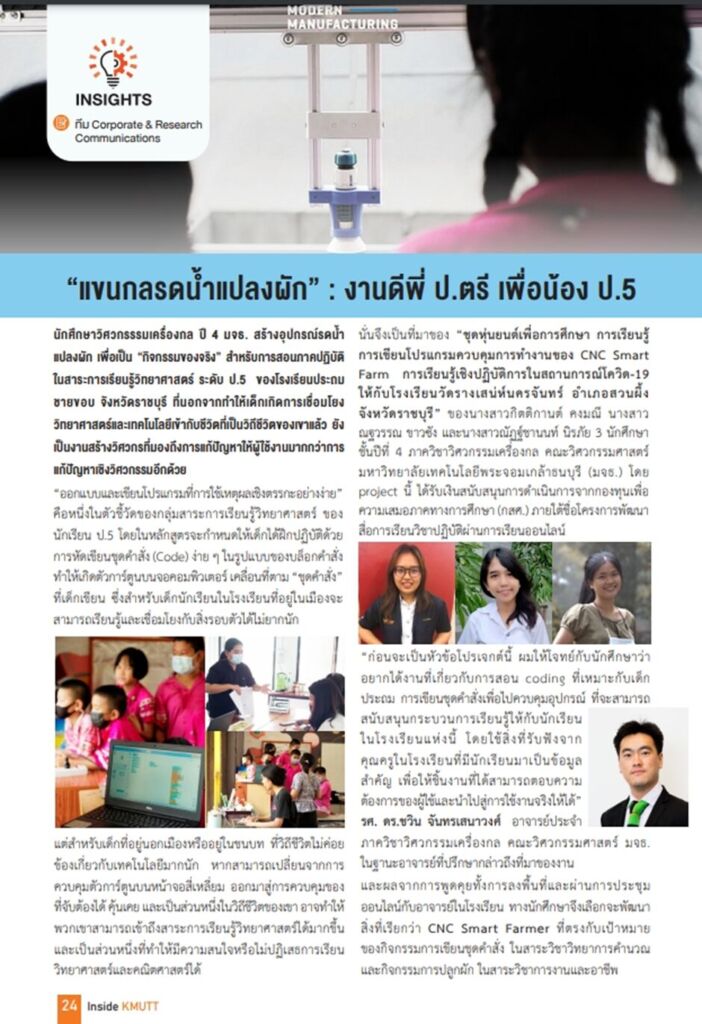
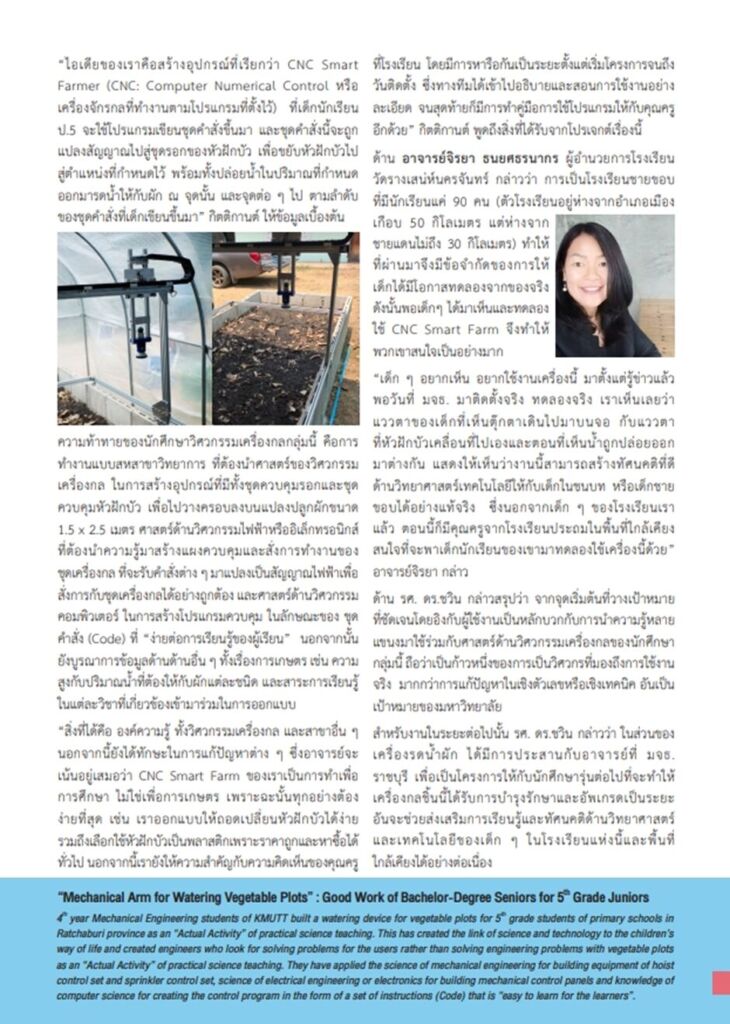
2. Related information on our university as a body providing events for local farmers and food producers to connect and transfer knowledge.
KMUTT Center of Excellence in Food Safety
food safety center The Office of Science and Technology Research and Service (KMUTT) has a clear objective and scope of work: to create research work. and development of risk assessment for microbial and chemical hazards in food food safety and risk prevention to support food safety. It is a training, analysis, testing, certification and consulting center for food manufacturers. And food exporters have been certified for production and food safety systems. technology transfer, research findings for widespread dissemination And is used for the benefit in the industrial, private and government sectors involved in the food safety control process. Promote a network of cooperation in research and development. Between government agencies, industry and researchers to establish a Center of Excellence in Food Safety as well as earn money to support research and activities of the center by requesting funding from various agencies. both public and private
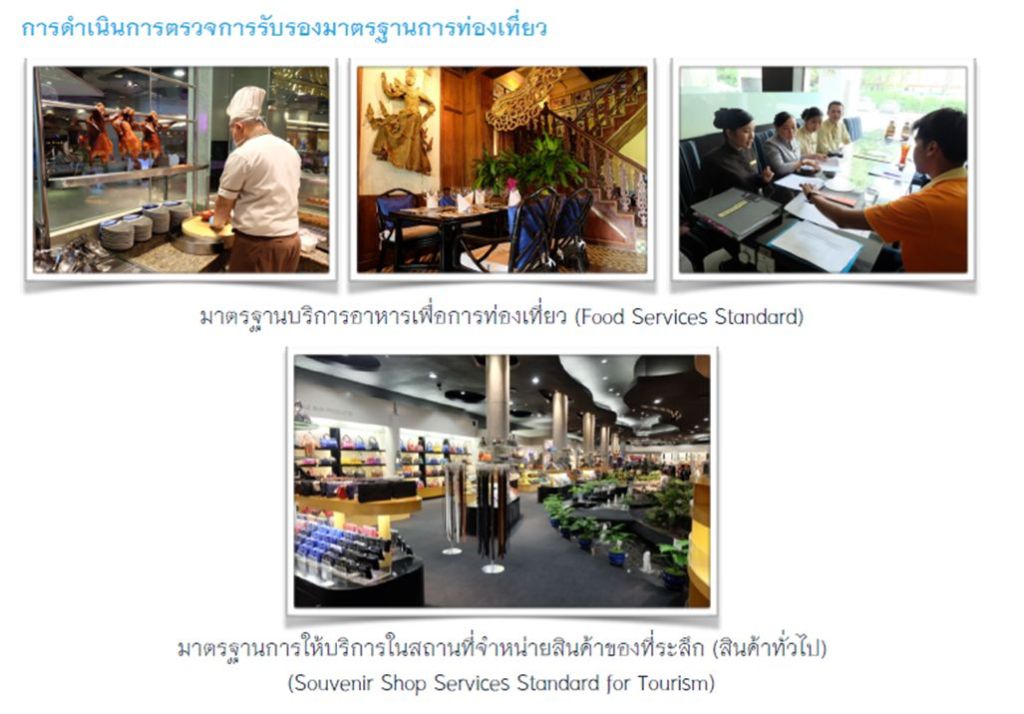
KMUTT promotes SAFETist Farm to create a green economy model from the Bangmod canal farming base
According to information from Bangkok, in the green area of 3,064 rai of Thung Khru district, It is only 400 hectares of “agricultural land”, while more than 60 percent is “vacant land”, which in the past was mostly agricultural land. But it was abandoned after the 2011 Bangkok floods because the soil was so salty that it was unable to plant orchards as before. Therefore, the remaining Thung Khru farmers can earn income from cultivation including income from other activities arising from the capital base of their own sufficient and sufficient resources Therefore, it is an approach that must be taken urgently. To help maintain the green area of Thung Khru to remain. For this reason, Dr. Kanchanee Puttimatee, Lecturer of the Faculty of Architecture and Design King Mongkut’s University of Technology Thonburi (KMUTT) and the research team under the project to develop a prototype community area along the Thonburi side with a network of brains and landscape maps for sustainable green economy development (Green Thonburi Project). with the support of the Research Fund Management and Innovation Management Unit at the local level (TAMC), we would like to create a prototype of the “Green Economy Model” to occur in the Bangmod Canal Community Area. Thung Khru that can build a business from a self-sustaining agricultural capital baseas well as being a manufacturer “Safe food” and “food of the city” for people in the surrounding area at the same time. by Dr. Kanchanee And the research team of KMUTT under the Green Thonburi project has supported “SAFETist Farm” which was born from the dream and determination of the new generation who came to change the area of over 2 rai. Along the Bang Mot Canal from where oranges were once planted and abandoned To become a safe food production source for people in the group two years ago. in the form of activities “Vegetable basket family” “We want to bring the green economy back to the Thung Khru agricultural community and the Bangmod canal community again. It may not be in the original form of an orange orchard. but is a combination of many styles both the subject of agriculture tourism, etc. to create a new economic model that will benefit both with the community and the environment at the same time.”ทีมงาน SAFETist Farm Want to bring agricultural knowledge from the farm to pass on to people in the community and real practice as an additional income for each family Through training activities that are available in 3 careers, namely, “Earthworms Care”, “Sapling Care” and “Pot Vegetable Planting Profession”, more than 50 people have been trained.

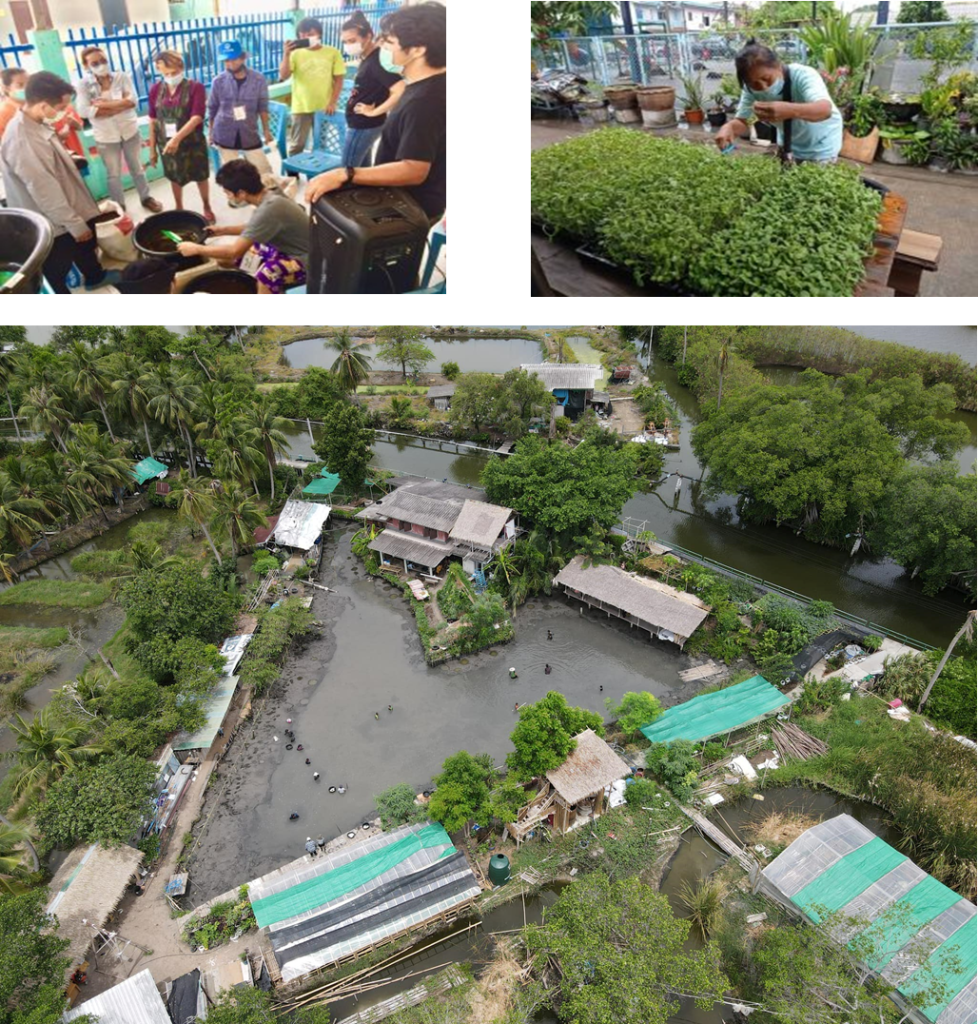
“The application of solar electric fence technology for raising animals”
With farmers in Rang Bua Sub-district, Chom Bueng District, Ratchaburi Province, using wire as an electric fence to be attached to a car battery to keep pets in the grazing area which is far from the community and the power transmission line cannot reach Therefore, the battery must be brought back to charge the electricity at the house on average 2-3 days / time. The joint working group of RSC / SorPor. in battery Applies to “electric fences” and other electric devices. Facilitates farmers Help reduce the average energy cost per year 2,500 baht/household and promote the use of clean energy that is environmentally friendly Performance consists of 1) 119 farmers passed the training 2) Collaboration network from 7 professors/personnel of KMUTT and 3) Learning center for solar power generation systems for agriculture to be a place for study visits/expansion of technology on clean energy application according to the new agricultural theory
“Application of drip irrigation technology project for vegetable gardening with solar energy”
Most areas in Rang Bua Subdistrict are sandy loam soils that do not absorb water. Outside in the irrigated area, the agricultural way of life relies mainly on rainwater. And the problem of water shortage every year, the joint working group RSC/SorPor Along with installing an automatic plant watering control system via smartphone as a result, it can save water and use water more efficiently for plants. Reduce the cost of fuel pumping (12,000 baht/household) reducing the impact on the environment. Reduce working time and agricultural labor The important thing is that farmers can cultivate and generate income all year round. (After paddy fields during the dry season, the average annual income increased by 5,000 baht/household). 1) 27 farmers passed the training, 2) a network of cooperation from 7 KMUTT teachers/personnel and 3 KMUTT students, and 3) a learning center for solar power generation systems for agriculture. for study visits/expansion of technology at 3 places
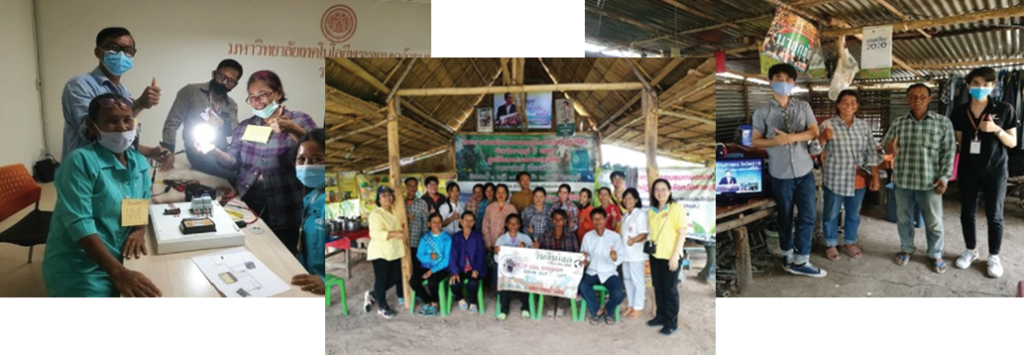
“Technology transfer project for the processing of agricultural products”
Radish products According to food safety standards and increasing production efficiency with turnip thresher: Community Enterprise Group Ratchaburi Province, lettuce or radish is grown the most in the western region (Ratchaburi, Phetchaburi, Ban Kha Lettuce Producer Community Enterprise was established in Ban Kha District, Ratchaburi Province. (30 members, planting area 66.4% of the total planting area in Ban Kha Produce pickled radish roots in the traditional way By kneading turnips with salt and preservatives, drying for 3 days, then flavoring. The results of random measurements of preservatives found that they exceeded the food standards. The research team has promoted various knowledge such as testing for microorganisms Preservative and Bleach Tests and hygienic processing as a result, operators use measuring scales to measure more accurately. Reduce the amount of preservatives (safe) and improve the packaging to be suitable for storage. In this regard, the innovation of turnip threshing machine was transmitted. Reduce workload and labor shortage problem Bacterial spoilage Helps to increase profits by 25 percent and increase daily production by 2 times, while still maintaining the original taste identity.
Technology and innovation transfer activities for radish processing

“Knowledge transfer activity project production technology Processing of agricultural products
under product and product development projects Department of Cooperative Promotion by Food Safety Research Center, NSTDA (5 people, 2 outside) and postharvest management students (2 people) operating the project in Phetchaburi Province. namely 1) product development “Graded Banana” Tha Yang Agricultural Cooperative, and 2) packaging development and acceptance testing. “Sea Salt Flower Soap” Thai Sea Salt Cooperative Through the process of consulting and transferring technology 50 people (2 co-operatives) The expected economic impact is to increase income for farmers and increase the value of raw materials. Social impact is to support lifelong education for people. In 2022-2023, Sea Salt Flower Soap Group received Area-based Innovation. for Community, PDR, Ministry of Education, to increase the potential of product development processes, brand building, and connecting product markets.that is a community identity.
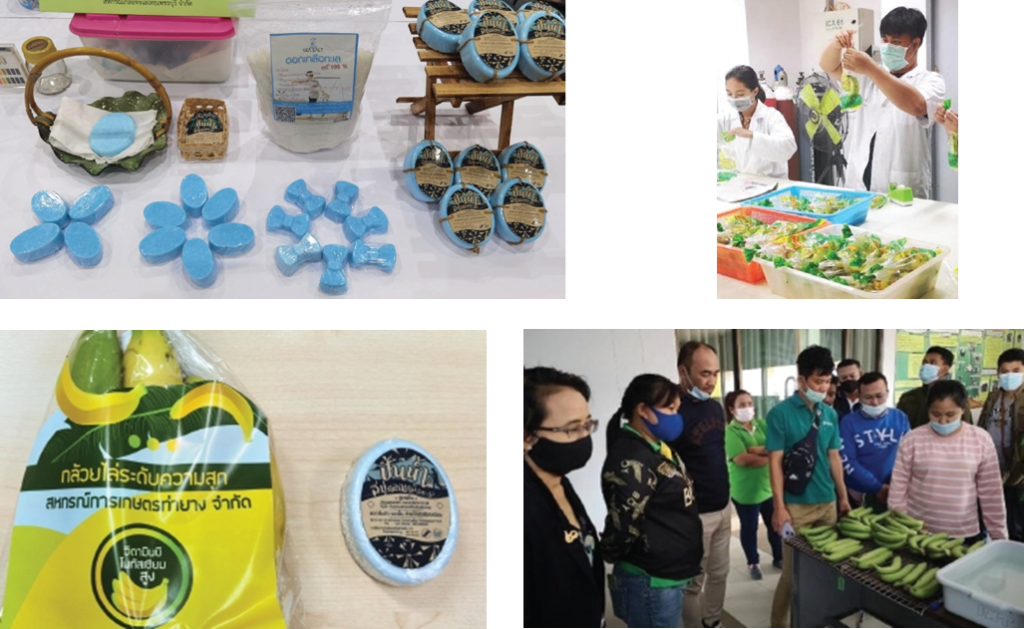
Operating Area Non-Din Daeng District Buriram Province KMUTT, Buriram College of Agriculture and Technology and Biotech NSTDA established “Non-Din Daeng Community Enterprise Incubator Unit” to develop farmers groups to have the ability to process products such as germinated brown rice, concentrated passion fruit juice. and ready to drink frozen passion fruit Roselle juice is concentrated and ready to drink. and tamarind tea Resulting in job creation, occupation, and income for people in the community of 5 villages (30 villagers generate more than 1.6 million baht in income, more than 2.8 hundred thousand baht in profit). Further development of production and other links with surrounding communities such as tourist houses Plant Genetic Cultivation and Conservation Project to make the area a sustainable development area
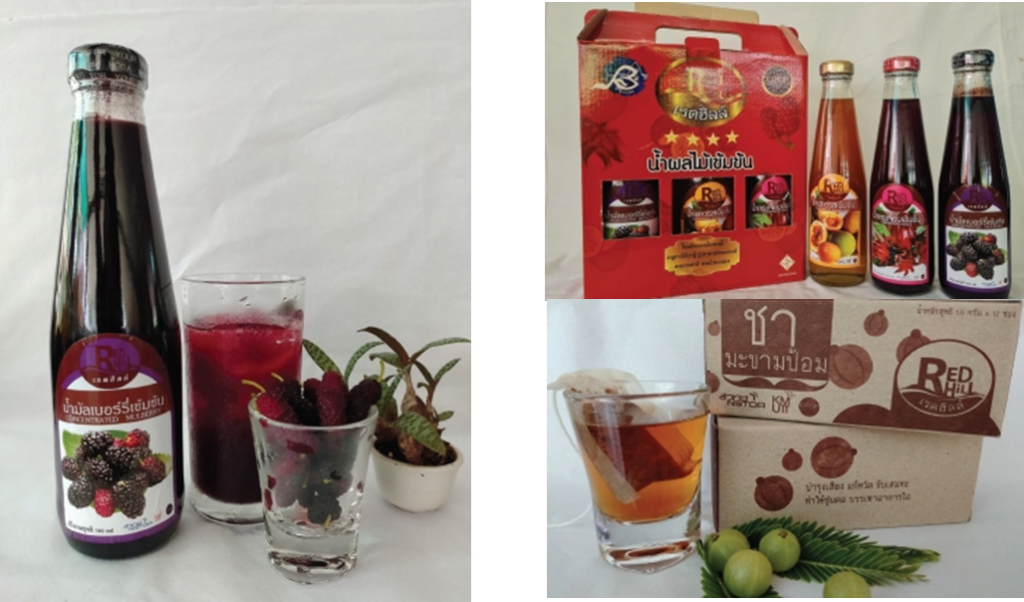
Ban Nang Ngoi Community Operation Area, Tao Ngoi District, Sakon Nakhon Province
Sakon Nakhon is an old community that has been developed and supported by KMUTT and NSTDA to develop into “Tao Ngoi District Community Enterprise Learning Center” is a project owned by the community. From the impact of the COVID-19 crisis on life especially economic problems in the community resulting in decreased consumption Including community development work from various agencies such as Kasetsart University Sakon Nakhon Campus who come to educate and follow up on tilapia farming In the past, the yield was not as good as it should have been. At present, KMUTT, various agencies have started to operate again, such as Siam Kubota Corporation Co., Ltd., providing a tractor with 1 set of equipment to restore the knowledge of indigo dyeing. broom production by dyeing flowers and teaching online marketing
for the development of children and youth Operations are as follows: 1) The project to provide schooling for at-risk children (drugs) to attend regular education with scholarships. Ratchaprajanukhro School 53 2) Experience Enhancement Program for Advanced Vocational Innovation Scholarship Students, Northeastern Area Vocational Program at Northeastern Technological College Udon Thani Province Target group: 108 people (78 Vocational Certificate, 30 Vocational Diploma) Organized a community lifestyle camp at the Community Enterprise Learning Center for 3 days Organized a northeastern heritage camp in Sakon Nakhon and Nakhon Phanom Provinces for 3 days Organized a viewing camp Thai in a foreign country in the area of Chiang Rai 5 days
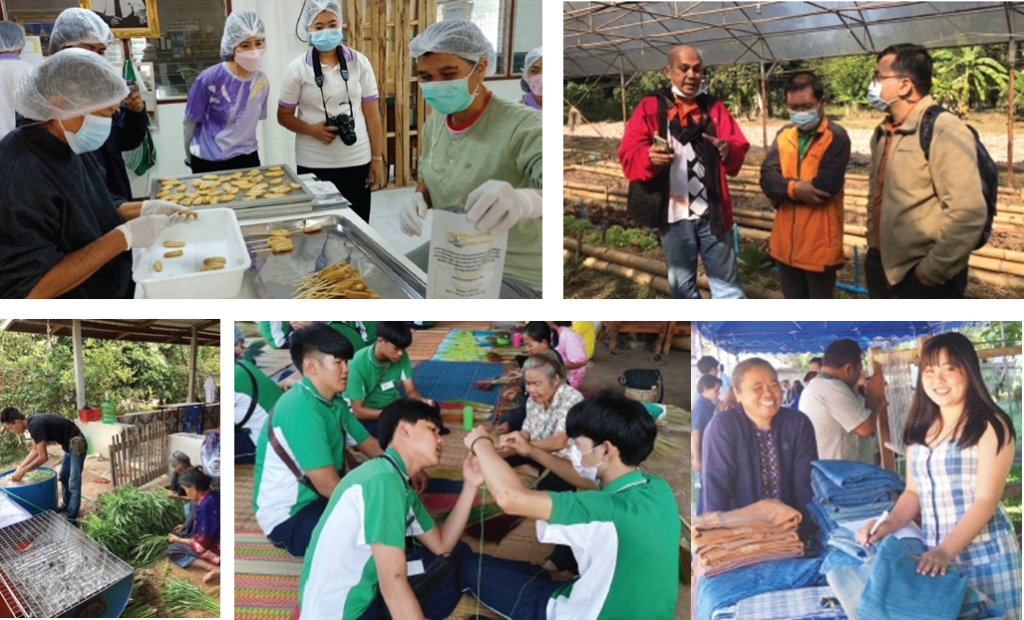
Zero Waste Agriculture Goat Farm Management in Thung Khru Area
In addition to the agricultural method of plant cultivation Some communities have a career in raising goats. Especially Muslim farmers in Thung Khru area. and received environmental complaints Including problems in waste management within the farm. Researcher at Research Center and Service for Community and Society Together with the network has implemented the project. “Zero Waste Agriculture Goat Farm Management in Thung Khru Area”Organize technology development activities as participatory farmers in 2 issues: 1) waste management from goat farms (production of goat manure fermented fluff 2) household fresh waste management 2 (using a simple fermentation box) Key Hole Vegetable Plot biochar production and planting materials) to gain knowledge from local speakers and networks There are the main farmers of Thung Khru Farmers Group. Chundarul Ibadah Enterprise Group and more than 50 interested people participatedAiming to create “core agriculture” and waste management in the farm and in the household. Through the process of learning and doing it at the same time, to be a model for expanding the results to farmers. and people in the community

Community product development and upgrading project “Caramia Goat Milk Soap” of Darul Ibakah Community Enterprise, Thung Khru District
Center for Research and Service for Community and Society Visit and select community products of Darul Ibadah Community Enterprise, namely “Goat Milk Soap” in the name of CARAMIA or Karamia to participate in the development and upgrading of community products.

Bang Ka Chao Subdistrict Development Project (U2T) by Asst. Prof. Dr. Penchan Mekwijitsaeng
Bang Kachao Subdistrict consists of 9 villages with a population of 1,869 households and 5,104 people. Based on the 5 dimensions of basic needs (health, well-being, education, income, access to government services), it was found that sub-districts had the greatest need for health improvement. This may be due to the survey being in the state of the COVID-19 epidemic causing the public toin need of health services
KMUTT’s knowledge used in the project is the application of spirulina in raising lobster fry and raising chickens to produce omega-fat. and the use of DHA-producing microorganisms for omega-fat production in chicken farming Performance is as follows.
– Shrimp nursery in cages Spirulina powder is used to mix food. Contributes to helping shrimp fry and stay healthy. when released into the garden (1 project participant’s garden in the area, which is a garden that does not use pesticides. resulting in a good weight of shrimp production However, monitoring of shrimp growth has not yet been carried out due to the open conditions of the area. Effect damage chance (so shrimp is high from natural enemies)
– Chicken farming (at Bang Kachao Farm) has mixed algae 10 in the feed. Test results. Nutrients in eggs from hens aged 33 days found that omega 3-6 fats increased by 10.48%. While normal eggs provide only 8.48 percent of fat and the amount of DHA is not different.
– Chicken raising (at Wat Rat Rangsan School) mixed with microorganisms Aurantiochytium sp. in feed (produced from Sor Bor. Laboratory) for raising chickens in 2 age groups: 1) old hens (3 years old) and 2) normal hens aged 1-1.5 years. received 0.03 and 0.06 g/body/day of microorganisms The number of laying hens increased from 50% to 80% and 90%, respectively, and the egg weight increased from 47.6 g to 56.04 and 59.7 g, respectively for old hens fed 0.2 g/bird. /day for 20 days, eggs were given omega 3-6 fat at 9.29%, which was higher than the hens that did not get it (8.09%).
For the second phase, the production of omega eggs will be expanded into egg powder or rice powder. (may be mixed with local vegetables, spinach) In addition, the community is interested in making liver from (because the area does not have Must buy from Phra Samut Chedi side) Processing into sugar (Prototype of sugar production from Nakhon Si Thammarat Province, G value of sugar from < 30 is a health food group) and water tourism to watch fireflies.
Native Honeybees and Pollinator Research Center
On November 1, 2021, it was a product development training for Wat Kaew Subdistrict. in order to make the product more reliable Help build brand identity to be in the form of a community enterprise analyze customer groups and develop further to be more efficient

Between December 21-23, 2021, the Native Bee Research Center and Bring Eleplant Home, World Wildlife Fund (WWF) organized a training to transfer Thailand’s native beekeeping technology in an integrated agricultural garden at the Forest Conservation and Restoration Project. Kui Buri Forest National Reserve arising from royal initiatives Kui Buri District, Prachuap Khiri Khan Province The goal is to generate income and to be a buffer line to prevent “elephant” from destroying the villagers’ agricultural crops. in order to be able to live together sustainably
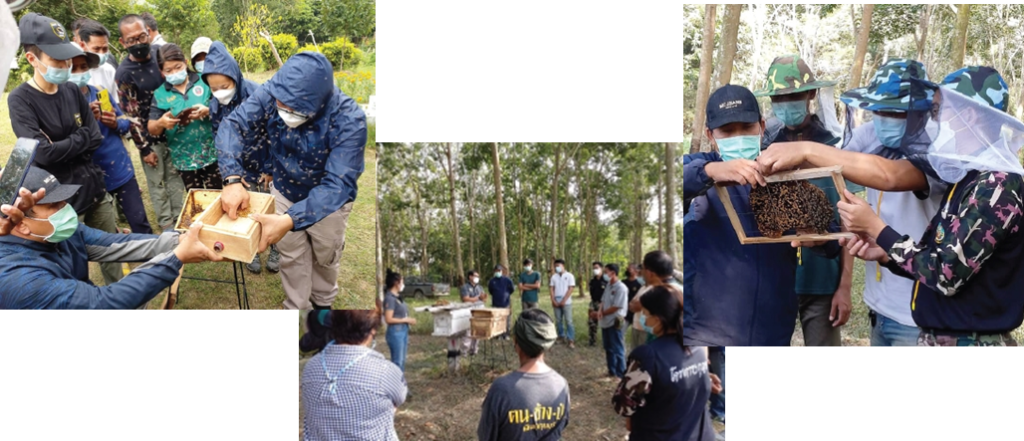
Income-elevating project Integrated sub-district (1 sub-district 1 university project)
Training on technology transfer on the cultivation of native bees of Thailand, hollow bees and stingless bees with different characteristics in each aspect. How to move each honeycomb species in natural areas and integrated agricultural gardens for farmers from various sub-districts such as Wat Kaew Subdistrict, Bang Phae District, Pak Tho Subdistrict, Pak Tho District, Berk Phrai Subdistrict, as well as Subdistrict Administrative Organization officials. Integrated Agricultural Demonstration Plot Project under the Royal Initiative “New Theory” Participants were interested and gained ideas for applying it in the crop cultivation cycle in the future.
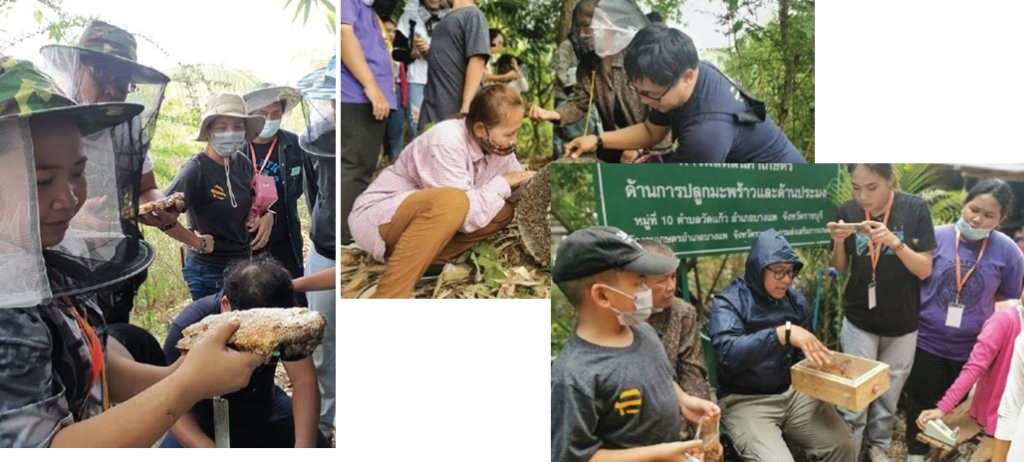
In addition, on October 27, 2021, the U2T group in Bua Ngam Subdistrict organized a training event to transfer stingless farming technology. To those who are interested in the area to apply in their own garden. received good attention Then on November 30, 2021 Received a workshop on farm management and harvesting of Thai native bees and stingless bees. Under the U2T project, Wat Kaeo Subdistrict, Bang Phae District and U2T Bua Ngam Subdistrict, Damnoen Saduak District and went on a study tour Beekeeping and stingless beekeeping at Thai Native Beekeeping and Sun Rong Enterprise Group, Ban Kha District (Rai Thiti Tha Arun), Ban Kha District, Ratchaburi Province

3. Related information on our university as a body providing access to university facilities (e.g. labs, technology, plant stocks) to local farmers and food producers to improve sustainable farming practices.
The KMUTT Food Safety Center plays a vital role in enhancing food safety standards, ensuring that food production processes meet the highest levels of quality and safety for consumers. With a commitment to fostering a safer, healthier food environment, the center focuses on conducting cutting-edge research, developing innovative technology, and facilitating the transfer of knowledge to ensure sustainable practices are implemented across the food industry. Below are the main policies and actions that underscore the center’s ongoing efforts:
1. Advancing Research and Knowledge in Food Safety
One of the Food Safety Center’s primary objectives is to create valuable research and generate knowledge that addresses food safety issues across every stage of the food supply chain. From production processes to food processing, the center investigates various aspects of food safety management. Through in-depth assessments of food safety risks, the center identifies potential hazards and develops appropriate interventions to mitigate those risks. This proactive approach ensures that the food produced is not only safe but also promotes public health.
The center’s research spans across key areas such as food safety systems, quality assurance, and sustainable practices. By providing insights into food safety management, it supports the food industry in meeting both national and international safety standards.
2. Development of Rapid Test Kits for Food Safety and Quality
In line with its commitment to improving food safety, the KMUTT Food Safety Center has developed rapid test kits designed to quickly identify safety and quality issues within food products. These test kits are critical for food producers, processors, and other stakeholders in the food industry, as they provide an efficient means of detecting contaminants, quality issues, and foodborne pathogens. By ensuring that these problems are identified and addressed promptly, the center plays a key role in minimizing food-related health risks and safeguarding consumer well-being.
The innovation of these rapid testing tools makes it easier for the food industry to quickly respond to food safety issues, ensuring that food products are safe, nutritious, and free from harmful substances.
3. A Hub for Training and Technology Transfer
The KMUTT Food Safety Center serves as a key Training Center for technology transfer and food safety management systems. By offering specialized training in Sanitation Standard Operating Procedures (SSOP), Good Manufacturing Practices (GMP), Hazard Analysis and Critical Control Points (HACCP), and various ISO standards such as ISO 22000 (Food Safety Management Systems), the center equips students, professionals, and industry players with the skills necessary to implement world-class food safety systems.
These training programs are crucial for businesses looking to maintain high standards of food safety and quality, allowing them to comply with both local and global food safety regulations. The center also provides hands-on research laboratory facilities to facilitate practical learning and real-world applications of food safety practices.
4. Fostering Collaboration between Academia, Industry, and Government
Collaboration is a cornerstone of the KMUTT Food Safety Center’s success. By promoting partnerships between universities, private companies, and government sectors, the center fosters a collaborative environment where research, development, and knowledge transfer can flourish. These partnerships enable the sharing of best practices and the co-development of solutions that address key food safety challenges.
The center also ensures that food safety practices are aligned with government policies and international standards, making it a key player in shaping the future of food safety across the nation. Through these cooperative efforts, KMUTT helps create a more resilient, sustainable, and efficient food system that benefits all stakeholders in the food supply chain.
5. Capacity Building for Industry Professionals and Students
A critical aspect of the KMUTT Food Safety Center’s work is its focus on developing the capacity of personnel in both the private and public sectors. The center offers cooperative research and development opportunities to professionals in the food industry, helping them enhance their skills and knowledge in food safety and quality management.
In addition, the center provides opportunities for student exchanges and research collaborations with local and international organizations, creating a platform for the next generation of food safety experts to gain valuable experience and contribute to ongoing research. By bringing together students and professionals from various sectors, the center helps develop a talented workforce that is well-equipped to address the challenges facing the food industry.
Conclusion: A Key Player in Shaping Food Safety Standards
The KMUTT Food Safety Center is a hub for innovation, education, and collaboration in the food safety sector. Through its research and technology transfer initiatives, it ensures that food safety standards are upheld, risks are minimized, and food products remain safe for consumption. The center’s focus on training, partnerships, and capacity-building makes it a critical resource for the food industry, contributing to both local and global food security. By continuously pushing the boundaries of food safety research, the center plays a pivotal role in ensuring that food systems are sustainable, resilient, and capable of meeting the demands of a rapidly changing world.
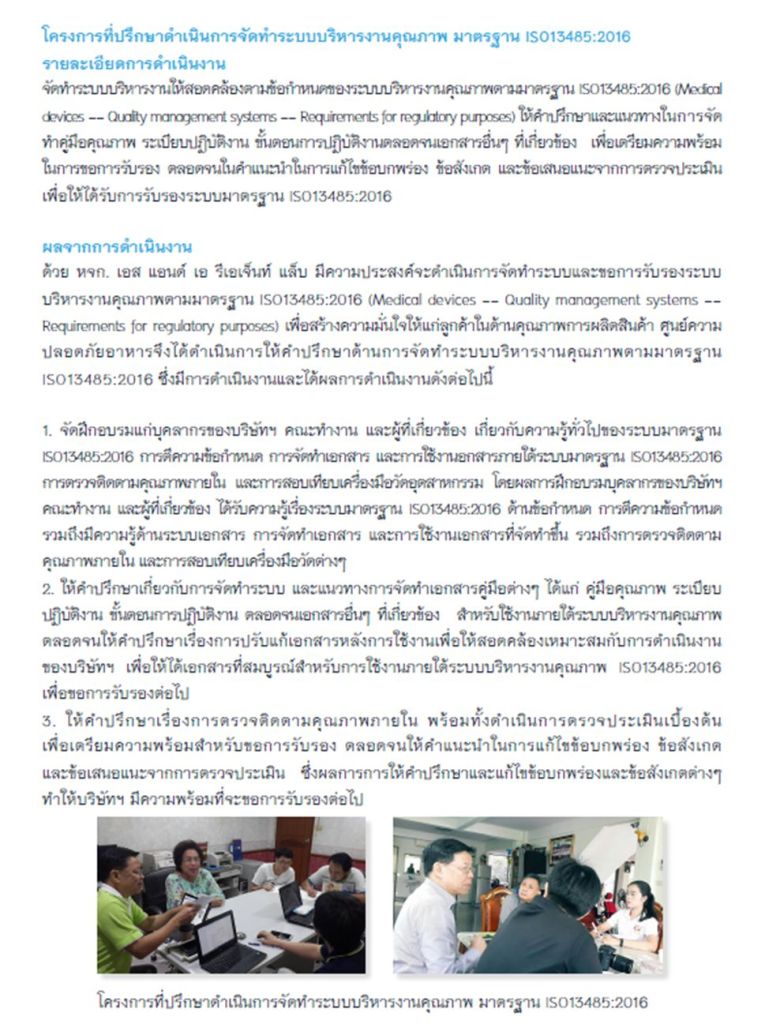
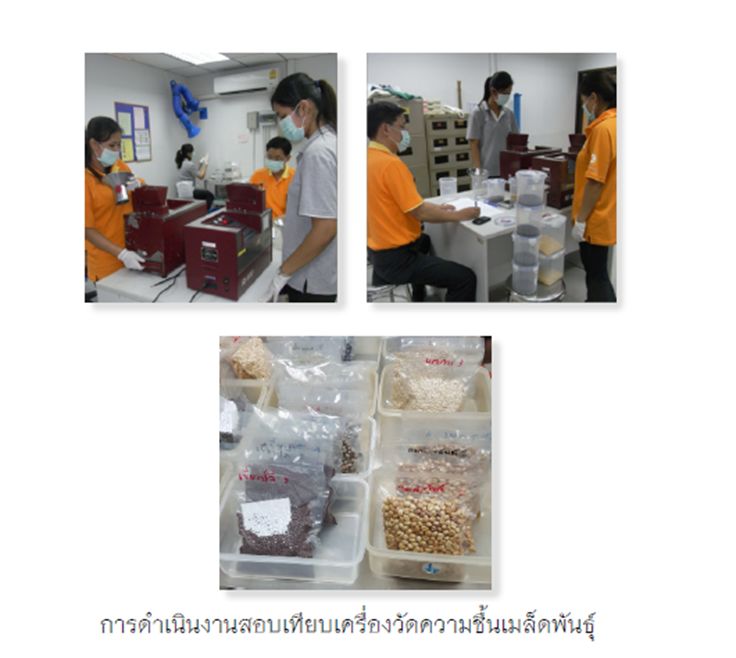
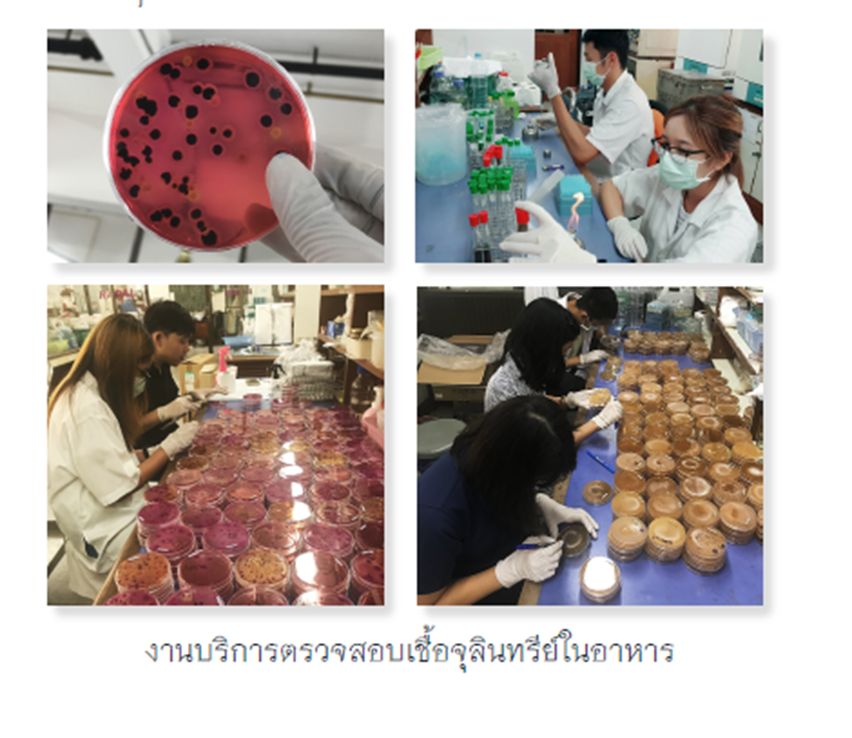
KMUTT continues to accelerate research and development of advanced technology innovations for the production of food for consumers in the future
Development and application of advanced technology for food production of the future It is a project that receives research funding from the National Science and Technology Development Agency (NSTDA).
Prof. Dr. Sakkamon Thephasadin Na Ayudhya, King Mongkut’s University of Technology Thonburi (KMUTT), as the lead researcher and project leader Has given the meaning of the food of the future that The food of the future is food developed by applying advanced technology to meet the needs of consumers in the future. However, the technology used is both newly invented. and developed from the existing technology to make it even better Can be applied to the food industry or suitable for interested products. The results of the research will be useful in the future for both household and industrial applications.
Prof. Dr. Sakkamon said that as a researcher Trying to look forward to what the future food trends will be. From the study of information in many sectors The research team therefore proposed a research topic under “Development and application of advanced technology for food production of the future” Total of 6 groups, namely “Natural food coloring” “Nano-cellulose fibers from vegetable and fruit scraps to be used as food additives. thickener and stabilizer” “konjac konjac coating to protect nutrients or microorganisms that are beneficial to the body from being destroyed” “Production of high-quality, caffeine-free roasted coffee beans using superheated steam,” “functional biogels from agricultural waste,” and “portable food residue detection devices,” which are mainly Projects that have been continuously researched and developed
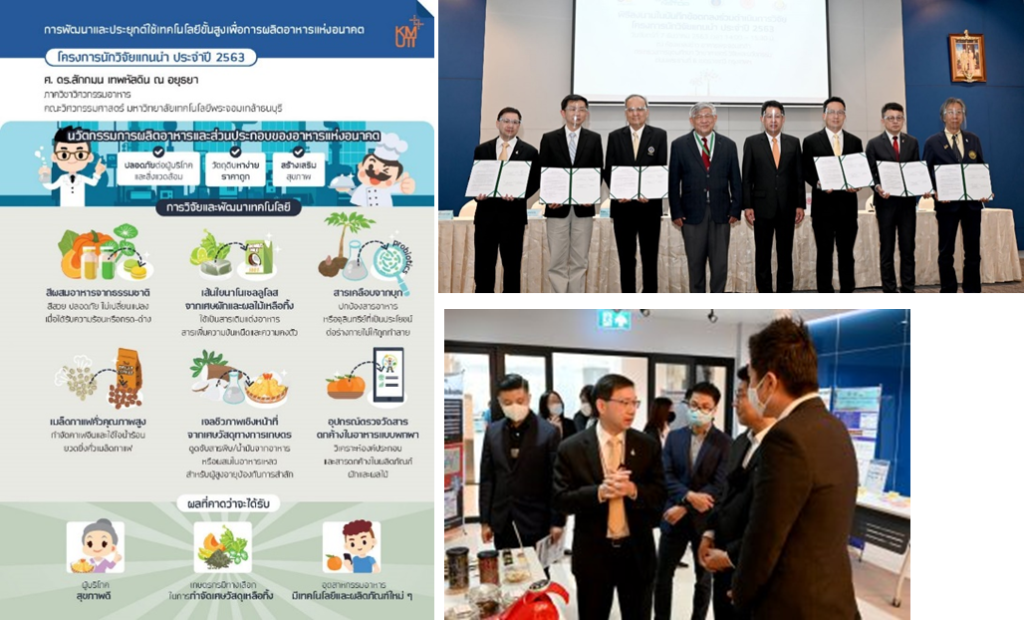
our services

Pilot Plant Development and Training Institute (SorPor.) has one goal. Focus on supporting small and medium enterprises (SMEs) in terms of technology transfer and incubation, helping to reduce gaps and technology transfer bottlenecks. To SMEs entrepreneurs to develop the capabilities of existing SMEs to be able to compete in the global market. By providing services in joint research and development and training on specific technology transfer. Including analytical and testing services and give advice as well as prototype factory services to test production and study the technical feasibility and economics, focusing on research, development, and innovation in 4 main areas (3F 1P)
Equipment rental service and performance measurement
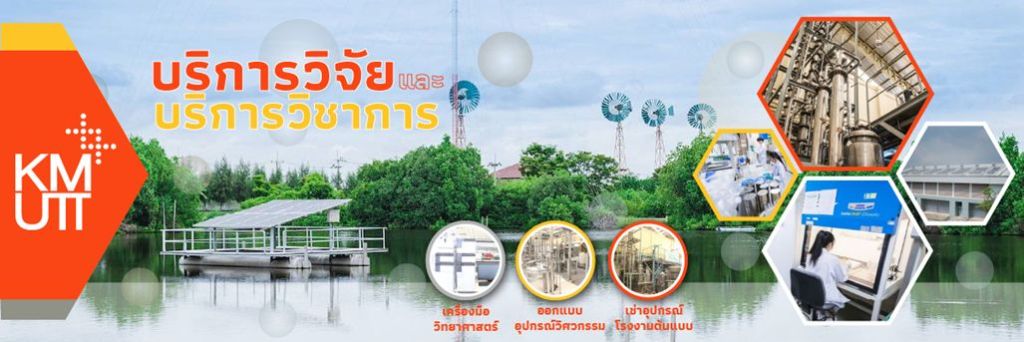
freeze dryer service
Food preservation service freeze drying machine Open for service at the Bioprocess Research and Innovation Building (BRI), KMUTT, Bang Khun Thian. operate with Engineering and Systems Unit Pilot Plant Development and Training Institute King Mongkut’s University of Technology Thonburi freeze drying process It is a freeze drying technology. The temperature must be negative. The water contained in the product to be dried will be an ice grid. Therefore, it heats the ice and sublimates it into steam. in each process Operated by researchers and engineers of the pilot plant development and training institute under modern equipment Ready to provide services to the government sector, private sector, farmers communities and community enterprises.
Contact for service at Pilot Plant Development and Training Institute https://www.pdti.kmutt.ac.th FB : Pilot Plant Development and Training Institute KMUTT Tel. 02-470-7400-1, 02-470-7328-9
“Technology transfer project for the processing of agricultural products”
Radish products According to food safety standards and increasing production efficiency with turnip thresher: Community Enterprise Group Ratchaburi Province, lettuce or radish is grown the most in the western region (Ratchaburi, Phetchaburi, Ban Kha Lettuce Producer Community Enterprise was established in Ban Kha District, Ratchaburi Province. (30 members, planting area 66.4% of the total planting area in Ban Kha Produce pickled radish roots in the traditional way By kneading turnips with salt and preservatives, drying for 3 days, then flavoring. The results of random measurements of preservatives found that they exceeded the food standards. The research team has promoted various knowledge such as testing for microorganisms Preservative and Bleach Tests and hygienic processing as a result, operators use measuring scales to measure more accurately. Reduce the amount of preservatives (safe) and improve the packaging to be suitable for storage. In this regard, the innovation of turnip threshing machine was transmitted. Reduce workload and labor shortage problem Bacterial spoilage Helps to increase profits by 25 percent and increase daily production by 2 times, while still maintaining the original taste identity.
Technology and innovation transfer activities for radish processing

Additional evidence link:
- https://drive.google.com/drive/folders/188F2dJWoF5N-W8GjHUkI8lIFFwrtb9RX?usp=sharing
- https://rsc.kmutt.ac.th/%E0%B8%84%E0%B8%A7%E0%B8%B2%E0%B8%A1%E0%B9%80%E0%B8%9B%E0%B9%87%E0%B8%99%E0%B8%A1%E0%B8%B2/
- https://www.pdti.kmutt.ac.th/th/index.php/content/view/90/56/
- https://asset.rmutl.ac.th/news/10460-rmutl-signed-the-mou-with-kmutt-to-support-the
- https://fixedpointkmutt.wordpress.com/address-and-acknowledgments-in-papers/
- https://newtdc.thailis.or.th/docview.aspx?tdcid=78671
- https://sea-spatialdata-nexus.com/partner-temp/
- http://sola.pr.kmutt.ac.th/homesola/index.php/the-18th/
- https://www.pdti.kmutt.ac.th/th/?page_id=5691
4. Related information on our university as a body on prioritizing purchase of products from local, sustainable sources.
KMUTT brought products around the university and from various areas, which had been helped by KMUTT technology in production development, in order to sell on the campus and to craft as a gift basket as a souvenir for special occasions.

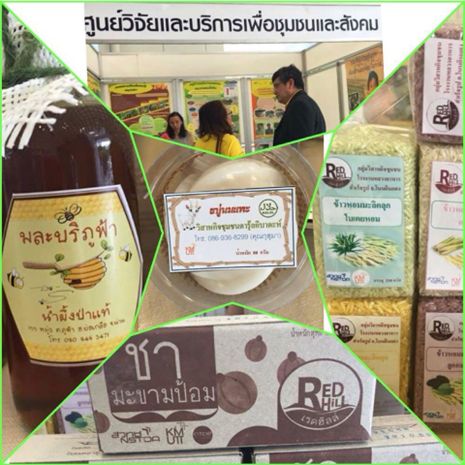
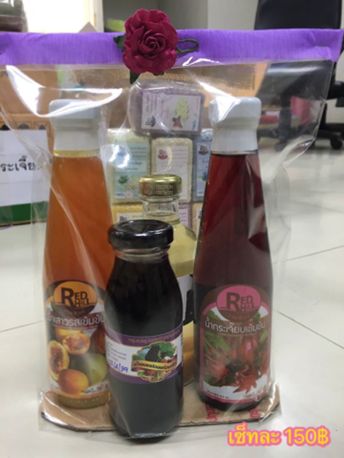
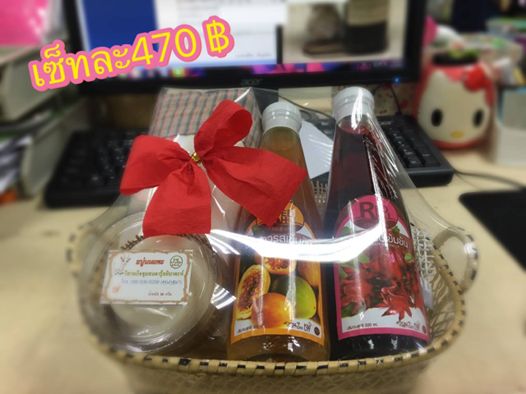
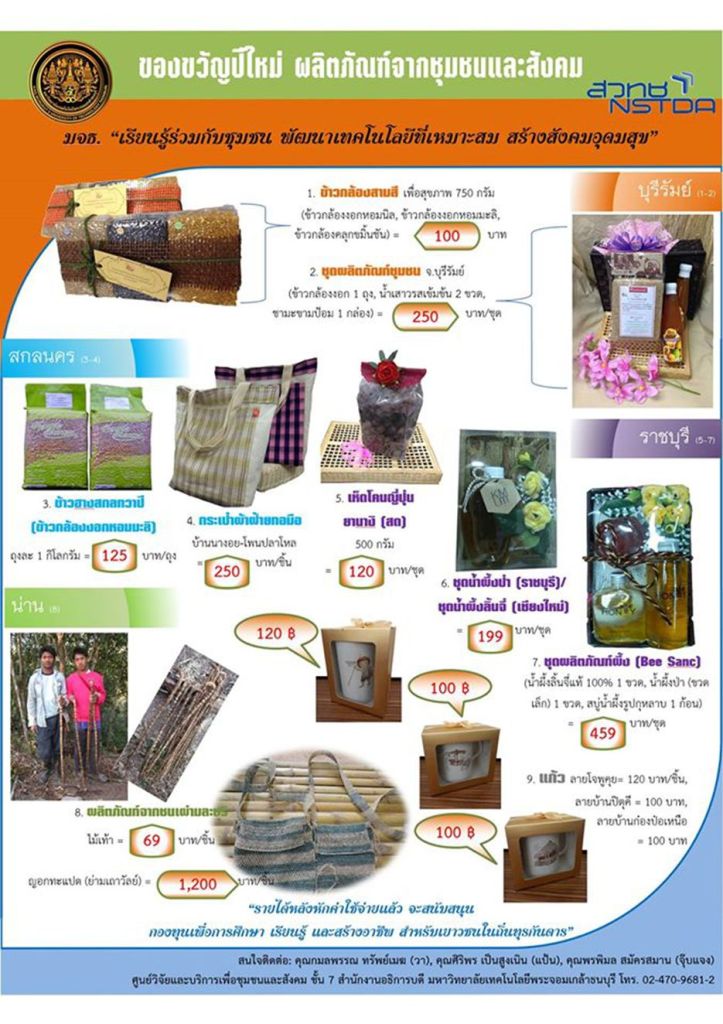
Community Market @KMUTT
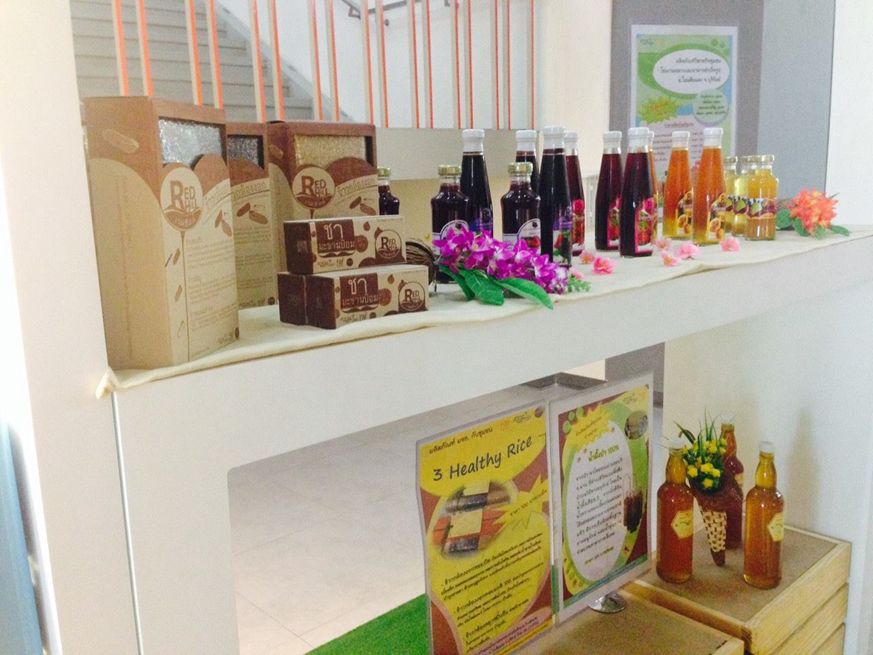
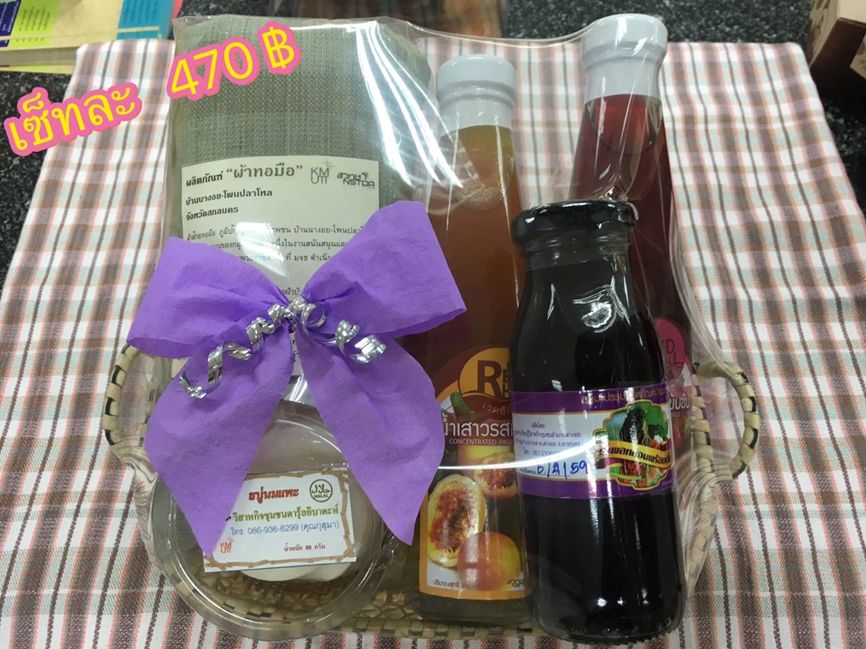
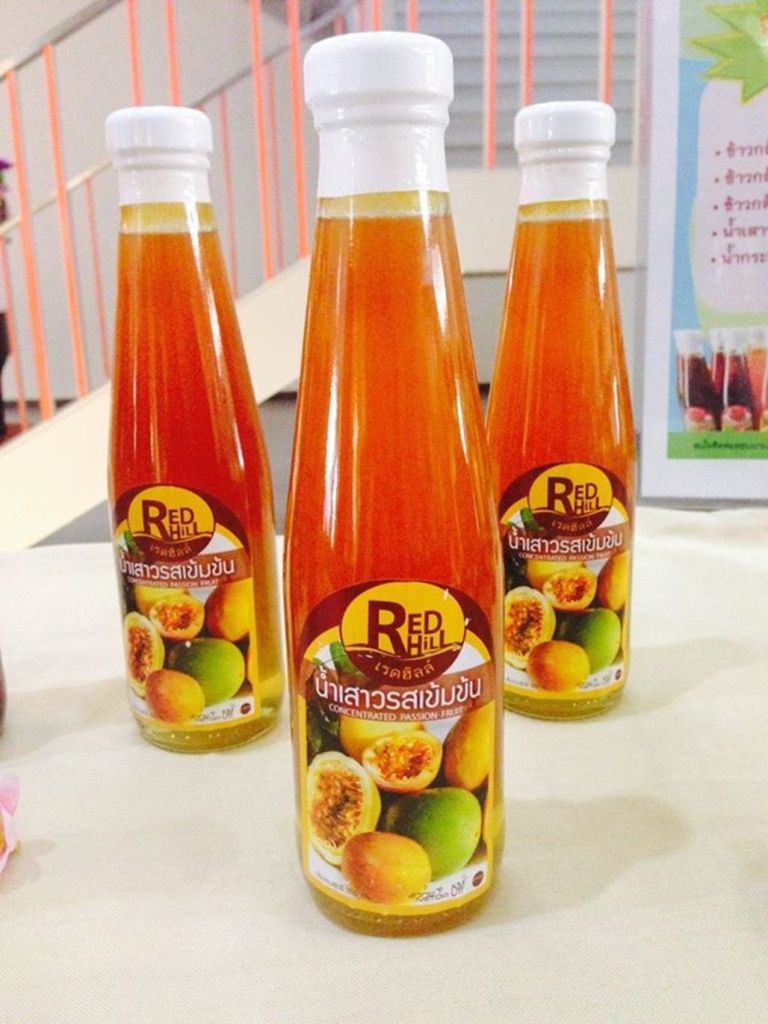
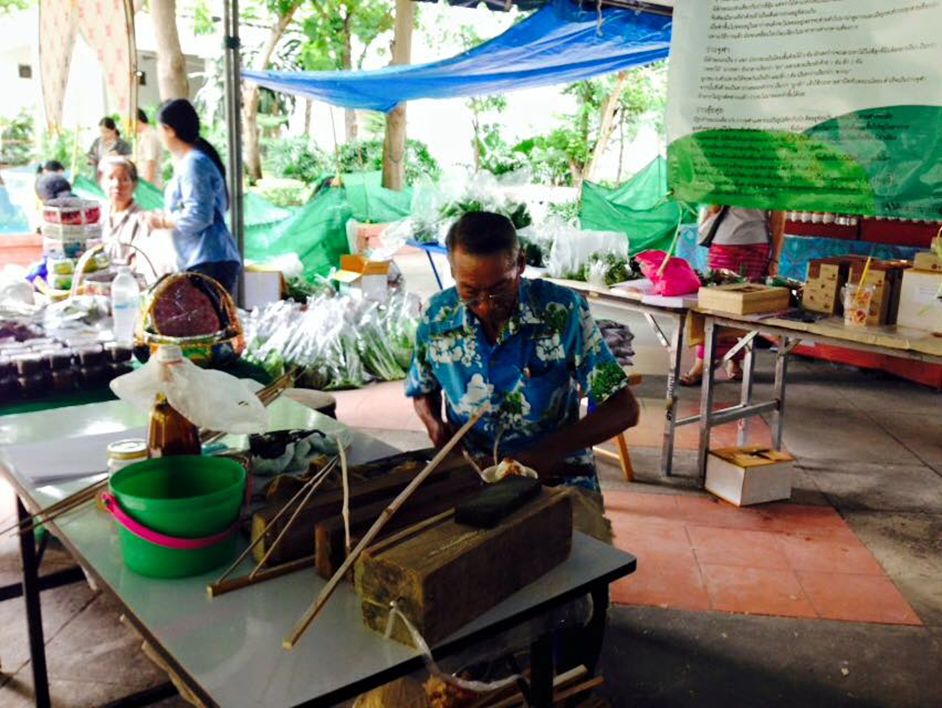
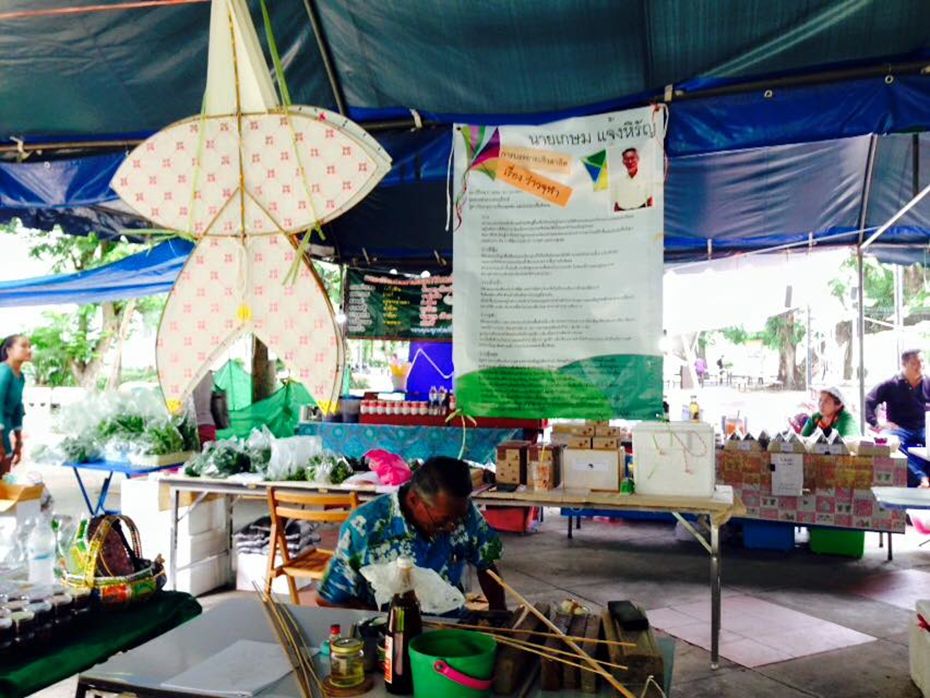
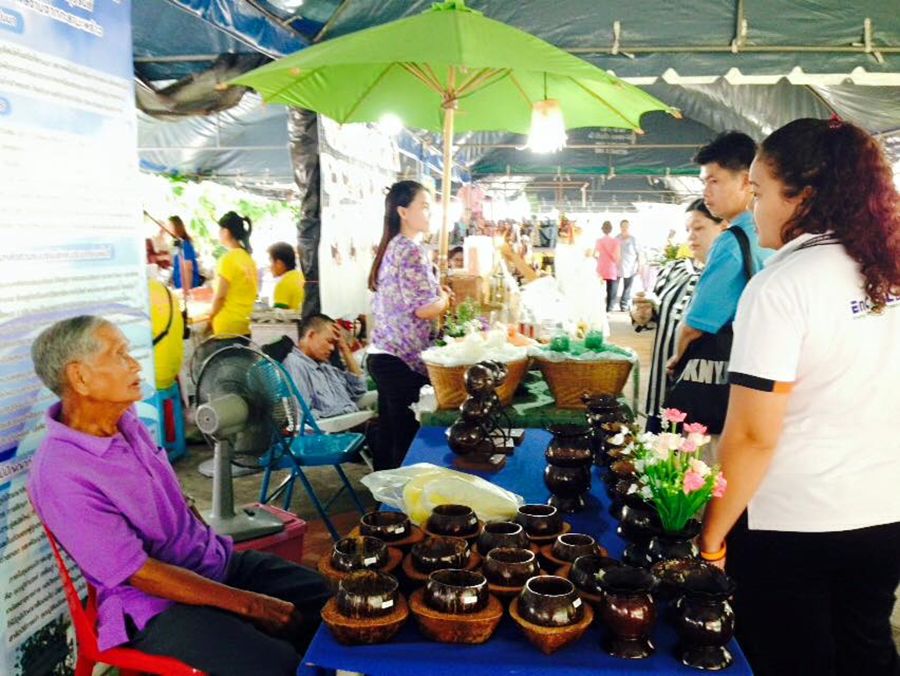
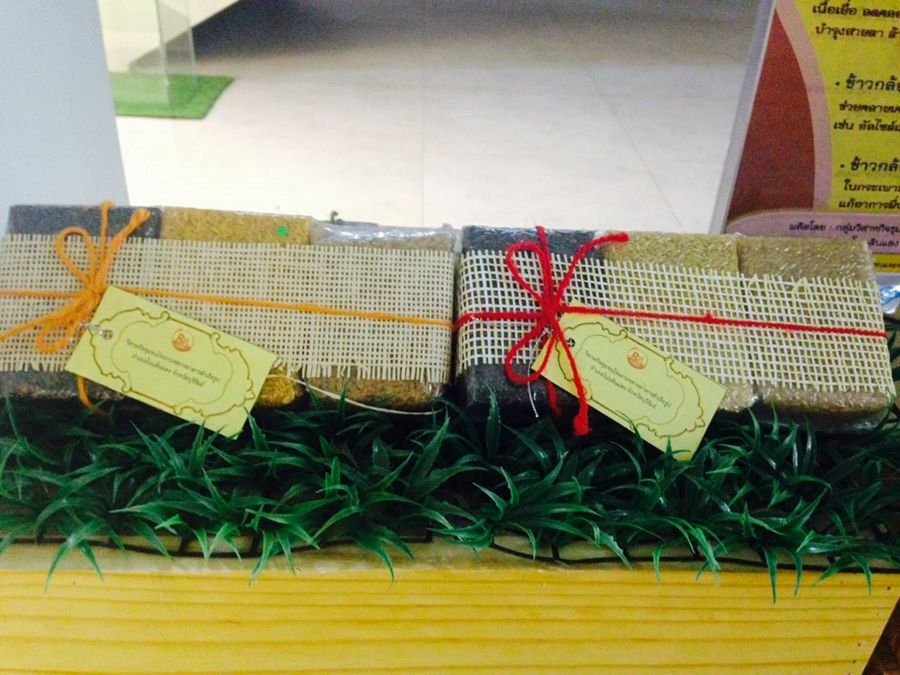
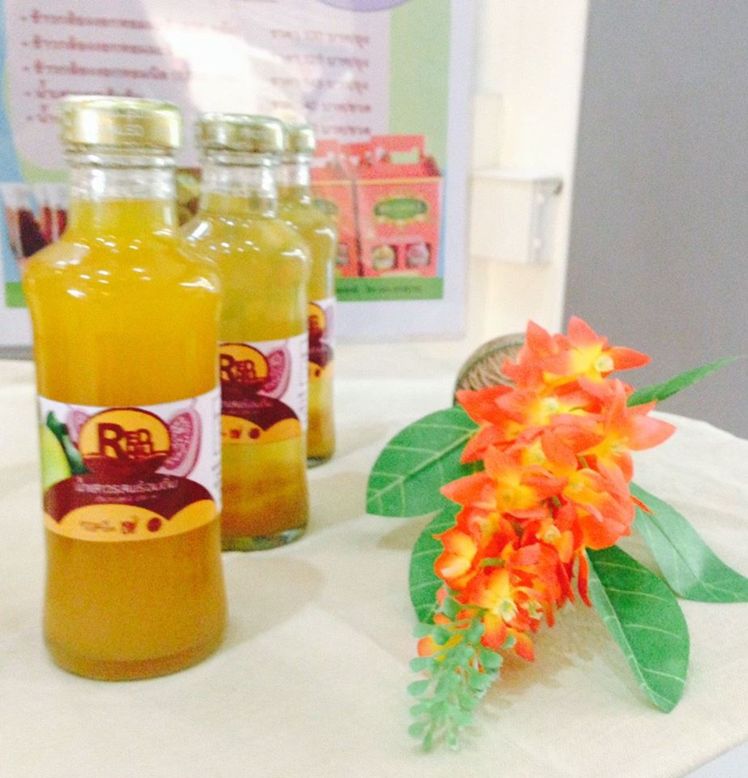
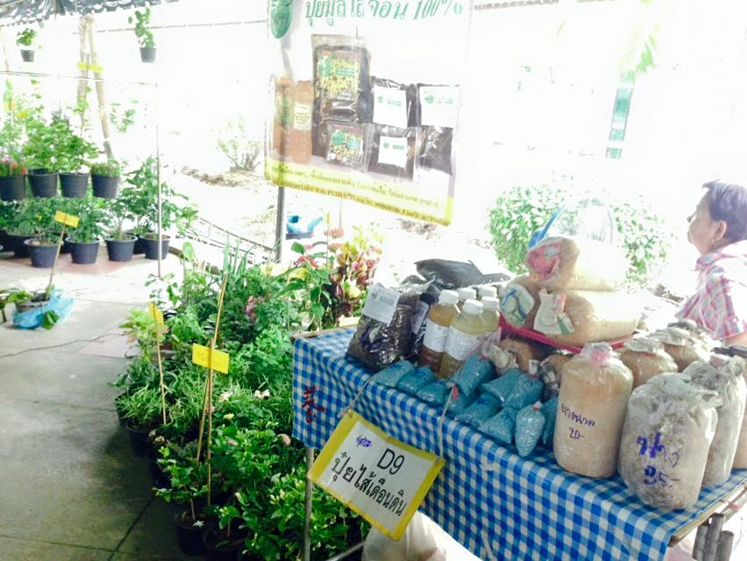
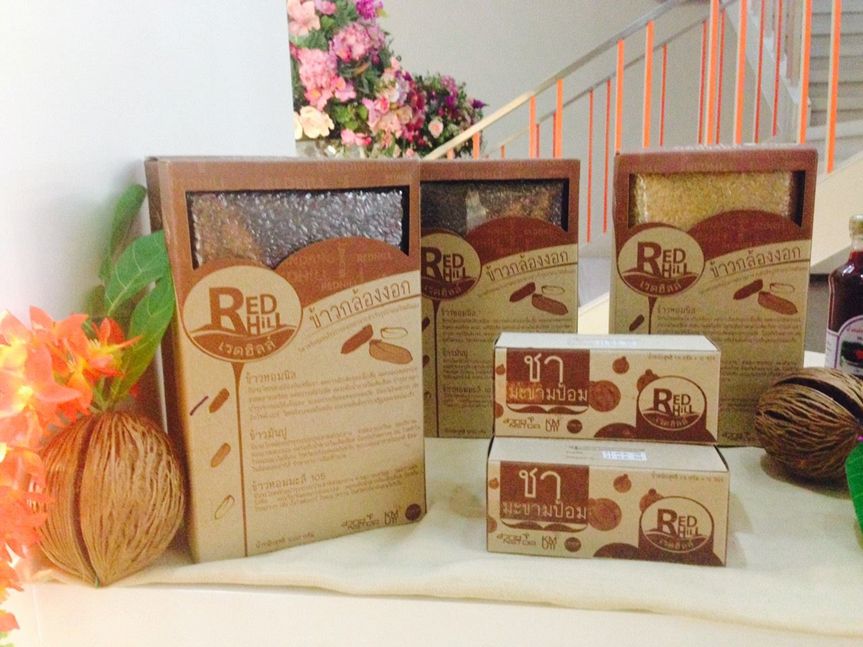
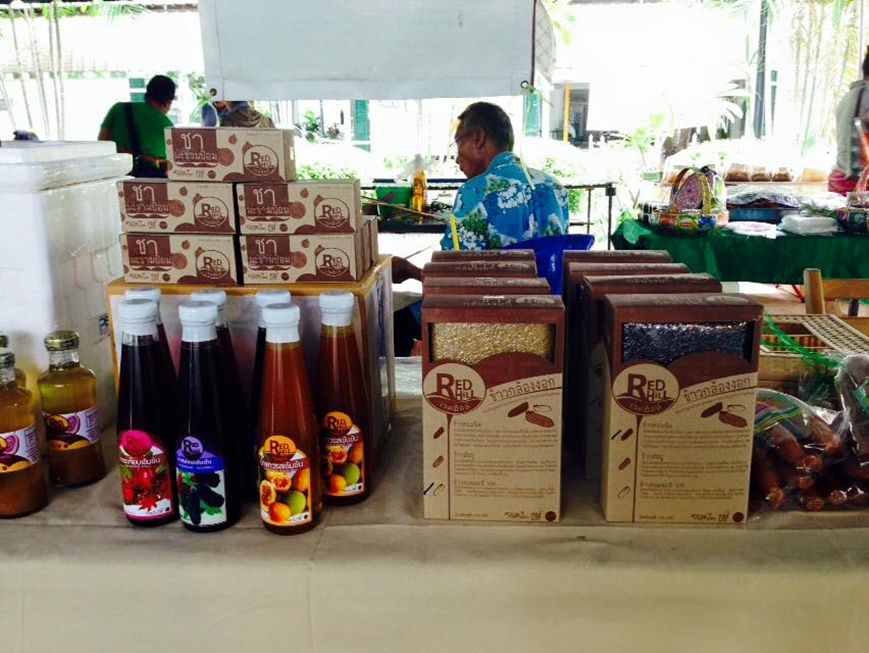
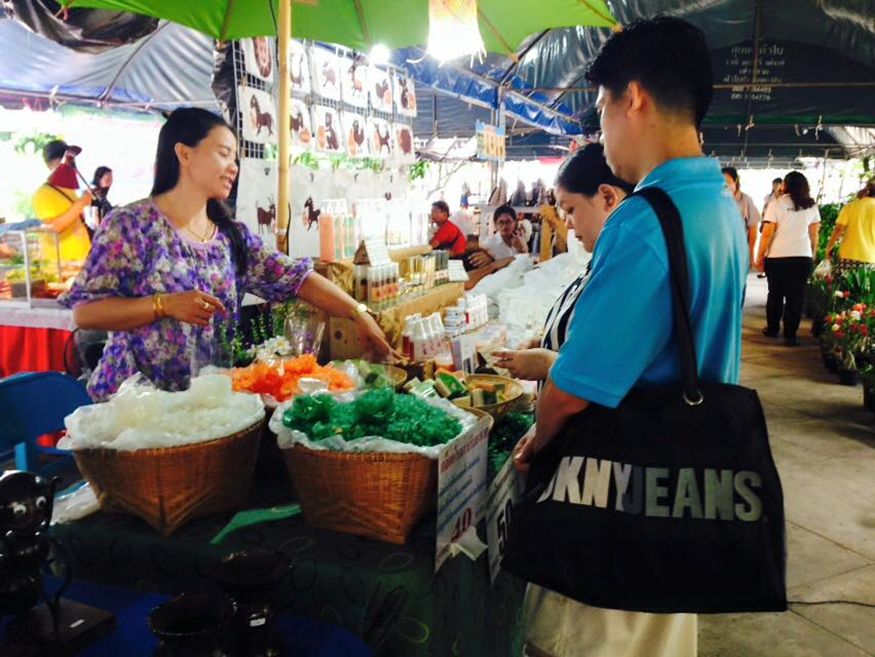
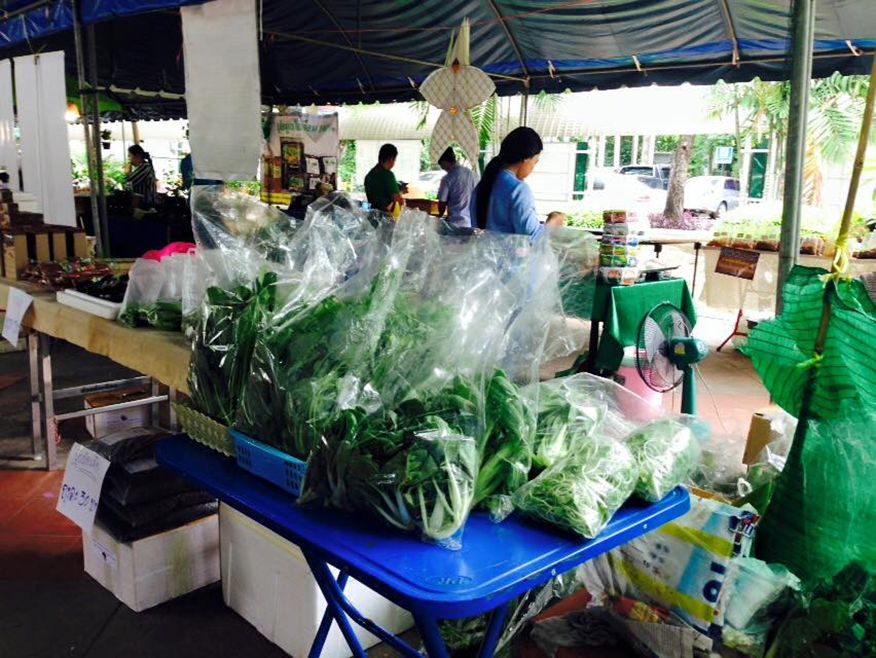
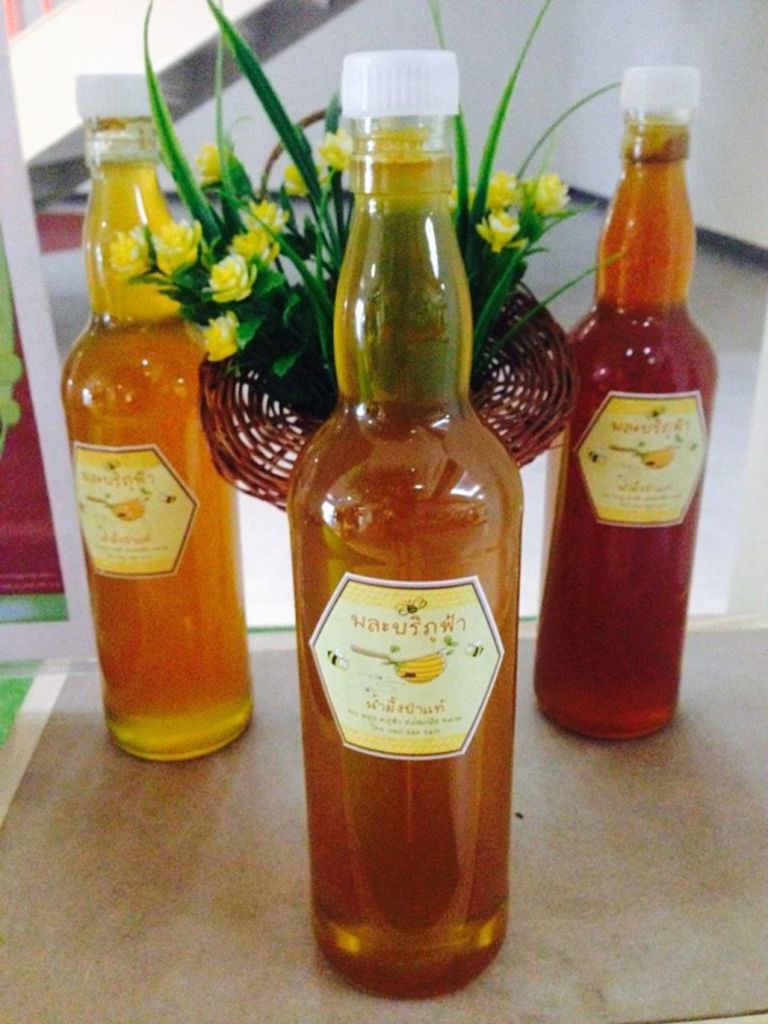
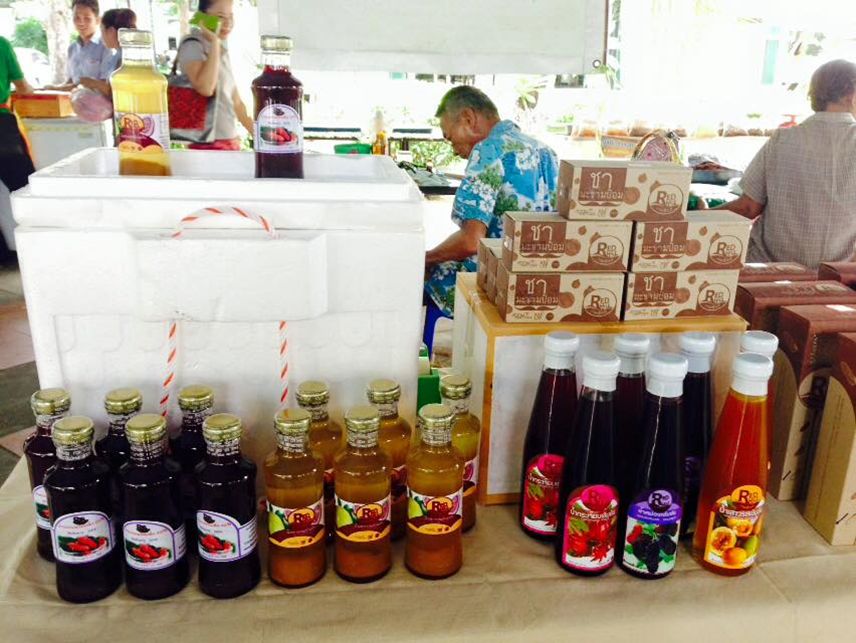
Additional evidence link:
1.https://www.facebook.com/FundraisingKMUTT/?tn=kCH-R&eid=ARB1TwvkwOIeCGY2KUgCaCcdBb3KK4nCMS_4FR8jbsqsIid
2.https://www.facebook.com/AlumniRelationsKmutt/?ref=search&tn=%2Cd%2CP-R&eid=ARCpXqxDArDn9ko1HzmmXdgizParCOYUbTeuBh7NZxIBTxGTB69M3Y1Wgp3fzR7l9eiLJnC779oJ5zoP



